Domestic gas sale rose 8.70% m-o-m in June Output represents considerable improvement over 2024 production Emmanuel Addeh in Abuja Nigeria recorded a total gas production of about 1.372 trillion Standard
(SCF) between January and

Domestic gas sale rose 8.70% m-o-m in June Output represents considerable improvement over 2024 production Emmanuel Addeh in Abuja Nigeria recorded a total gas production of about 1.372 trillion Standard
(SCF) between January and
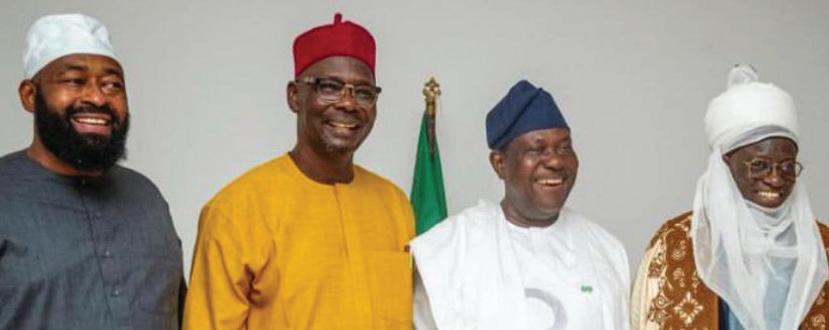






James Emejo in Abuja and Oluchi Chibuzor in Lagos
The federal government and the Republic of Benin have agreed on a joint trade framework to eliminate bottlenecks, facilitate economic development, and create new opportunities across both countries.
The move seeks to strengthen regional trade ties and economic integration.
The agreement was reached at a high-level meeting held at
the Ministère de ’Économie et des Finances, Cotonou, Benin Republic, over the weekend.
The session brought together senior government officials, customs chiefs, and trade experts from both countries to chart a collaborative path toward efficient cross-border trade.
A statement issued by Assistant Comptroller of Customs, National Public Relations Officer (PRO), Abdullahi Maiwada, and
Minister of Industry, Trade, and Investment, Mrs. Jumoke Oduwole, described the bilateral framework as a bold step forward in West Africa’s regional economic strategy.
“This agreement signals strong political will from both countries to pursue a progressive and inclusive trade relationship,” Oduwole said.
She recalled Presidents Bola Tinubu and Patrice Talon's recent signing of a preliminary Memorandum of Understanding
(MoU) at the West African Economic Summit, and stressed that both leaders had charged their technical teams with translating political commitments into actionable policies.
Oduwole said, “Our joint commitment is to dismantle barriers, improve logistics, and ensure that trade becomes a tool for job creation and regional prosperity. The heads of customs of both nations have demonstrated commendable synergy, which we are expanding
flaring across the country’s oil and gas fields.
The total output comprised 729.1 billion SCF from Associated Gas (AG) and 643.3 billion SCF from NonAssociated Gas (NAG). Of this volume, 1.260 trillion SCF was successfully utilised, representing a utilisation rate of 91.6 per cent over the six-month period under consideration.
Gas utilisation was channelled into three major streams: field operations, domestic supply, and export. Field use accounted for 408.28 billion SCF, while 370.66 billion SCF was delivered for domestic consumption.
Several people praised the move, describing it as long over due and that the project was on the money. "That airport is over 50 years old, it is time to have a befitting airport for this country. As the major gateway into Nigeria and the economic nerve centre, the proposed reconstruction is a good thing that all Nigerians should be proud of", commented Adedoja Adejobi.
"The vision must be applauded, Anyone who has ever travelled outside this country can easily attest to the fact that we have been left behind almost every other country. Our airports and associated infrastructure are a mess. What we have as airports are not even comparable to Bus terminals abroad. So, for once, let us have something befitting to feel good about", Abel Adeyanju, another commentator declared. But in a statement issued by the ADC’s National Publicity Secretary, Mallam Bolaji Abdullahi,
to become 5x consecutive Champions of Africa and seventh overall.
"Well done, Coach Rena and the team. You have made Nigeria proud. I am expecting you all, along with the trophy.#MissionV - Done & Dusted. PBAT," Tinubu wrote.
The president had earlier yesterday sent a presidential delegation, led by Chairman of National Sports Commission, Shehu Dikko, to cheer D'Tigress to victory in Abidjan, Côte d’Ivoire. He revealed this in his X post, saying, "I have dispatched a Presidential Delegation to Abidjan to stand with our superlative D’Tigress as they pursue a fifth consecutive AfroBasket title for Nigeria. #MissionV
"Led by the Chairman of the National Sports Commission, Shehu Dikko, this team of senior government officials represents the full weight of our national pride, belief, and support.
"Our girls have shown character, discipline, and the Nigerian spirit in every game. As they prepare for the final in two hours, we stand behind them - not just as fans, but
Besides, exports totalled 481.07 billion SCF, highlighting Nigeria’s continued reliance on foreign gas markets, particularly through Liquefied Natural Gas (LNG) and pipeline contracts. However, despite efforts to curb emissions, the country still flared 101.42 billion SCF of gas during the period under review, translating to a flare rate of 7.39 per cent. January recorded the highest flare volume at 18.71 billion SCF, while February had the lowest at 15.85 billion SCF.
The months of January, May and March saw the highest levels of gas production at over 236 billion SCF, 240.1 billion
the party questioned whether the renovation plan and its associated cost had received approval from the National Assembly, describing the expenditure as reckless and insensitive.
Last week, the federal government announced that it was embarking on a major renovation project at the MMIA in Lagos, valued at N712 billion. The extensive upgrade, it said, aims to modernise the aging infrastructure of the country’s busiest airport and bring it in line with global standards for aviation facilities.
But the ADC strongly condemned what it described as the outrageous value of the airport renovation announced by the Tinubu administration, characterising it as another brazen act of fiscal recklessness and official insensitivity, which it claimed further confirmed how far the All Progressives Congress (APC) government is removed
as a grateful nation inspired by their excellence. Go for gold. Go for glory, girls! President Bola Ahmed Tinubu."
In a release by his adviser on information and strategy, Bayo Onanuga, Tinubu hailed the team’s coach, Rena Makama, and commended the skill, resilience, determination, and teamwork that propelled the team to the fifth consecutive title, and the seventh overall.
He praised the team's determination to bring glory to the country, despite losing the first quarter of the match.
The president stated, "Your superb performance throughout the competition has made Nigeria proud. Like the Super Falcons, you have inspired our young ladies. You embodied the indomitable Nigerian spirit, the power of unity, and the rewards of hard work.
"By winning the AfroBasket trophy for a record fifth consecutive time, you have written your names in history and shown the world what to expect out of Africa."
SCF and 236.96 billion SCF, respectively, while February posted the lowest at 199.68 billion SCF.
In terms of gas shrinkage, often due to pipeline losses or metering inaccuracies, the report captured a cumulative loss of 11.25 billion SCF for the half-year. This figure, while relatively small compared to total output, remained a key area of regulatory attention.
NUPRC stated that the figures for April to June remained “provisional” and might be subject to adjustment after quarterly data reconciliation exercises.
from the reality of the suffering people of Nigeria.
''It is hard to understand how expending N712 billion into renovating an airport that already received significant upgrades in recent years makes fiscal sense in a country where public universities wallow in chronic austerity, where basic medical care has become a luxury that only the rich can afford, where millions of Nigerians have been thrown into poverty as a result of government’s ill-conceived policies
''The Murtala Muhammed International Airport in Lagos remains functional and serviceable. What the aviation sector needs is not another gold-plated terminal, but proper maintenance, enhanced efficiency and the expansion of regional airports to boost real connectivity across Nigeria.
''Just for context, the amount of money that is being funnelled into the renovation of one airport,
While lauding Wakama and her technical team for their exemplary leadership and the Nigeria Basketball Federation for their steadfast support, Tinubu stated, "The Federal Government and Nigerians will never forget the sacrifices and remain grateful for the highly elevating performances.
"The government and the people of Nigeria celebrate you and assure you of our continued support as you prepare for the FIBA Women's Basketball World Cup qualifying tournaments next March. I look forward to receiving the victorious team and the trophy in Abuja, while wishing you all a safe trip."
On her part, First Lady, Senator Oluremi Tinubu, congratulated D’Tigress for the historic victory at the 2025 FIBA Women’s AfroBasket Tournament.
In a personally signed release, the first lady stated. "To God be the Glory for yet another victory for Nigeria as you bring home the second trophy won by the nation in two weeks.
The gas production trends for 2025 so far underscored Nigeria’s gradual improvement in gas monetisation and reduced flaring, even as challenges in infrastructure, metering, and domestic uptake persist.
With global energy transition pressures mounting, the country’s ability to manage its vast natural gas resources more sustainably will be crucial for both environmental commitments and economic diversification.
Meanwhile, further data for June, covering the Gas Production Status, released by NUPRC showed that Nigeria’s
approximately $500 million is the same total amount that was spent to build four new airports in Abuja, Lagos, Kano and Port Harcourt in 2014 via a Chinese loan that is yet to be repaid.
''This same Murtala Muhammed Airport had a new international terminal that was commissioned by President Muhammadu Buhari in March 2022,” the ADC maintained.
Quoting media reports at the time, the ADC noted that the said facility was built on a landmass of approximately 56,000 square metres, with 66 check-in counters and has the capacity to process 14 million passengers annually.
It added that it was equipped with censored conveyor belt, seven jet bridges, 10 ultra-modern cooling systems, heat extraction in the baggage hall, ample space for duty free shops and banks, recreational areas for children, 22-room hotel for stop-overs among others.
"Today, you have written another golden chapter in our dear Nation's sporting history by defeating Mali to win your fifth consecutive FIBA Women’s AfroBasket title.
“With this win, you have showcased once again, the unwavering commitment and determination of Nigerian women on the global stage.
"You have continued to inspire every young girl to dream of breaking barriers and making history through hard work and dedication.
"I celebrate you, your discipline, and team spirit. Thank you for making Nigeria proud once again.
Congratulations, my wonderful D’Tigress!"
Nigeria’s senior women’s basketball team, D’Tigress, confirmed yet again their supremacy as the best team in the continent, defeating Mali 78-64 to win their fifth consecutive Afrobasket title in Abidjan on Sunday night.
The win also extended Nigeria’s unbeaten run in Africa to 29 games, dating back to 2015.
The Paris 2024 Olympic Games
through four thematic working groups covering trade facilitation, enforcement, data sharing, and infrastructure."
She emphasised Nigeria's ambition to evolve from being a regional trade player to a global voice in shaping fair and inclusive international trade systems.
Comptroller-General of Customs, Adewale Adeniyi, reaffirmed the service’s readiness to execute the trade agreement's outcomes and ensure its
total gas production for the month stood at 236.9 billion SCF, a 17.36 per cent year-on-year increase from 201.9 billion SCF recorded in June 2024.
Associated Gas, which is natural gas produced alongside crude oil, accounted for 121. billion SCF, representing a five per cent Y-o-Y increase from 114. 939 billion SCF in June 2024. But Non-Associated Gas, usually produced from gas fields independent of crude oil, came in at 116 billion SCF, significantly up from 86.9 billion SCF in the corresponding period of 2024.
However, on a monthon-month basis, total gas
However, THISDAY got data of new airports and repairs that were done in the last one year, including the new Angola international airport which was built by a Chinese company. The airport cost $3.8 billion (£3 billion) and covers an area of 43 hectares, with two modern runways and three terminal buildings.
By a THISDAY estimation, based on the current rates of 1usd to N1,594, the N712 billion, which is the project cost, equals about $447 million.
But other airports and their cost in the last one year, according to a report by Airport Industry Review (AIR) were: The Otay Mesa Metropolitan Airpark in US, which cost $1 billion; Henri Coanda International Airport New Terminal in Romania, put at $1.04 billion and Vaclav Havel Airport Terminal 2 Expansion in Czech Republic, valued at $1.19 billion. Also, Burbank Bob Hope Airport New Terminal in US
quarterfinalists were the tournament’s favourites but did not take anything for granted right from the group phase as they stayed undefeated till the final of the 2025 Afrobasket Championship inside the Palais des Sports de Treichville in the Ivorian commercial capital city.
However, the Malians drew the first blood, racing to 26-21 win in the first quarter. D’Tigress fought back gamely in the second quarter, winning it 20-15, which cancelled out Mali’s five points lead from the first quarter.
In the third quarter, D’Tigress gained a five points edge closing that quarter with same 20-15 score line.
The Wakama-led ladies then took complete charge, throwing winners from all over the court. That 17-8 win effectively pushed Nigeria to the fifth consecutive win with 78-64 victory.
Expectedly, Ezinne Kalu led the statistic with 20 points, 4 rebounds and 5 assists. Amy Okonkwo followed overall with 19 points, 9 rebounds and 3 assists. Sika Koné contributed the highest points on the Malian side,

alignment with Nigeria’s national trade priorities.
Adeniyi said, “What we have witnessed today is the culmination of intensive technical meetings between Nigeria and Benin customs officials over the past 48 hours. We’ve developed a joint framework that reflects our presidents’ shared vision for economic growth."
production in June 2025 declined by 1.32 per cent, from the 240.1 billion SCF recorded in May 2025.
In the same vein, in June 2025, domestic gas sales rose by 17.56 per cent Y-o-Y to 62.2 billion SCF, up from 52.97 billion SCF in June 2024. Besides, export gas sales recorded strong growth, increasing by 18.90 Y-o-Y to 88 billion SCF after experiencing two consecutive monthly declines of 2.34 per cent in April and 10.61 per cent in May 2025, while domestic gas sales rebounded in June, registering an 8.70 per cent M-o-M rise.
cost $1.2 billion; Kaohsiung International Airport New Terminals in Taiwan was $1.26 billion; King Abdulaziz International Airport Terminal Expansion in Saudi Arabia was put at $1.3 billion, while the value of the Sacramento International Airport in US, was pegged at $1.3 billion.
Besides, Brisbane Airport Expansion in Australia was valued at $3.3 billion; Viracopos International Airport Modernisation Project in Brazil was put at $4.62 billion, while Dallas Forth Worth International Airport Terminal in the US was valued at $4.8 billion. However, the coalition party said that it was important to note that although the airport in Lagos was designed to process 14 million passengers in a year, available reports indicated that it only handled 6.5 million
firing 16 points, 13 rebounds and 3 assists.
Since the 2011 tournament in Bamako, Nigeria and Mali had faced off six times. That year, Mali, the host country, ended Nigeria's hopes of winning the title with a 71–62 semi-final victory.
Two years later, in Maputo, Mozambique, Mali defeated Nigeria twice. First, they won 78-45 in the group phase, then they won 57-50 in the fifth-place game. Nigeria was tired of their continuous defeats at the hands of Mali and could not have found a better stage on which to turn their fortunes around than the 2017 Women's AfroBasket semifinals in Mali. Nigeria walked away with a 48–47 victory, marking the beginning of their eight-year African dominance. Two years later, in 2019, Nigeria beat Mali 79-58 in Dakar, Senegal. They beat them again in the 2021 tournament final in Yaoundé, Cameroon.
Since 2011, Mali and Nigeria had each won three times.



Emmanuel Addeh in Abuja
Chairman of Ikeja Electric, Dr Kola Adesina, at the weekend stated that the Bola Tinubu-led administration was restoring investors’ confidence in the power sector by the recent bond-for-debt commitment for the payment of N4 trillion owed Generation Companies (Gencos).
Speaking at the inauguration of a 15MVA injection substation in Kwaru, Lagos, Adesina in an address, described the event as not just a milestone for Kwaru and its surrounding communities, but a pivotal moment in Nigeria's
collective quest for a more reliable, inclusive, and efficient electricity supply in Lagos, and across the country.
The commissioning ceremony held at the project site attracted top government officials, power sector regulators, community leaders, and key industry stakeholders, reflecting a united commitment to bolstering Nigeria’s electricity infrastructure.
The facility is designed to provide a more stable and efficient electricity supply to approximately 50,000 residents and businesses in the rapidly growing beneficiary corridor, as the substation will
improve load management, reduce transmission losses, and strengthen distribution network resilience, thereby stimulating economic growth and enhancing the quality of life for residents.
Adesina stated that the commissioning of the Kwaru injection substation was more than a technical achievement, but a symbol of what is possible when vision, policy, and partnership align in the service of the people.
According to him, it reflected the renewed momentum under the Tinubu’s administration, which he said is driving unprecedented reforms across
the power sector.
“The government’s commitment is clear and demonstrable. Through bold interventions like the N4 trillion bond to settle legacy debts owed to the Gencos, the federal government is restoring confidence in the electricity market, strengthening liquidity, and unlocking stalled capacity across the value chain.
“Beyond that, the Federal Executive Council (FEC) has recently ratified a series of power-related projects aimed at expanding infrastructure, accelerating rural electrification,
Umahi directs all contractors, field officers to return to site
Emmanuel Addeh in Abuja
President Bola Tinubu through the Federal Ministry of Works, has intervened in the ongoing concerns surrounding the potential discontinuation of funding for road infrastructure projects under the Nigerian National Petroleum Corporation Limited (NNPC) Tax Credit Scheme.
and supporting transmission and distribution upgrades nationwide. These approvals are further evidence that this administration is not just promising reform, it is implementing it.
“Furthermore, the federal government is rolling out the provision of 1.5 million meters to electricity customers across the country. This effort is not only about reducing estimated billing — it is about restoring trust, improving transparency, and ensuring that citizens pay for only what they consume.
“Here in Ikeja Electric, our metering density is 75 per cent.
We are committed to achieving 100 per cent in the next two years.
The Kwaru Injection Substation, therefore, is not an isolated success. It is part of a broader ecosystem of transformation,” the
Ikeja Electric chairman stated. According to him, it will boost load capacity, stabilise voltage, reduce technical losses, and support improved power delivery to homes, schools, markets, and small businesses across the axis of Lagos. He maintained that it was not just about wires and transformers, but about dignity, ensuring that mothers can store vaccines, that students can read at night, and that small enterprises can grow without constant interruption.
Besides, Adesina pointed out that progress would not have been possible without the relentless effort of a wide range of actors — from the policy direction at the presidency, to regulatory support, to the technical excellence of engineers and contractors.
He assured stakeholders of continuous funding and guaranteed that no project would be abandoned, a statement in Abuja by the Director of Information and Public Relations at the ministry, Mohammed Ahmed, stated yesterday.
Addressing the issue of unpaid certificates under the NNPC Tax Credit Scheme, the minister moved to dispel fears within the contractors’ community, clarifying that the majority of projects under NNPC’s funding
Speaking during a high-level engagement at the ministry’s headquarters in Abuja with the affected contractors, the Minister of Works, David Umahi, relayed Tinubu's message, reaffirming the administration’s commitment to infrastructure development.
will remain unaffected.
Furthermore, he assured the contractors, particularly those working on concession-bound roads, that before such projects are handed over to prospective concessionaires, who have proof of funds and capacity to perform, all debts and outstanding entitlements to such contractors will be fully paid.
Umahi directed that all contractors and field officers return to site and resume work immediately.
He emphasised that updated project documentation, including
revised scopes for critical corridors like the Lokoja–Benin dual carriageway and all other projects must be submitted within seven days. He warned that inaccurate data submissions could result in project misinformation and delays in execution.
On the issue of unpaid certificates, the minister stressed the need for accurate reconciliation of certified amounts with payments received, including Value Added Tax (VAT), other taxes, and 5 per cent retention fee, which remain a part of the contractors’ entitlements.
Insists 10 million people have been killed since August 2, 1998
Michael Olugbode in Abuja
The Democratic Republic of Congo (DRC) has criticized the seemingly lukewarm attitude of civilized world to the genocide perpetuated on its soil by neighbouring countries pillaging Congolese natural resources.
Emmanuel Addeh in Abuja
The President of the Nigerian Society of Engineers (NSE), Margaret Oguntala, has called on the federal government to strengthen its strategic partnership with the Government of Japan to boost infrastructure development in Nigeria.
A statement from the
engineering body said Oguntala made the call during the commissioning of the state-of-the-art road construction and maintenance equipment donated by the Japanese government in Abuja.
She emphasised that sustained collaboration between Nigeria and Japan could unlock valuable
opportunities in technology transfer, capacity building, and enhanced infrastructure delivery.
Oguntala noted that such partnerships are crucial in achieving long-term national development goals, particularly in engineeringdriven sectors. “It is vital that we work together toward shared objectives that benefit
both countries,” she said.
The NSE President also commended President Bola Tinubu, for adopting strategic collaborations as a pathway to infrastructure renewal.
She urged the current administration to further deepen such alliances, especially in sectors where innovation and engineering expertise are needed the most.
Speaking during the Commemoration of GENOCOST at the Triumphant Church, Gishiri, Abuja, the DRC Ambassador to Nigeria, Pascaline Gerengbo Yakivu explained that: “The Congolese Government, referring to Law Number 22/065 of December 26, 2022, establishing the fundamental principles relating to the protection and reparation of victims of conflict-related to sexual violence and other crimes against peace and security, crimes against humanity, has established a National Day of Tribute to the aforementioned victims and to the people who
provided them with relief and assistance.
“This day, celebrated on August 2 of each year, is called GENOCOST, which means Genocide for Economic Purposes.”
She noted that August 2 was chosen for the commemoration because August 2, 1998, marked the beginning of the long, arduous march with multiple forms of suffering for the Congolese people, culminating in the clashes between the Ugandan and Rwandan armies on Congolese soil in Kisangani. The Ambassador while lamenting that every day, peaceful citizens are forced to flee their homes to take refuge in the bush, far from their natural environments, lacking everything, dying of hunger and diseases caused by their wandering situation, said that international community needs to take urgent action to stop the crisis.
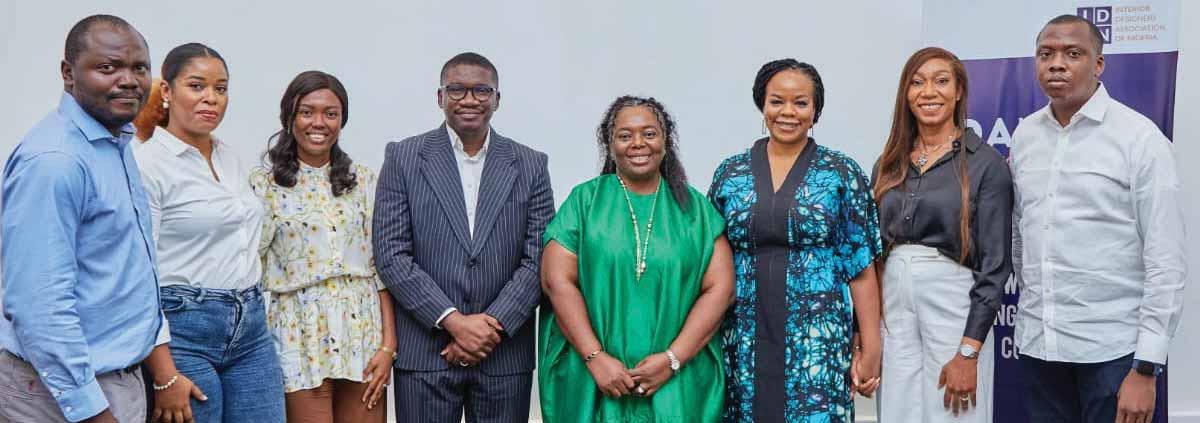
As Nigeria targets a $1 trillion economy by 2030, Centre for the Promotion of Private Enterprise (CPPE) has projected that the country’s Gross Domestic Product (GDP) could reach an estimated $450 billion by the end of 2025 if there was no major disruption in the economy.
The projection was made yesterday by economist and founder of CPPE, Dr. Muda Yusuf, in a press release, titled “CPPE Statement on Nigeria’s GDP Re-basing, Q1 2025 GDP Report, and Sectoral Analysis.”
CPPE also argued that future re-basing exercises should be conducted more regularly and in a timely manner, in line with global standards in order to maintain the relevance and credibility of Nigeria’s economic data.
Yusuf stated, “According to the newly rebased figures, Nigeria’s nominal GDP was reported at N372.82 trillion as of 2024, representing a 41 per cent increase over the 2019
nominal GDP.
“The economy recorded a growth rate of 3.38 per cent in 2024. In Q1 2025, GDP growth moderated slightly to 3.13 per cent, with total output for the quarter at N94 trillion.
“This brings Nigeria’s cumulative GDP at the end of Q1 2025 to approximately N466 trillion, or an estimated $300 billion.
“As the Nigerian economy progressively recovers from the shocks of the current economic reforms, the CPPE projects that by year-end Nigeria’s GDP could reach an estimated $450 billion barring any major disruption in the economy.”
Yusuf said it was important to note that economic activities in the first quarter were typically subdued compared to the other quarters, which might account for the observed moderation in Q1 GDP growth.
Commenting on the rebased GDP, CPPE welcomed the recent release by National Bureau of Statistics (NBS) of the rebased GDP figures, now anchored to a new base year
Nigeria and Algeria have reaffirmed their commitment to strengthening bilateral relations following a high-level diplomatic engagement between the ministers of foreign affairs of both countries, Yusuf Tuggar (Nigeria), and Ahmed Attaf (Algeria).
According to a statement on Sunday by the spokesman of Nigeria’s Minister of Foreign Affairs, Alkasim AbdulKadir, during the meeting, both ministers exchanged views on shared strategic interests and pledged to deepen cooperation across political, economic, and multilateral platforms. He disclosed that emphasis was placed on revitalizing the NigeriaAlgeria Binational Commission, enhancing regional coordination, and promoting African priorities
on the global stage.
He said in a related development, Tuggar also performed the groundbreaking ceremony for the construction of a new Chancery building for the Embassy of Nigeria in Algiers.
He said the event, which held at Dely Ibrahim—the diplomatic enclave in the Algerian capital— was attended by senior officials, Embassy staff, and members of the Nigerian community.
Speaking at the ceremony, the minister noted the project marks a significant step in modernizing Nigeria’s diplomatic infrastructure. The new Chancery is designed with eco-friendly architecture, enhanced security features, and upgraded facilities to improve consular service delivery and working conditions for foreign service personnel.
of 2019.
The statement said, “This re-basing exercise represents a significant milestone in Nigeria’s economic management, as it enhances the relevance, accuracy, and timeliness of national economic data, and aligns Nigeria’s statistical reporting with international best practices.
“GDP re-basing is a critical statistical exercise that updates the base year used for calculating national output,
ensuring that the structure of the economy is accurately reflected in line with current realities.
“By adopting 2019 as the new base year, Nigeria’s GDP figures now incorporate recent changes in consumption patterns, production technologies, and sectoral dynamics. This provides a more realistic and comprehensive picture of the economy, which is essential for effective policy formulation, planning, and investment
decisions.”
Yusuf said key value propositions of re-basing an economy included improved investment and planning decisions, enhanced macroeconomic analysis, international comparability and credible sectoral insights.
He said, “The availability of more current and robust data enables both public and private sector stakeholders to make better-informed decisions. Investors, policymakers, and
development partners can now rely on more accurate statistics to assess opportunities and risks.
“The re-basing allows for more credible calculation of key GDP-related ratios, such as debt-to-GDP, tax-to-GDP, revenue-to-GDP, credit-to-GDP, and fiscal deficit-to-GDP.
“These ratios are vital for assessing the health and sustainability of the economy, and for benchmarking Nigeria’s performance against global peers.”
Wale Edun tasks startups to revolutionise agriculture
NSIA MD: We're committed to nurturing homegrown solutions with transformative impact
James Emejo in Abuja
Nigeria Sovereign Investment Authority (NSIA) and its partners have announced winners of the third edition of the NSIA Prize for Innovation (NPI 3.0).
A total of $280,000 was earmarked for the competition, designed to support early-stage Nigerian innovators developing transformative solutions to address some of the country’s most pressing challenges.
The winners emerged over the weekend after an intense pitch session at the NPI 3.0 Demo Day, where 10 finalists selected from over 5,000 applicants in
healthcare, agriculture and education, emerged.
They presented their transformative solutions to an expert panel of judges from business and the technology ecosystems.
Speaking at the event, Minister of Finance and Coordinating Minister of the Economy, Mr. Wale Edun, commended NSIA and partners for their boldness in conceiving and implementing the project.
Edun said the federal government will continue to encourage and financially support start-ups to acquire the skills essential to excel globally.
He acknowledged recent investments and impact of local start-ups in creating unprecedented technologies.
The minister challenged local innovators to deliver solutions to boost healthcare, education, and agriculture.
He stated that the country particularly needed new products, and methodologies in agriculture to boost productivity.
He said the federal government will continue to provide a platform to meet the demands in industry, artificial intelligence, general intelligence, and super intelligence.
This year, in addition to
the combined prize pool of $220,000 and a five-week fully funded training programme at Draper University, Silicon Valley, USA, NSIA partnered with the Presidential Initiative for Unlocking the Healthcare Value Chain (PVAC) and Cascador, a leadership and business accelerator, to expand the rewards for participating start-ups. While the Cascador Impact Prize earmarked $15,000 for each of the three start-ups, PVAC Healthcare Innovation Prize also committed $5,000 for three start-ups within the top 10.
Ndubuisi Francis in Abuja
A finance expert and President of the Capital Market Academics of Nigeria (CMAN), Prof. Uche Uwaleke has submitted that despite FX stability and slowing core inflation, the Monetary Policy Committee (MPC) of the Central Bank of Nigeria (CBN) will unlikely ease interest rates in the second half (H2) of 2025, due to a number of variables.
Uwaleke, who spoke at a webinar themed, "Resilience, Reform, and Risk: Nigeria’s Capital Market at Mid-Year," adduced reasons why the
key policy rate may likely remain unchanged in the second half of the year.
The MPC had at its recent 301st meeting retained the Monetary Policy Rate (MPR) at 27.5 per cent, the asymmetric corridor around the MPR at +500/-100 basis points, and the Cash Reserve Ratio (CRR) of Deposit Money Banks (DMBs) at 50 per cent and that of merchant banks at 16 per cent, while the Liquidity Ratio was unchanged at 30 per cent.
According to Uwaleke, the compelling variables which may likely make the MPC retain the
rates in the second half of the year include sustained Federation Account Allocation Committee (FAAC)induced liquidity pressures and pass-through effect to exchange rates.
He also cited the need to preserve real returns and attract portfolio flows, as well as the International Monetary Fund"s (IMF) recommendation for tight monetary conditions in its recent Article IV Consultation report, which advised maintaining positive real interest rates to restore macroeconomic stability.
According to him, while inflation
is projected to moderate slowly, declining further to 20 per cent by December 2025, the MPC is likely to retain MPR at 27.5 per cent in H2 2025.
“Monetary policy is expected to remain tight through yearend 2025, with no MPR cuts likely, unless inflation slows dramatically,” he said, quoting the IMF. He noted that security challenges and governance bottlenecks could constrain private sector response to reforms unless implementation accelerates across states.


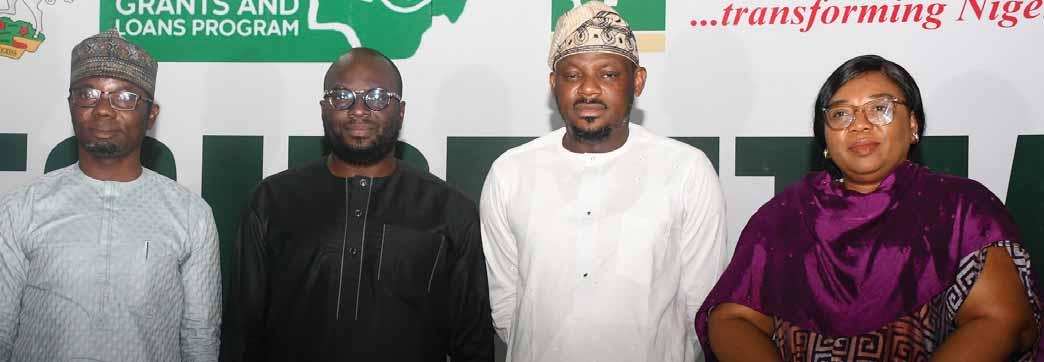
James Emejo in Abuja
Nigeria AfCFTA Coordination Office partnered with World Customs Organisation (WCO) to train no fewer than three million Nigerian businesses on understanding and application of rules governing the export of goods under the African Continental Free Trade Area (AfCFTA).
The move forms part of the federal government’s preparations to take advantage of the intraAfrican trade deal.
National Coordinator of Nigeria AfCFTA Coordination Office, Mr. Olusegun Awolowo, disclosed the partnership during the AfCFTA Rules of Origin workshop for the Organised Private Sectors of Nigeria (OPSN), Small and Medium Enterprises (SMEs), and critical stakeholders in Abuja.
Represented by Technical Director of the project/Senior Trade Expert and Lead at the Nigeria AfCFTA Coordination Office, Mr. Olusegun Olutayo, Awolowo stated that the capacitybuilding initiative aligned with President Bola Tinubu’s Renewed Hope Agenda, particularly in human capital development, trade expansion, and inclusive growth under AfCFTA.
He said the Rules of Origin were among the most critical instruments and a major pillar for qualifying goods for preferential access across the continent, stressing the need for business owners to fully understand and
apply these rules to participate effectively in the new continental trade regime.
Awolowo said, “This workshop is not an isolated initiative. It is part of a broader series of engagements that the Nigeria AfCFTA Coordination Office is rolling out nationwide to demystify AfCFTA instruments for our stakeholders."
He urged participants to master the product-specific rules to ensure compliance and market access, stating, “Upon your return to your respective organisations, organise in-house briefings or peer-learning sessions so that the insights gained here cascade throughout your value chains.”
Comptroller-General of Customs (CGC), Mr. Adewale Adeniyi, represented by Deputy Comptroller-General of Customs (DCG) for Tariff and Trade, Caroline Niagwan, also stated that Nigeria was ready to gain maximum benefits from the AfCFTA agreement and support determined exporters in expanding trade.
Adeniyi highlighted NCS’s improved ICT infrastructure and the establishment of an export command as key efforts to streamline the processing and facilitation of goods for export under the AfCFTA.
In her remarks, WCO Representative, Faith Mathenge, told participants that the EU-WCO Origin for Africa Programme, funded by the European Union, was launched
in July 2022 to support customs administrations, government agencies, regional economic communities, and the private sector in implementing and applying Rules of Origin, with
a focus on the AfCFTA.
Mathenge said, “The programme, in collaboration with the Nigeria AfCFTA Coordination Office, has a clear goal of building cross-sectoral capacity in Rules
of Origin to propel Nigeria into the next level of trade, including intra-African trade, trade with Europe, and trade with the rest of the world.
“I wish to reiterate the
EU-WCO Origin for Africa Programme’s commitment to supporting the NCS and its stakeholders’ capacity-building needs, including any required technical assistance.”
Documentation gaps limit access as N2.9 billion loans approved, N900 million disbursed
James Emejo in Abuja
Managing Director/Chief Executive, Bank of Industry (BoI), Dr. Olasupo Olusi, said it has intensified awareness campaign aims at ensuring that that more businesses took advantage of the 75 billion intervention fund aimed at empowering MSMEs in the country.
The fund also aimed at empowering small businesses creating over 75,000 direct jobs and 150,000 indirect jobs nationwide.
Speaking the Presidential Loan Clinic for MSMEs, Abuja, over the weekend, he reiterated the bank's commitment to improving access to affordable financing.
It was however, gathered that of the N2.9 billion loan approvals, only about N900 million had been accessed by MSMEs - largely due to the inability of businesses to formalise their businesses
among others.
The clinic was organised by the bank in collaboration with the Office of the Special Adviser to the President on Micro, Small and Medium Enterprises and Job Creation.
The event served to allow for deliberations on the progress and challenges surrounding the loan initiative, providing opportunity to reaffirm government’s focus on driving inclusive economic growth through small business development.
Olusi, who offered clarity on the implementation status of the fund, said while loans have been approved for many applicants, some disbursements were being delayed in some cases due to incomplete documentation and other compliance gaps that could easily be resolved.
He was represented by Divisional Head, Multilaterals Division, Mr. Yinka Adegboye.
The MD said, "We have approved several loans, and while some have been
disbursed, others are pending due to reasons ranging from insufficient documentation to compliance gaps.
“This MSMEs engagement is designed to address these challenges head-on. We want every qualified Nigerian entrepreneur to benefit from this fund.”
Olusi emphasised that the programme is in line with the presidential directive to make credit accessible to Nigerian businesses, promote sustainability, support families, and contribute meaningfully to the nation’s Gross Domestic Product.
He said, “We want to support you in a sustainable manner. We are not just providing funds; we are building capacity, monitoring impact, and ensuring that these loans translate to job creation and economic value.
"The funds are still available, and we urge more entrepreneurs to take advantage of them.”
The BoI Regional Manager-
North Central, Nasiru Ozovehe, stated that in the Federal Capital Territory (FCT) alone, the bank had approved funding for 662 businesses totalling N2.9 billion, out of which about N900 million had already been disbursed to 262 companies. He noted that the loan scheme is targeted at MSMEs across all sectors, with a focus on registered businesses that demonstrate potential for growth and job creation. He urged unregistered businesses to formalise their operations to benefit from the fund.
According to him, “The objective of the programme is to support MSMEs with affordable financing, create at least 100,000 sustainable jobs, and improve the overall welfare of Nigerian households.
"The maximum loan amount is N5m, and it is only accessible to businesses with valid registration and documentation.”
Olusegun Samuel in Yenagoa
Azikel Group has dismissed a petition to the Bayelsa State House of Assembly by two trainee staff members of the Aviation Training Programme, which it said was embellished with malicious lies with intent to mislead the public and tarnish the image of the group.
The Azikel Group, a conglomerate with subsidiaries in dredging, power, petroleum and aviation, was alleged by the trainees of systemic betrayal,
prolonged neglect, and a breach of public trust in the petition to the Assembly.
But a statement by the Lead Communication officer of the Azikel Group, Austin Ebipade, said that contrary to the claim of being neglected and subjected to harrowing experience, the duo only underwent in-house training while on salary, in a conducive environment.
"Accordingly, the duo were never abandoned as claimed and at no point were they told the programme is no longer on
course, and so they owe not just gratitude, also apologies for maliciously resorting to cheap blackmail to discredit the reputable image of the company.
"We reiterate that the Azikel Aviation Training Programme is genuine and on course with the sole aim of supporting young Bayelsans interested in pursuing a career in aviation to obtain the best training abroad with a caveat to return to Nigeria having completed the programme," the statement said.
Ebipade averred that the
Aviation firm had resolved to sponsor young Bayelsans interested in pursuing career in aviation by sponsoring them to obtain the best training as pilots for helicopter, fixed wing aeroplane and aircraft maintenance engineering, with no intent of any financial returns to the firm, while the programme is open to all and devoid of any political affinity.
He said the programme’s terms also required that successful candidates would acquire further training courses
in the United States of America and on completion would return to Nigeria.
"The programme is segmented into three phases, which include obtaining the fee-free form while qualified candidates should possess first degree in science, obtain a good score in a computer-based exam with materials provided by the firm.
“Successful candidates will begin training at the Azikel Aviation Hanger for proper mentorship, supervision and character evaluation by certified
US pilots, and upon satisfactory recommendations, all expenses would be paid to fly candidates aboard to the United States with a conviction that as the programme winds up they would return to Nigeria. On the two candidates, Ebilate Amanebe and kariyal Daukoru, it stated that after 16months, that is, March 24 to June 25, management discovered that their conduct was not satisfactory, as they failed the endurance, capacity and security screening.




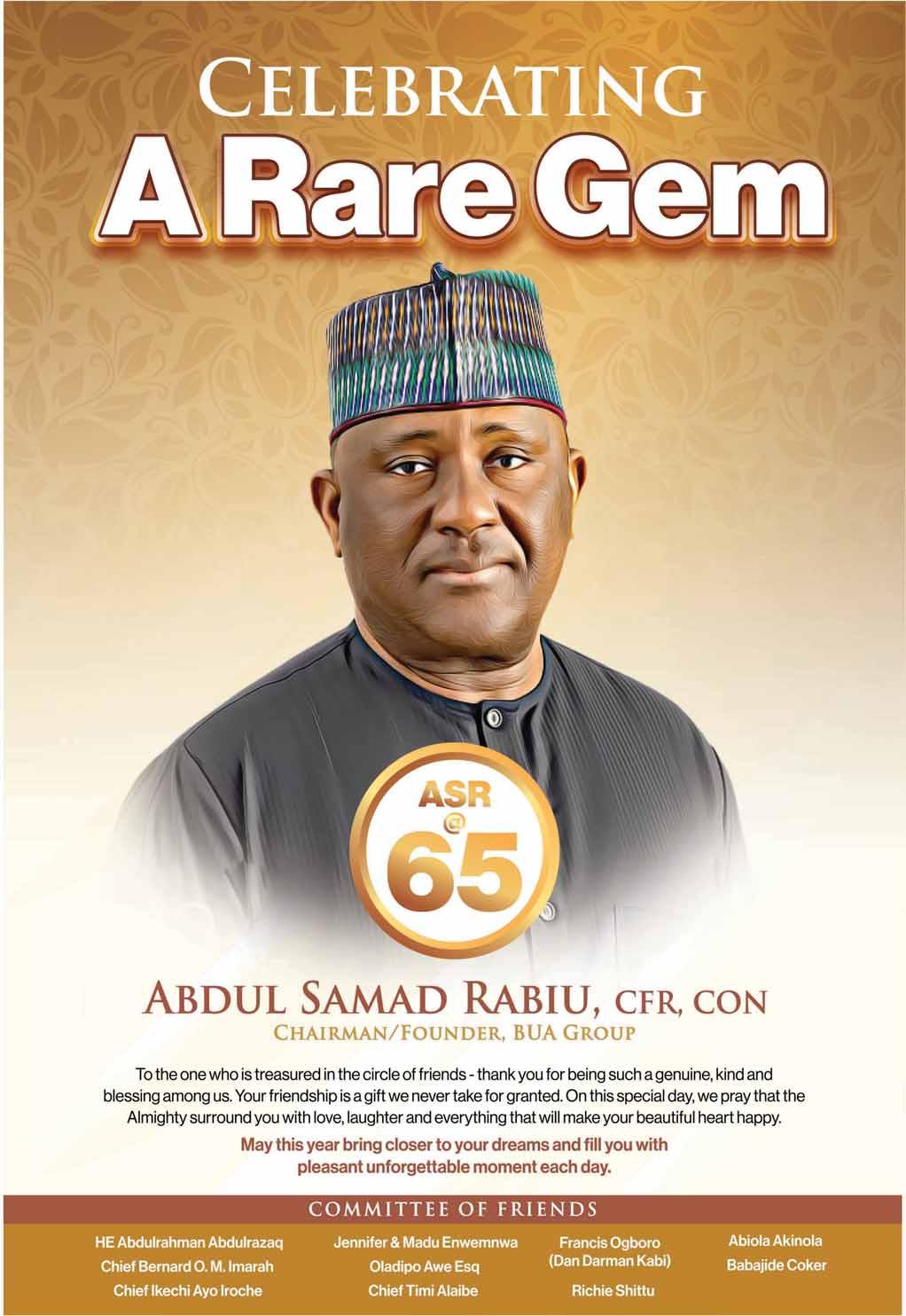
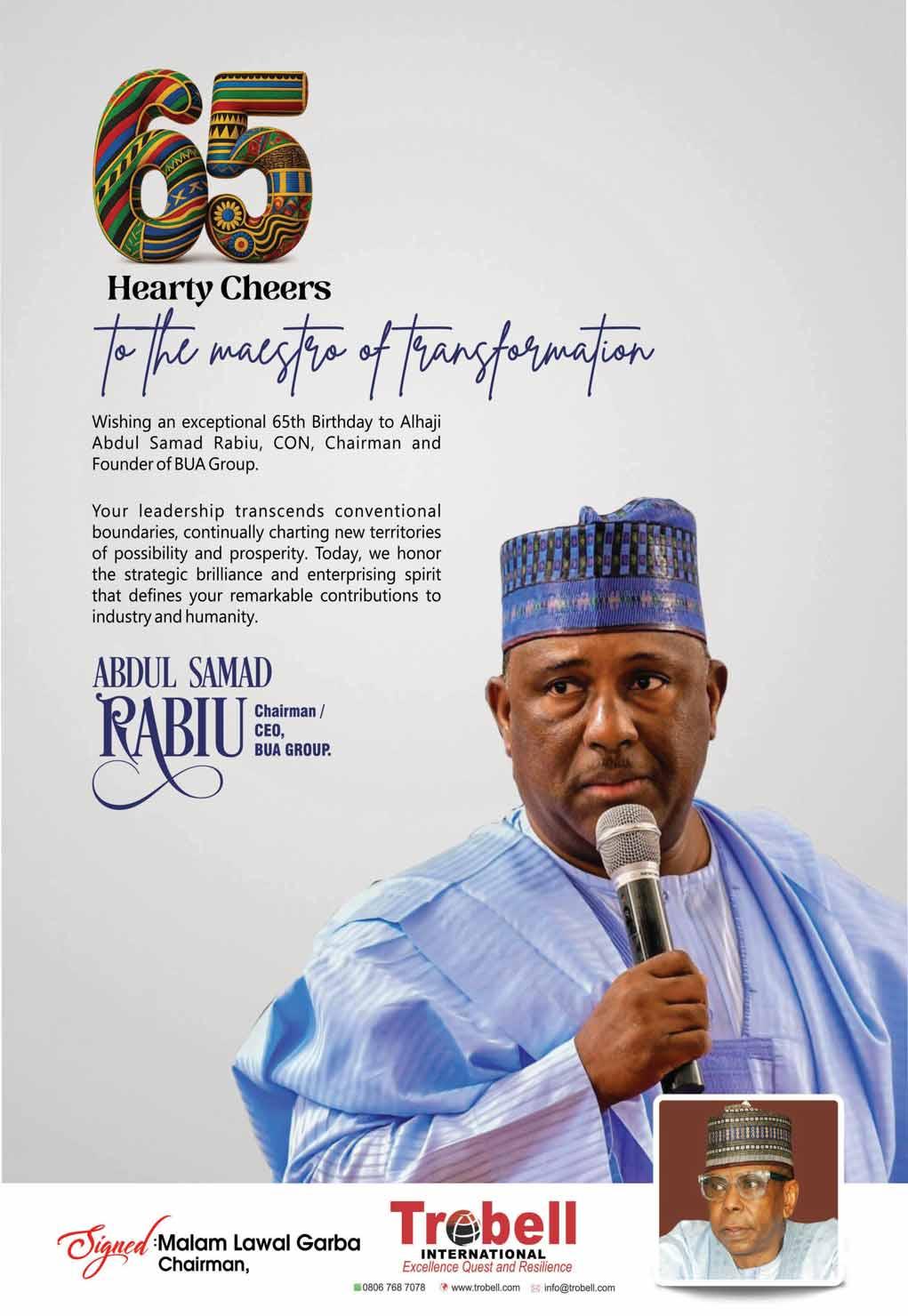
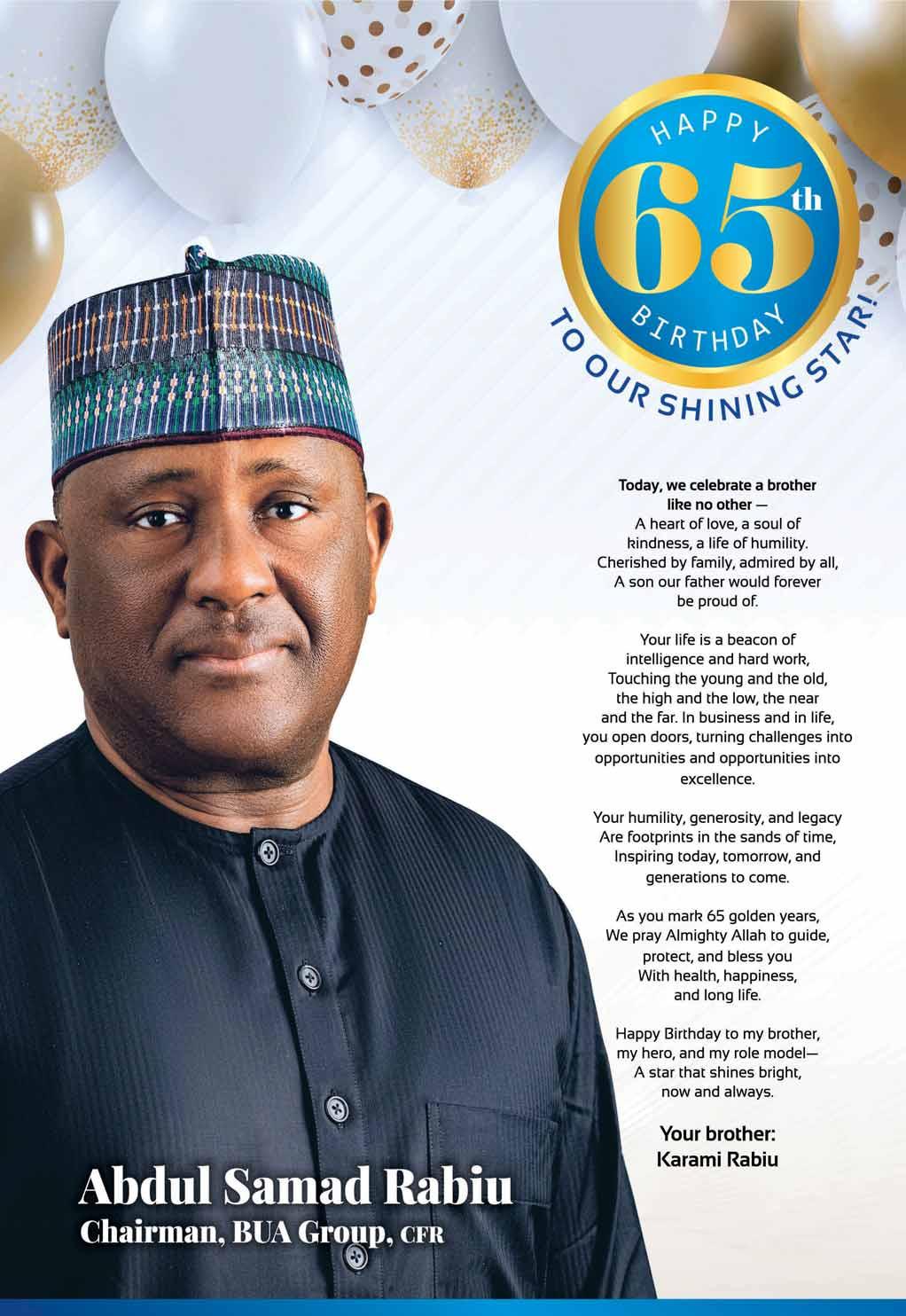
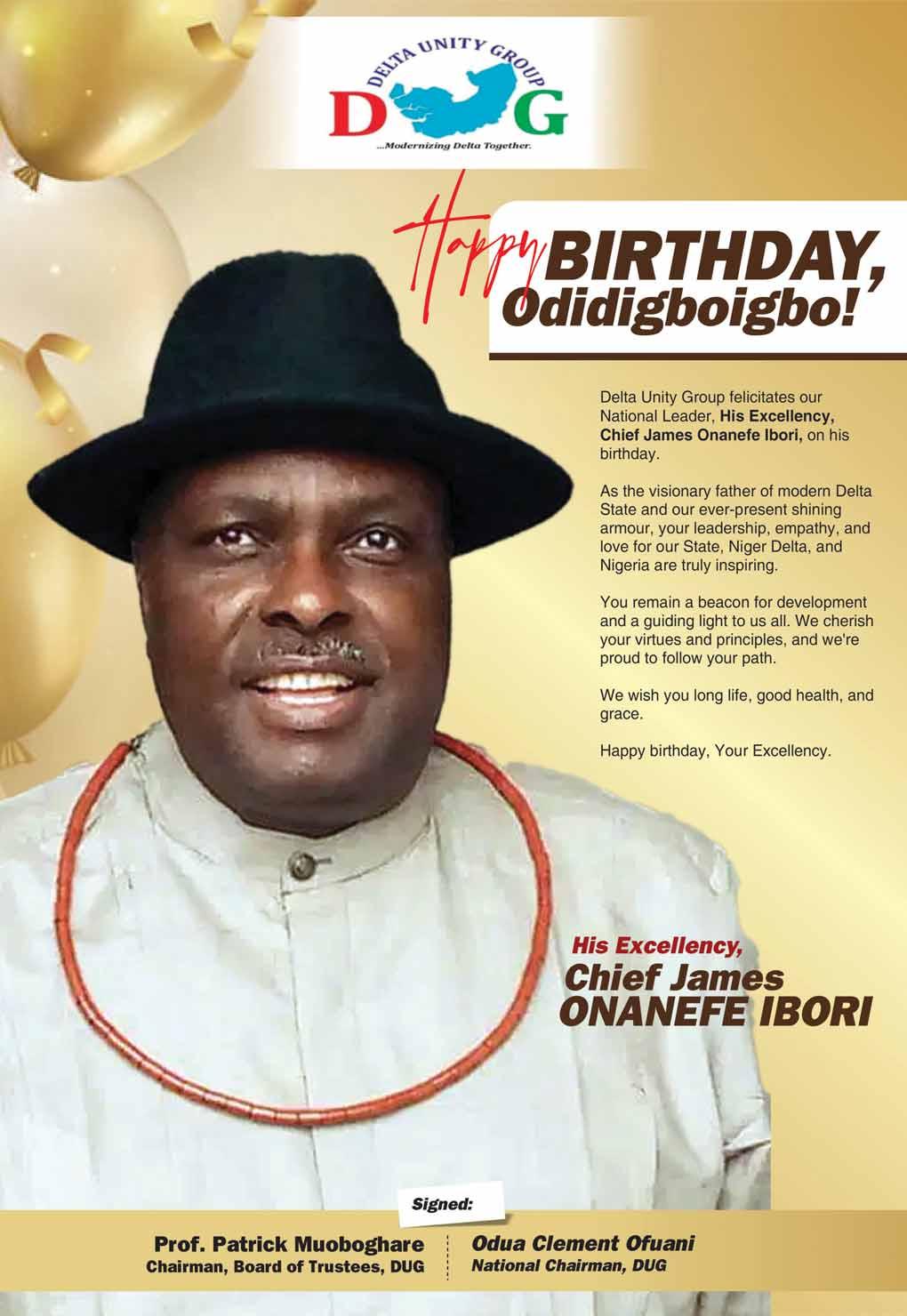
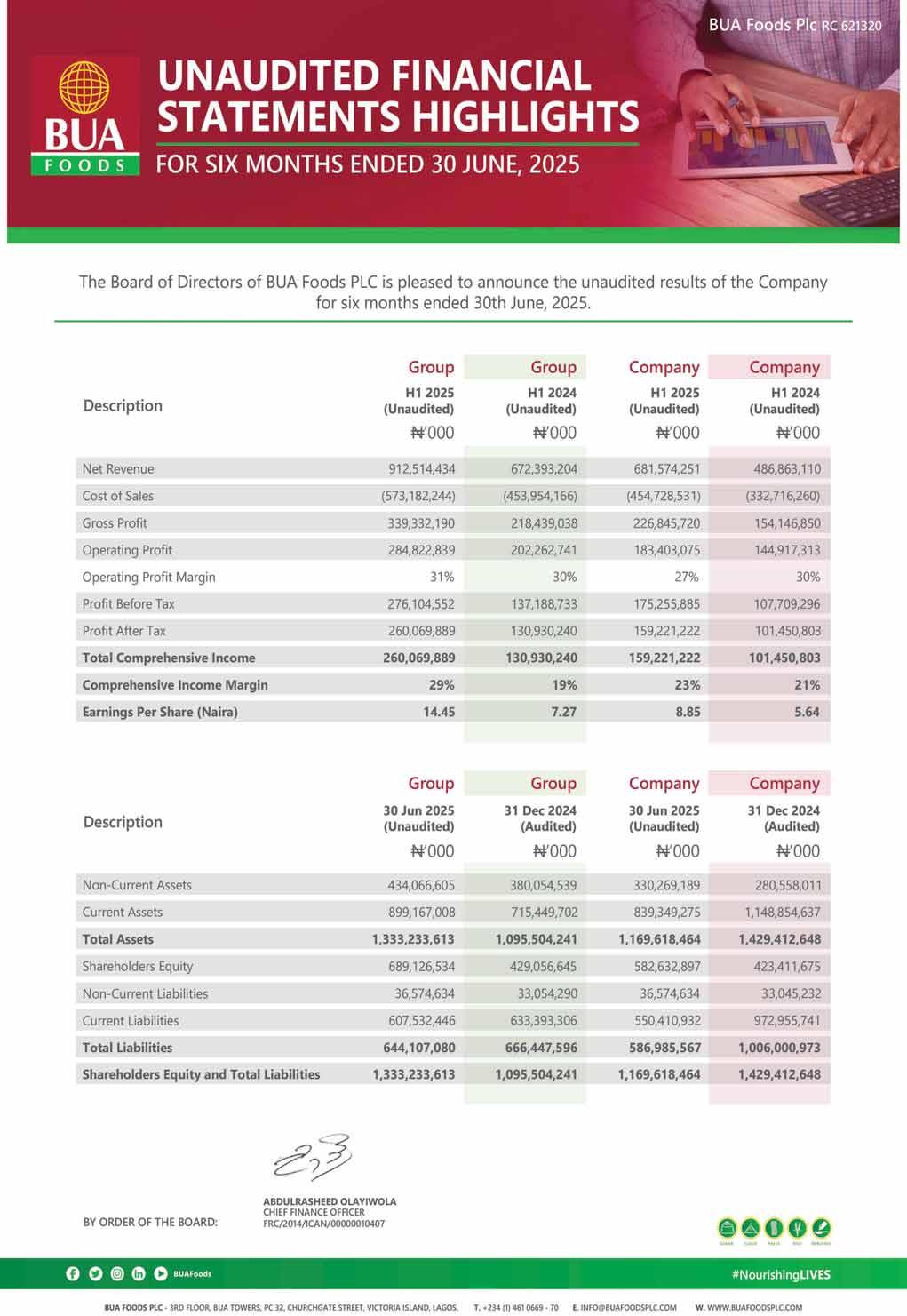
Email: deji.elumoye@thisdaylive.com 08033025611 SMS ONLY
The recent suspension of 85 public office holders including Commissioners in Ebonyi State by Governor Francis Nwifuru is an indication that all may not be well with the two-year old administration in the South-East state. Benjamin Nworie reports.
On July 27, 2025, Ebonyi state governor, Hon Francis Nwifuru, announced the suspension of 85 political office holders. The governor in a statement issued by his spokesman, Dr Monday Uzor, attributed the reason for the suspension of the officials to the failure of the affected appointees to attend government function.
The breakdown of the 85 appointees include 25 Commissioners, 14 Senior Special Assistants, 24 Special Assistants and 22 Permanent Secretaries. The governor also directed that the suspended appointees would continue to come to work within the one month period without salary.
This was not the first time Governor Nwifuru will be suspending his commissioners in similar circumstance. About four months ago, Nwifuru suspended three commissioners for being absent without permission during the State Executive Council meeting. The affected Commissioners were Solomon Azi(Grants and Donor Agencies), Victor Chukwu (Environment) and Ikeuwa Omebe (Rural Development. Unfortunately, two of the Commissioners vis Chukwu and Omebe were also among the 85 newly suspended appointees.
Many people have questioned the rational behind the recent suspension, especially when linked to absenteeism during a burial of a closed friend to Governor Nwifuru. This explanation was given in a reaction to some social media posts which had earlier alleged that the suspension was as a result of abseentism from Nwifuru’s daughter’s birthday.
In his clarification, Special Assistant to the Governor on New Media, Leo Ekene Oketa said: “the Governor’s official engagement for Friday, July 25, 2025 was a funeral at a place called Abofia in Ebonyi LGA of the state. The Governor, Chief Francis Nwifuru was to come back from Abuja on the same day and attend. Due to Air Peace delays on his flight on the same date, he instructed his Deputy Governor to represent him and directed all government officials to be there.
“The Senior Special Assistant to the Governor on State Affairs went ahead and sent notification that the Governor had directed that attendance be taken at the function. So at the office, he requested for the attendance and directed the suspension of those who were not in attendance. This is not the first time the Governor has warned about government officials absenting themselves from government functions. This time, he had to act”.
These ugly developments have elicited reactions from the public to the extent that some people have started probing whether Nwifuru was actually in charge of his government or not.
To a large extent, many people had expected Nwifuru to wield the big stick against anyone who has involved himself or herself in anyway inimical to the realization of the much celebrated Ebonyi Peoples Charter of Needs. But after every threat, no punitive action has been sustained.
The government is over two years in office, and it has no formidable programme and policy directions for actualization.
The realization of the Ebonyi Peoples Charter of Needs has been a routine
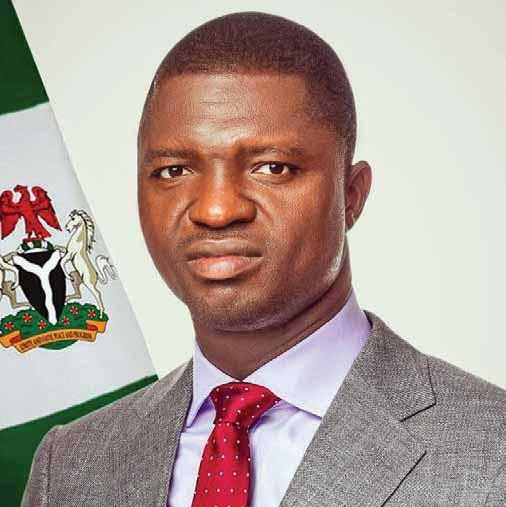
rhetorics and chorus designed to massage the ego of the people, while nothing much is happening to that effect. Rather, the key players have resorted to propaganda and sycophancy.
It was expected that having been part of the past adminiatration of Governor David Umahi (2015 to 2023), Nwifuru should have copied some positives styles which Umahi adopted for the development of the state. It is still on record that Umahi was firmly in control of his government and pursued his policies, projects and programmes vigorously. If not for anything, Umahi brought Ebonyi to limelight with projects too numerous to mention.
However, Nwifuru may have
chosen the opposite style. He has chosen to be simple, humble, easygoing and accomodating or what they use to call a listening governor. The policies and programmes embedded in Nwifuru’s Peoples Charter of Needs were marvelously articulated. Without mincing words, Nwifuru has good intentions to govern and make much impact, like his predeccessors but he is surrounded by “undeniable distractors and kinsmen” who saw the opportunity as “their turn”. Also, the government has shown lack of competent manpower and team to drive its much projected people-oriented agenda. Many of the members of the State Executive Council are bunch of incompetent, visionless and inexperienced cabinet members that have little or nothing to offer in public service.
Nwifuru came to power, with the
The government has shown lack of competent manpower and team to drive its much projected people-oriented agenda. Many of the members of the State Executive Council are bunch of incompetent, visionless and inexperienced cabinet members that have little or nothing to offer in public service. Nwifuru came to power, with the mindset that peace and unity should reign among stakeholders irrespective of political divide. He has achieved this subsantially by bringing almost all stakeholders to join his government.
mindset that peace and unity should reign among stakeholders irrespective of political divide. He has achieved this subsantially by bringing almost all stakeholders to join his government.
All these strange political actors have come under one roof in Nwifuru’s government. Some of them were awarded contracts and also given some political slots. But, what Nwifuru may have forgotten is that the more “enemies” were reconciled to join the fold, the double his enemies when their common interest would be thwarted.
Perhaps, it is so because, a cusory look at the calibre of commissioners, would readily inform anyone that the governor has not taken time to scrutunize and strategize how to achieve his campaign mantra. Most of the commissioners and other aides were either appointed on recommendation or compensation for one reason or the other.
At many fora, Nwifuru had complained over sabotage on the execution of projects and policies. It is regrettable to note that majority, if not all the projects, started since 2023 when Nwifuru’s administration kicked off are still at their “shameful” stages of completion. Worst to mention is the two-kilometer roads awarded to all the communities in the state. Not only that the roads have been slow, the quality of the job is just below appreciable standard.
This is not the only problem Nwifuru’s government has. It is a kingdom that is against itself. The “notorious” Unwuera and Igbojima kindred dicotomy has resurrected. This dicotomy has become unabated clannish war in Izzi Clan, where Nwifuru hails from. The people of Unwuera kindred have alleged marginalizaion and exclusion in Nwifuru’s government.
In an open petition titled “Ethnic capture in Ebonyi: A crisis of justice under Governor Nwifuru’s Watch, A Call for urgent intervention”, Mr Cajetan Njoku alleged that his Unwuera kinsmen were sidelined.
But in a swift reaction, an umbrella body, Izzi Nnodo Youth Forum said it was false and futther called for Njoku’s arrest and prosecution.
Briefing newsmen in Abakaliki, the National President of the Forum, Chibueze Elom said that Governor Nwifuru has equitably distributed all political positions in the state.
Whatever the Unwuera wants to achieve may be immaterial now because whether he has performed or not, Nwifuru has gained a lot of endorsements for obvious reasons.
Other zones especially Ebonyi Central will prefer Nwifuru to finish his second term instead of gambling with a fresher who would “pretentiously” come with “single term agenda” in 2027. Besides all these rhetorics, this is the time for Nwifuru to take decisive actions and come àgainst all forces militating against his government. He needs to speak up on many issues. These issues include stakeholders that have abandoned their contracts and other contractors handling various projects in the state. The governor also needs to speak up to his direct relatives who are currently making the state unfavourable for investors and local traders with exorbitant and outrageous levies and taxes.
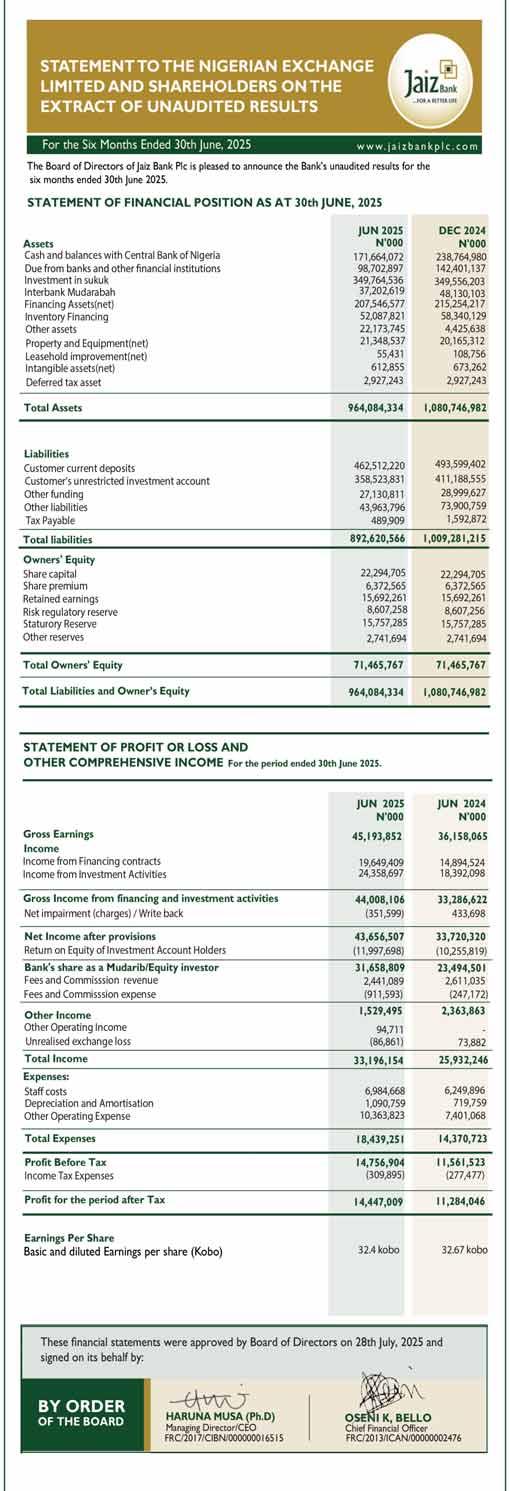

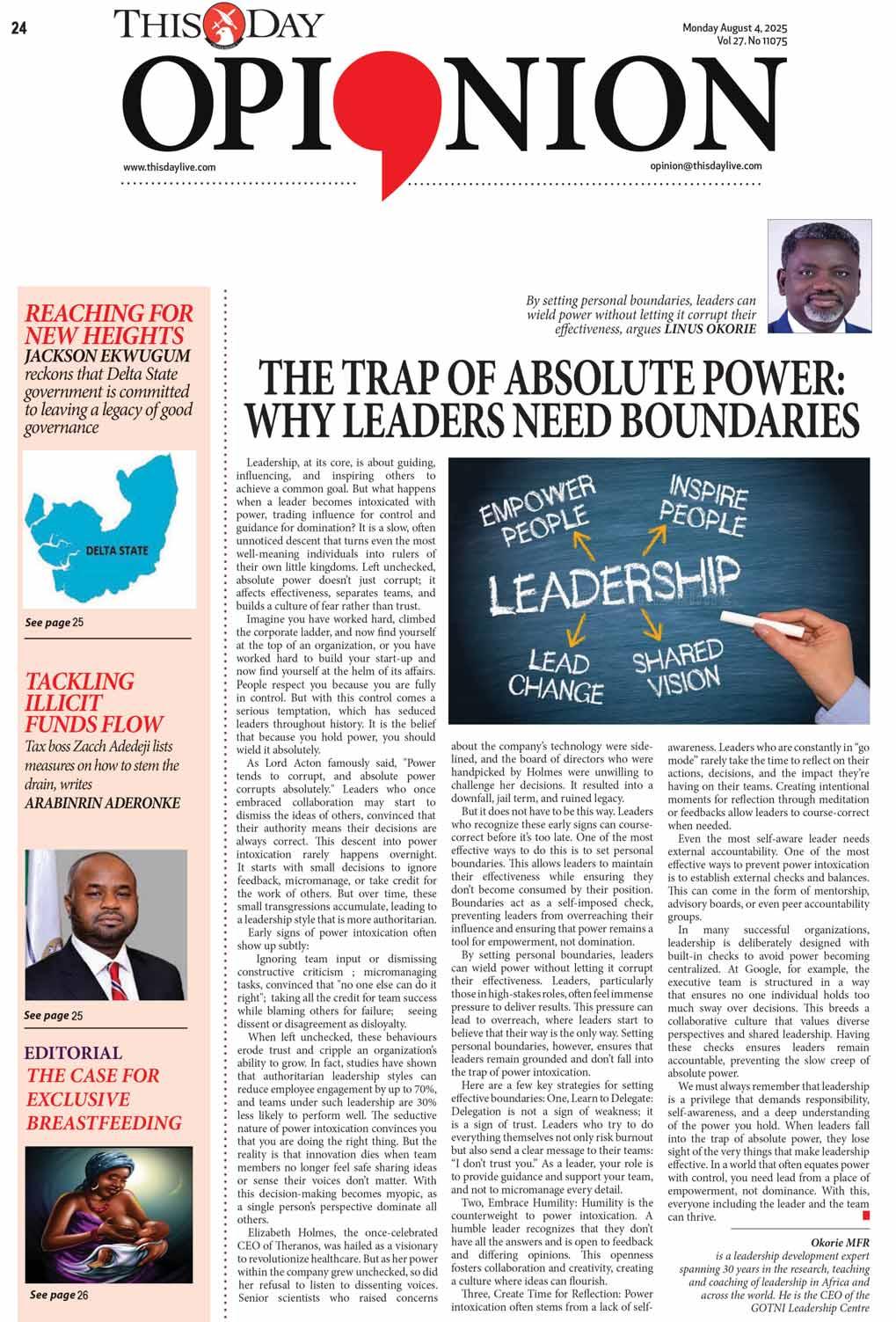
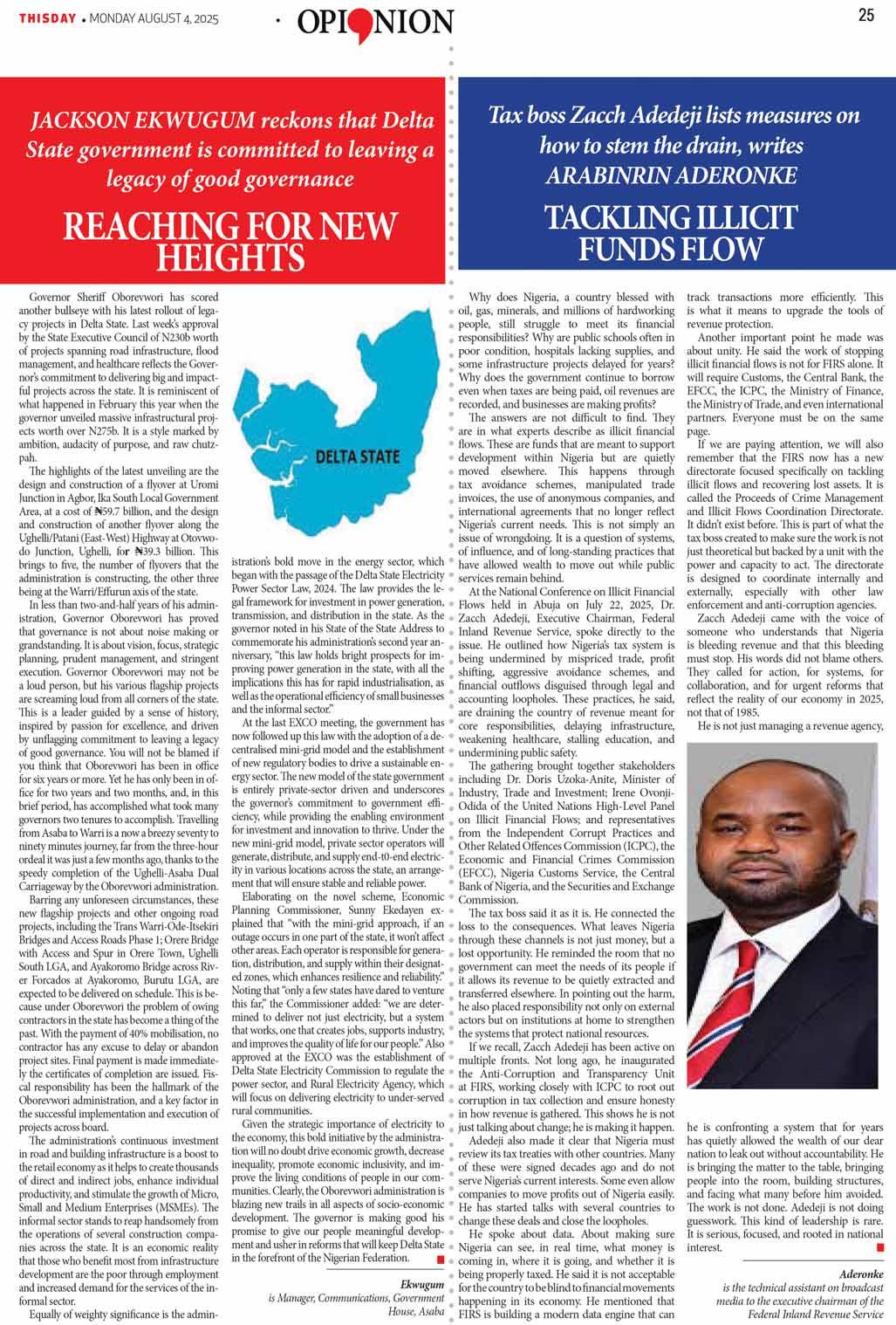

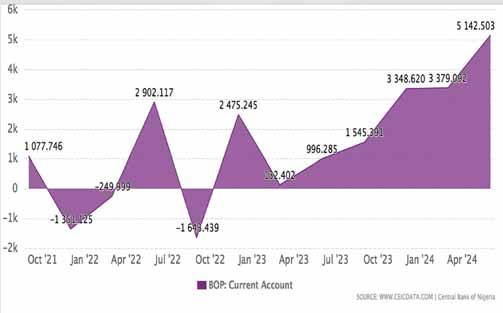
Dike Onwuamaeze
Analysts at Comercio Partners has projected that Nigeria’s currently competitive foreign exchange (FX) market that encourages export and discourages import would enable the country to record 70 per cent growth in Balance of Payment (BoP) in 2025 when compared to its performance in 2024.
Comercio made this projection in its H2 2025 Outlook titled, “Reconfiguration from Global Trade to Quantum Innovation: A New Era Emerges,” in which it said that the global stage is being redrawn by the emergence of a resource-based order, which is termed Bretton Wood III, where control over water, food, energy and critical minerals are eclipsing traditional financial hegemony as the cornerstone of national power.
It said: “By the end of 2025, we expect the BoP to grow around 70 per cent compared to 2024 supported
by the currency (Naira) now being at a competitive rate that encourages exports and discourages imports. Additionally, savings from reduced oil importation, given Nigeria’s declining reliance on imported petroleum products, are also contributing to this improvement.”
The report added, “Nigeria’s BoP has been improving steadily. In 2024, the country recorded a BoP surplus of $6.83 billion, marking a clear turnaround from deficits of $3.34 billion in 2023 and $3.32 billion in 2022.”
It added that in Q1’25, Nigeria posted a current account surplus of $3.73 billion, which amounts to about 54 per cent of the total recorded for the entire Year 2024.
The report also said that Nigeria has enough reserves to offset its debt servicing burden in 2025.
It stated, “Looking at Nigeria’s external debt obligations, the total coupon payments for H2 2025,
combined with the $1.118 billion Eurobond principal maturing in November 2025, amount to $1.813 billion.
“Given current reserve levels, this debt service burden is covered approximately 20 times over. We project external reserves to reach approximately $43 billion by year end, reflecting a 15.6 per cent increase from their end-June 2025 level.”
The report identified stable exchange rate of the Naira, rising foreign exchange inflows, and remittances and a decline in imports of oil and other goods as favourable factors driving Nigeria’s increasing foreign reserves.
It also identified repayment of Eurobond principal and interest, bearish oil prices and ongoing domestic production challenges as potential headwinds in accumulating foreign reserves.
However, Comercio stated that even though the government has
Amid excess liquidity in the financial sector, banks and merchant banks borrowing from the Central Bank of Nigeria (CBN) dropped by 12.84 per cent to N65.53 trillion in seven months of 2025 compared with N75.18 trillion borrowed in seven months of 2024.
According to the “Financial Data” released by the CBN, banks and merchant banks deposit,
however, grew significantly by 671.2 per cent to N79.84 trillion in seven months of 2025 as against the N10.35 trillion deposited in seven months of 2024.
Banks and merchant banks access lending from the apex bank using the Standing Lending Facility (SLF) window and deposit excess cash with the apex bank using the Standing Deposit Facility window (SDF).
and merchant banks through the SLF at an interest rate of 500 basis points (bpts) above the Monetary Policy Rate (MPR), accepts deposits from banks and merchant banks through its SDF and pays an interest rate of MPR minus 100 basis points.
The CBN lends money to banks
The Monetary Policy Committee (MPC) of CBN since November 2024 hike MPR to 27.50 per cent from 27.25 per cent in the bid the tackle inflation and stabilize Naira at the foreign exchange market.
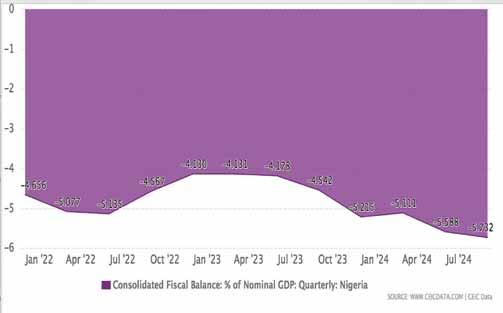
positioned its reform measures as painful but necessary, it could be argued that, “they reflect a prioritisation of debt repayment over genuine economic development.”
It recalled that Nigeria completed the repayment of its $3.4 billion COVID 19 emergency facility from IMF in April 2025 but remarked that, “while the financials debt may be cleared, the social cost of that borrowing remains unpaid. Nigerians are grappling with recordhigh inflation, unemployment and worsening poverty levels with little relief in sight.”
Commenting on the macroeconomic outlook report for H2’25, the Managing Director/Chief Executive Officer (CEO) of Comercio Partners Capital, Mr. Steve Osho, said that “We are standing on the threshold of a new economic era, one defined not only by shifts in trade dynamics but by the transformative power of innovation at quantum frontier.
“The world trade networks are undergoing profound recalibration as geopolitical tensions, supply chain realignments and digital trade growths are reshaping traditional models of doing business.”
Osho said that emerging markets are asserting greater influence, and economic resilience is increasingly leading to adaptability and calibration across borders.
“In this transformative era, we must embrace change not as a challenge, but as an innovation to innovate boldly and grow sustainably,” he said.
Also, the CEO of Comercio Partners Trading, Mr. Nnamdi Nwizu, said that the imposition of tariffs and the policy of “America First” by resident Donald Trump of the United States, has had massive impact on global trade and economy.
Nwizu said: “On the local front, the reforms initiated by the federal government seem to be working. The
However, the MPR has remained at 27.50 per cent since the beginning of 2025.
N38.12 trillion, about 210.15 per cent increase when compared to N12.29 trillion in 2023.
The CBN governor, Mr. Olayemi Cardoso had disclosed that the apex bank removed the cap on the remunerable SDF to increase activity in the SDF window and manage liquidity.
Naira has appreciated by circa 8.0 per cent against the dollar despite the reserve dropping by $3.5 billion as the CBN cleared the foreign exchange backlog. We have become the darling of foreign investors once again, with investments seen in Nigeria Treasury Bills and bonds.”
Speaking in the same vein, the CEO of Commercio Partners Asset Management, Mr. Tosin Osunkoya, said that the macroeconomic report is the Comercio’s contribution to providing clarity on global and Nigeria’s economy.
Osunkoya said: “It distills the economic signals shaping the year ahead both seen and emerging. From the implications of protectionist trade environments like the renewed “America First” agenda to the microlevel impacts of Nigeria’s fiscal and monetary resets, this report offers an integrated view of a world in flux and a country determined to find its footing within it.”
cent. The policy change was communicated through a circular issued by the Director of the Financial Markets Department, CBN, Omolara Duke. The circular instructed all authorised financial institutions to acknowledge and implement the updated structure, which supersedes the previous framework. RATES AS AT AUGUST
In 2024, the CBN shifted to a single-tier remuneration structure for the SDF. Previously, deposits up to a certain threshold, for example N3 billion, earned a higher interest rate, while amounts exceeding that threshold earned a lower rate.
With the policy, the banks and merchant banks deposit with CBN increased significantly to
In a circular addressed to DMBs, CBN said the SDF will now be 26.5 per cent. This represents a sharp increase from the previous
The story continues online on www.thisdaylive.com
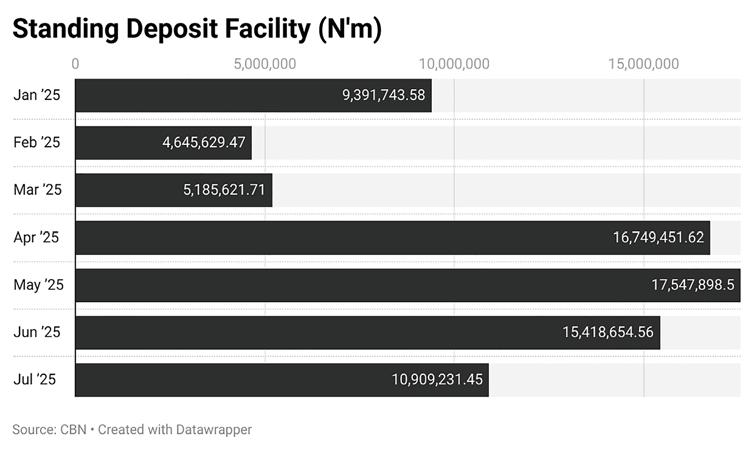

Despite the increase in prices of crude oil and products, Totalenergies Marketing Nigeria Plc and five others listed Oil & gas companies on the Nigerian Exchange Limited (NGX) declared a total of N250.84 billion profit in half year ended June 30, 2025, about 3.1 per cent drop from a total of N258.9 billion declared in the same period in 2024.
Others are: Oando Plc, Eterna Plc, Conoil Plc, Aradel Holdings Plc, and Seplat Energy Plc. Petroleum marketing companies are facing significant struggles due to a combination of macroeconomic, policy, operational challenges, and the instability in global oil prices, largely caused by the ongoing tension in the Middle East.
THISDAY analysis of the unaudited results & accounts of these six oil & gas companies showed mixed outcome with Totalenergies Marketing Nigeria declaring N2.86 billion loss in H1 2025 from N20.57 billion profit in
H1 2024, while Eterna migrated from a loss of N4.84 billion in H1 2024 to N573.8 million profit in H1 2025.
On its, Conoil’s profit stood at N900.42 million, a decline of nearly 89 per cent from N8.02 billion declared in H1 2024 while Seplat Energy declared N42.52 billion profit, a drop of 37.5 per cent from N68.06 billion reported in H1 2024.
Conoil, known for its sale of regulated gasoline, diesel, kerosene, aviation fuel, and its lubricant brand “Quatro,” had cited lower product demand and surging finance costs as key contributors to the profit decline.
Aradel Holdings is the only company with a significant increase in profit, reaching N146.39 billion in H1 2025, about a 40.2 per cent increase over N104.43 billion reported in H1 2024.
On the other hand, Oando declared a modest increase in profit to N63.3 billion in H1 2025, representing an increase of 1.06 per cent from N62.64 billion declared in H1 2024.
Rewane to Speak on Aviation Finance
Renowned financial analyst, Mr. Bismarck Rewane will speak on Aviation Financing in Nigeria: The Risks, Opportunities and Prospects, on Thursday in Lagos
Group Business Editor
Eromosele Abiodun
Deputy Business Editor
Chinedu Eze
Comms/e-Business Editor
Emma Okonji
Asst. Editor, Energy
Emmanuel Addeh
Asst. Editor, Money Market
Nume Ekeghe
Correspondents
KayodeTokede(CapitalMarkets)
James Emejo (Finance)
Ebere Nwoji (Insurance)
Reporter Peter Uzoho (Energy)
at the 29th Annual Conference of League of Airport and Aviation Correspondents (LAAC).
Rewane, who is the Managing Director of Financial Derivatives Company Limited and also a respected voice in Nigeria’s economic and financial policy circles will be the keynote speaker. He is expected to bring deep insights into macroeconomic trends, investment flows, and sustainable financing strategies critical to the aviation sector’s future, as Nigeria has been eased off from blacklist by lessors.
The conference has drawn substantial industry interest and endorsements, with robust participation anticipated from across the aviation and finance sectors.
Nigeria’s Minister of Aviation and Aerospace Development, Festus Keyamo, will attend as Special Guest of Honour, lending crucial government perspective to the conversation around financing frameworks, reforms, and policy directions.
The Director-General of the Nigeria Civil Aviation Authority (NCAA), Captain Chris Najomo, will deliver a regulatory goodwill message, affirming the Authority’s commitment to an enabling investment environment and sustainable oversight regime.
THISDAY learnt that these companies are faced with challenges of slow revenue generation, a hike in the cost of sales. and finance cost.
In the period under review, the six companies declared N4.98 trillion revenue, about a 33.45 per cent increase from N3.73 trillion reported in H1 2024.
The likes of Oando, TotalEnergies and Conoil declared a significant drop in revenue, while Seplat Energy, Aradel Holdings and Eterna posted 276.8 per cent, 37.2 per cent and 6.9 per cent
increases in revenue, respectively.
As Oando posted N1.72 trillion revenue in H1 2025, about a 15.27 per cent decline from N2.03 trillion in H1 2024, Conoil announced N143.65 billion revenue in H1 2025, representing a decline of 20.4 per cent from N180.57 billion declared in H1 2024.
TotalEnergies closed H1 2025 with N423.9 billion, a drop of 20 per cent from N529.9 billion reported in H1 2024.
Cordros Research in a report attributed the performance in TotalEnergies revenue to the
lower volumes in the period, despite product prices being higher compared to the prior period – PMS: +53.1per cent y/y, AGO: +21.9per cent y/y, and DPK: +48.3per cent y/y. “We believe that the influx of relatively cheaper products from the Dangote Refinery through its trading partners limited the product offtake from TotalEnergies’s retail outlets and B2B channels,” the firm added.
Oando, in a statement, said the 15 per cent drop in revenue is on the backdrop of a slowdown in
trading activity, despite stronger performance in the Exploration & Production (E&P) segment. The Group Chief Executive, Oando, Mr. Wale Tinubu in a statement said, “Our trading segment faced headwinds which exerted pressure on the entity’s revenue and the Group’s topline as a result of declining PMS imports into the country due to rising local refining capacity from the Dangote Refinery, a positive development that enhances Nigeria’s energy security and self sufficiency.”
Nume Ekeghe
Nigerian Foreign Exchange Market (NFEM) recorded a total of $3.83 billion in inflows in July, as strong contributions from local sources, particularly individuals, non-bank corporates, and the Central Bank of Nigeria (CBN), helped sustain momentum in the market.
According to the latest figures from FMDQ, domestic participants accounted for 54.2 per cent of the total inflows, reflecting resilient confidence in the FX market despite prevailing macroeconomic challenges. Notably, inflows from individuals rose by a significant 117.5 per cent month-on-month (m/m), while the CBN increased its contribution by 77.8 per cent. Non-bank corporates also posted a moderate 5.4 per cent uptick in inflows.
Analysts believe the strong domestic showing helped counterbalance a dip in inflows from foreign sources, which stood at $1.75 billion—down 35.6 per cent from the previous month. Foreign investors accounted for 45.8 per cent of total inflows, with lower activity recorded across Foreign Direct Investment (FDI), Foreign Portfolio Investment (FPI), and other corporate channels. FDI fell by 79.8 per cent, FPIs declined 34.8 per cent, and other corporates dropped 60.1 per cent.
Meanwhile, inflows from the Exporters and Importers (I&E) window, a key driver of market liquidity, moderated by 30.1 per cent in July. However, the overall impact of this decline was offset by renewed local interest and increased support from monetary authorities.
Cordros Securities in a
report stated: “According to the data from FMDQ, total inflows into the Nigerian Foreign Exchange Market (NFEM) declined by 20.9 per cent m/m to $3.83 billion in July, June: $4.84 billion), primarily driven by declines in inflows from both foreign, 45.8 perof total inflows and local sources, 54.2 per cent of total inflows.
“Specifically, inflows from foreign sources dropped by 35.6 per cent m/m to $1.75 billion from $2.73 billion in June following declines in inflows across FDIs, -79.8% m/m, other corporates (-60.1 per cent m/m and FPIs -34.8 per cent m/m segments. At the same time, inflows from local sources marginally declined by 1.9 per cent m/m to $2.07 billion primarily due to the decline in the Exporters/ Importers -30.1 per cent m/m) segment. Inflows
from individuals (+117.5 per cent m/m), CBN (+77.8 per cent m/m), and non-bank corporates (+5.4 per cent m/m) segments recorded higher accretions.”
In the short term, analysts project that FX inflows—both local and foreign—will continue to improve and surpass 2024 levels, which averaged $2.51 billion monthly. The outlook is supported by relatively attractive naira yields, increased market transparency, and improving macroeconomic fundamentals. They further stated: “In the near term, we expect foreign exchange inflows from both local and foreign sources to remain robust surpassing 2024 levels (2024FY average: $2.51 billion) driven by improving market confidence and stillattractive naira yields for foreign portfolio investors (FPIs).”
In a bold step to address housing shortage in Nigeria, Haldane McCall Plc, has unveiled plans to launch a N250 billion bond programme to support its real estate expansion initiative.
With this plan, the Real estate and hospitality firm listed on the Nigerian Exchange Limited (NGX) has projected profit of N1 billion for the 2025 financial year.
Speaking at a media briefing in Lagos, Group Managing
Director, Edward Akinlade revealed plans to deliver 650 affordable housing units annually across Lagos and Ogun States through a Public- Private Partnership (PPP) .
To kickstart the initiative, Akinlade noted that the company will roll out the first tranche—worth N75 billion—of its N250 billion bond programme before the end of the year. “We plan to leverage the capital market.
“The Nigerian Exchange (NGX) offers access to much-
needed funding. We’re working on the bond issuance process, including securing regulatory approvals and obtaining a bond rating before presenting it to the public. Progress is being made.”
Akinlade added, “We operate in both the real estate and hospitality sectors. The hotel market in Lagos is lucrative and generates significant cash flow. Our approach is to collaborate with subcontractors and partners to deliver 650 units yearly. Over the next three years, we aim to invest N250
billion in the real estate sector. Additionally, our extensive land holdings in Lagos provide us with opportunities to unlock liquidity.”
Reinforcing the company’s vision, Deputy Group Managing Director Abiola Elugbaju stated, “At Haldane McCall, our mission goes beyond constructing houses. We are building communities and delivering long- term value for our investors through innovative partnerships and sustainable investment strategies.”
Access Bank continues to assert its influence across Africa, with its subsidiaries in Ghana and Gambia named “Best Bank 2025” by Euromoney. These prestigious awards affirm the Group’s long-term strategy, growing footprint, and unwavering commitment to transformative and inclusive banking across the continent.
The dual victories represent strategic milestones in Access Bank Group’s ambition to become Africa’s most respected financial institution. Operating in 24 markets, the Group is redefining pan-African banking by fusing deep local insights with global best practices.
In Ghana, the award recognises the bank’s resilience, innovation, and commitment to digital transformation. From empowering SMEs to advancing
sustainability, Access Bank Ghana continues to deliver purposeful value.
“We are proud to lead a new era of banking in Ghana, one that prioritises inclusion, innovation, and sustainable development,” said Olumide Olatunji, Managing Director, Access Bank Ghana. For Access Bank Gambia, the award, its second consecutive win, underscores its deepening impact in financial inclusion and ESG-led banking. Through branchless models and strong community engagement, it is expanding access and delivering meaningful outcomes. “We remain committed to going beyond banking by delivering value that builds sustainable communities,” noted Stephen Abban, Managing Director, Access Bank Gambia.
These recognitions spotlight Access
Bank’s deliberate continental growth strategy, one that views Africa not as a monolith, but as a diverse and opportunity-rich region.
Group Managing Director Roosevelt Ogbonna recently articulated the rationale behind the Bank’s expansion efforts. “If you take Africa as a continent and split it into five zones, Nigeria and West Africa rank fourth out of five from a retail perspective,” he said. “In today’s terms, Central Africa may offer a richer banking pool than West Africa.”
This insight underpins the Bank’s push into Southern, Eastern, and Northern Africa, regions with attractive return-on-equity potential and favourable macroeconomic conditions. “Money can be made in these regions,” Ogbonna noted, “and Access Bank is positioning itself to tap into those opportunities while delivering value to customers and
shareholders alike.”
These Euromoney awards serve as a validation that this strategy is not bold and working. The achievements in Ghana and Gambia are evidence of tangible progress.
As Access Bank continues its pan-African growth, the recognitions in Ghana and Gambia offer a glimpse into the future, a future where the Bank is not only expanding geographically, but also transforming lives, elevating standards, and building trust in every market it enters.
With a strong focus on inclusion, sustainability, digital innovation, and regional integration, Access Bank is doing more than winning awards, it is helping reshape the narrative of African banking. As its footprint expands, so too does its impact, making excellence not just an aspiration, but a lived reality.
NASD OTC Exchange Plc has announced outstanding financial results for the first half (H1) of 2025, with significant improvements
across all major performance indicators.
This follows a very positive 2024 Financial year-end performance from which the Board will propose a cash dividend of 20 kobo per
The Interior Designers Association of Nigeria (IDAN) has called on interior design and creative industry players to examine structural gaps in their businesses and build enterprises defined by integrity, resilience, and long-term value.
This charge was delivered during the 2025 IDAN CEO Roundtable Series in Lagos, themed, “Building Sustainable Systems & Structures for Interior Design Businesses.”
Keynote speaker and Group Managing Director of D’ulo Group, Mrs. Nwamaka Okoye, emphasised intentionality and identity in building a sustainable design practice, stating, “You must define your identity. Who are you? What will you do - and not do? Who do you serve, and what is your end goal?” She highlighted the importance of embedding systems and processes within a business, noting that without structure, even passionate businesses struggle to thrive.
“Strategy is essential, but it must be supported by clear systems and repeatable processes to function effectively,” she added.
CEO of Micdee, Mr. Michael Awonowo, urged design practitioners to treat their passion as a business and build foundational structures for longterm success. “Interior design is more than just a passion—it is a business. And like any other business, it must be structured to perform, scale, and outlast its founders,” he said.
Managing Partner and Chief Strategy Officer at Arno, Mr. Byron Chukwudi, added,
“Businesses without purpose are doomed. Interior designers must move beyond talent to build systems-driven enterprises that are future-ready.”
IDAN President, Ms. Jacqueline Aki, underscored that structural reform is non-negotiable for the profession to mature. “Structure is not optional; it’s become the only way forward. Our industry has always had passion. Now, we must build permanence. This Roundtable is a call to all designers to pause the hustle, reflect deeply, and lay the foundation for legacy.”
She emphasised education and community as core to sustainability: “We cannot build a thriving industry without equipping its stewards. This series invites us to unlearn, reframe, and begin again with context and community as our compass.”
Chair of IDAN’s Education Committee, Mr. Abiodun Shonibare, explained that the Roundtable aligns with IDAN’s 2025 strategic goals, including strengthening the identity and public perception of interior design, fostering scalable firms, equipping firm leaders, and creating regional opportunities for collaboration.
IDAN Secretary General, Theresa Ephraim, reiterated the objective of the series: “The CEO Roundtable aims to equip members with practical knowledge to structure their businesses, operations, and systems so they can outlive their founders.” The 2025 edition comprises three purpose-built sessions designed to help CEOs assess internal gaps and reimagine the future of interior design firms in Nigeria.
ordinary share and a bonus share issue of one new share for every five held. These proposals will be presented for approval at the Company’s Annual General Meeting (AGM) scheduled for August. For the H1 ended June 30, 2025, NASD reported a 308 per cent increase in revenue, reaching N657 million, compared to N161 million in the same period last
year. Profit Before Tax (PBT) rose dramatically by 646 per cent, hitting N341 million versusa loss of N63 million in H1 2024, signalling a strong financial rebound.
Operational efficiency improved significantly, with the cost-to-income ratio declining to 48 per cent from 139 per cent.
A standout figure in the period was originating income, which soared to N332 million,
up from just N1.3 million in the previous year, an extraordinary 26,000 per cent increase, driven by strategic focus and improved market engagement.
Speaking at a media briefing held in Lagos over the weekend, Managing Director and Chief Executive Officer of NASD, Eguarekhide Longe, shared insights on the Company’s performance and market trajectory. He noted that
NASD’s share price has appreciated by 93.29% year-to-date, climbing from N15.51 on January 1, 2025, to N29.98 as of July 31, 2025. According to him, since NASD’s listing on the Nigerian capital market in 2013 at an offer price of N1.50, the share price has surged by 1,898 per cent, translating to a Compound Annual Growth Rate (CAGR) of 28.35 per cent.
Emma Okonji
Cascador has awarded the sum of $45,000 to three standout Nigerian businesses delivering transformative solutions in agriculture, health and clean energy at the 2025 NSIA Prize for Innovation (NPI) Pitch Day. The winners of Cascador’s Prize for Impact were recognised for their scalable models and measurable impact in underserved communities.
Hosted by the Nigeria Sovereign Investment Authority (NSIA), NPI Demo Day is part of a national initiative that identifies and supports high-potential ventures advancing Nigeria’s economic and social development goals. Ten finalists from across the country presented investment-ready businesses to an audience of investors, stakeholders and innovation partners.
As a partner to NSIA in the third edition of the NSIA Prize for Innovation, Cascador awarded $15,000 each to three of the 10 finalists underscoring a shared commitment to supporting mission-driven entrepreneurship and inclusive growth across Nigeria. These ventures demonstrate how innovation, when rooted in purpose, can drive sustainable impact at scale.
Among the Cascador Impact winners was PromisePoint, a women-led cassava processor that has trained more than 10,000 smallholder farmers and signed a N1 billion contract with Nestlé Nigeria. Speaking about the award, its Founder, Bukola Joy Farinde, said: “Winning the Cascador Prize is not just recognition, it’s validation of our belief that rural women can power Nigeria’s food future.”
Also recognised was FriendnPal,
an AI-powered, multilingual mental health platform tackling affordability and access across the continent. Its Founder and CEO, Esther Eruchie, said: “We built our platform to serve people like my mother—Africans who deserve dignified, affordable mental health care. This prize will help us reach more users faster, with deeper impact.”
D-Olivette was the third honoree, for its AI-powered biodigester systems that convert agricultural waste into clean energy and organic fertilizer.
Its CEO, Tunde Adeyemi, said: “Nigeria’s waste crisis is actually a clean energy opportunity. This recognition from Cascador will help us scale access to biodigesters and clean power for more farms and rural households.”
Cascador Co-Director, Trish
Thomas, said: “These ventures are a blueprint for what’s possible when mission-driven businesses are empowered to scale. They’re building companies that uplift society, empower individuals, and deliver real results on the ground.”
Cascador Executive Director and a judge for NSIA’s NPI 3.0 competition, Chidi Okoro, emphasised that the common thread among the Impact winners was their ability to pair bold innovation with deep social impact.
“Their work not only solves critical problems, it creates pathways to resilience, inclusion and prosperity. Together, these ventures are reshaping key sectors across Nigeria—creating jobs, delivering essential services and transforming problems into possibility,” Okoro said.
Oluchi Chibuzor
In a bold step toward reshaping Africa’s mobility and energy landscape, first-ever solarpowered Battery Swap Station (BSS), has made entry into Nigerian market.
The breakthrough in sustainable infrastructure built to serve the continent’s gig economy and lower-carbon future, was unveiled by MAX, an electric mobility platform.
Announcing the product in a statement, Co-founder and
President of MAX, Chinedu Azodoh, said this station runs entirely on clean, renewable energy, powered by a 20kWp solar PV array, 24kW inverter, and a 30kWh battery bank.
He explained that the system delivers power directly to MAX’s EV battery swap station during the day and stores excess energy to maintain operations after sundown and during cloudy periods—ensuring uninterrupted, 24/7 battery swaps for riders.
According to Azodoh, “This
isn’t just an energy solution, it’s a statement. We’re proving that Africa’s future can be built on clean, resilient infrastructure that serves both people and the planet. Our Champions deserve mobility that works as hard—and as cleanly—as they do.”
On his side, the CEO and Co-founder of MAX, Adetayo Bamiduro, said with this station, every electric ride means lower costs for riders, cleaner air for cities, and a future where energy is local, reliable, and green.
“By using sunlight to power movement, MAX is closing the loop on clean mobility—creating a decentralised system where energy generation and transport infrastructure work hand in hand to enable economic resilience at scale. The pilot station is now fully operational in Lekki, Lagos State, Nigeria, serving MAX Champions and commercial partners. MAX plans to deploy more solar-powered BSS units across Nigeria and other West African countries in the coming months,” he said.
With 652 children recorded dead between January to June, 2025 due to lack of “timely access to care”, there are growing concerns over the surge of malnutrition in Katsina State, writes Francis Sardauna
Katsina State is currently facing a severe malnutrition crisis, particularly affecting children under five, pregnant women and breastfeeding mothers across the 10 frontline local government areas of the state.
This crisis is characterized by high rates of severe acute malnutrition (SAM) and oedema in banditry-ravaged Local Government Areas of Jibia, Batsari, Kankara, Sabuwa, Safana, Danmusa and Faskari.
Some children within the frontline local governments of Dutsinma, Kafur and Kurfi are experiencing moderate acute malnutrition (MAM) orchestrated by the nefarious activities of the marauding bandits.
Factors Triggering Malnutrition in the state
The crisis is exacerbated in the state by numerous factors such as insecurity, resale of Ready-to-Use Therapeutic Food (RUTF) by caregivers, food insecurity, limited access to healthcare, displacement of rural dwellers and inadequate nutrition services.
The ongoing lean season is further intensifying the malnutrition crisis in Kaita and Mashi local governments as food stocks dwindle, with households struggling to meet basic needs and facing increased malnutrition risks across the 10 local governments.
Investigation further revealed that thousands of households across the 34 local government areas of the state had reduced the number of meals they ate each day during this lean season (June to August).
A visit to one of the CMAM centres in Katsina metropolis, revealed that hundreds of mothers, who brought their malnourished children, were seen being attended to by health officials at the centre.
Investigation further showed that the facility was recording an average of 50 to 60 children being brought to the centre weekly during this lean season with symptoms of acute malnutrition.
Mrs. Zainab Kamaladeen, a nursing mother who was seen at the centre with her four-year-old child, Ibrahim, said her son could not eat nor drink water but faces periodic defecation.
Ibrahim, like other infants, is being treated for severe acute malnutrition at the centre on a weekly basis. “The government is treating our malnourished children free in this hospital”, his mother said.
Although Ibrahim and other children are mostly affected by the public health crisis in the state, women, including pregnant and breastfeeding mothers are also battling with severe acute malnutrition.
For instance, a screening carried out in July by Médecins Sans Frontières (MSF) on 750 mothers of malnourished children across its five treatment centres, revealed that half of the caregivers were acutely malnourished, with 13 per cent suffering from SAM.
652 Children Died of Malnutrition in the state —MSF
In their recent report, the MSF further unraveled a stark reality of malnutrition crisis amongst children and adults in the state, revealing that 652 children died in its facilities between January to June, 2025 due to lack of “timely access to care.”
The humanitarian organisation said the number of malnourished children with nutritional oedema, the most severe and deadly form of malnutrition, increased by 208 per cent within the period under review in the state.
In June this year, the organisation said 70,000 malnourished children had received medical care from its team in the state, including nearly 10,000 who were hospitalized in serious condition.
“Without taking into account the new healthcare facilities opened by MSF during the year in the state, this represents an increase of approximately one-third compared to last year.
“In addition, between January and June 2025, the number of malnourished children with nutritional oedema, the most severe and deadly form of malnutrition, rose by 208 percent compared with the same period in 2024.
“Unfortunately, 652 children have already died in our facilities since the beginning of 2025 due to a lack of timely access to care”, the MFS report added.
Similarly, the United Nations Children's Fund (UNICEF) recently disclosed that 75.5 per cent of Katsina children are multidimensionally poor and lack access to health and nutrition.
At a media dialogue on Child-sensitive Budgeting in Katsina, the Chief of UNICEF Field Office Kano, Rahama Mohammed Farah, said 51.3 per cent of children under five were stunted, indicating chronic malnutrition with long-term consequences.
He said one in six children in Katsina State (159 per 1,000 live births) die before celebrating their 5th birthday — a stark reminder of the urgent need to strengthen the state's child survival interventions.
Interventions by MSF, Katsina Government and UNICEF
In response to the deepening emergency, the MSF, which has been working in Katsina state since 2021, said it has commenced the distribution of nutritional

supplements to 66,000 children in Mashi Local Government Area of the state.
It has also announced the opening of a new ambulatory therapeutic feeding center (AFTC) in Mashi and inpatient therapeutic feeding center (ITFC) in Turai, to provide 900 beds in two of its supported hospitals.
Also, the state government in collaboration with UNICEF, has procured and distributed 7,000 cartons of ready-to-use therapeutic food and other supplementary food worth N400 million to tackle severe acute malnutrition in the state.
The RUTF, which was procured through Child Nutrition Match Fund, primarily aimed at providing life-saving assistance to over 8,000 malnourished children below the age of five across the state.
The state Commissioner for Health, Musa Adamu-Funtua, who confirmed this to newsmen, further announced the state government's intervention of N500 million this year to curb the spate of malnutrition.
Adamu-Funtua, who rejected the MSF report of 652 deaths of children in the state, expressed the government’s commitment in tackling malnutrition and other health challenges bedeviling children and women in the state.
In the midst of this health catastrophe,
the commissioner said: “It's not true. We don't know where they (MSF) got their report. I have invited them to come and explain to us how and where they got it.”
But despite increased procurement of the ready-to-use therapeutic food by the state government and partners, many children in the state who are suffering from severe malnutrition still don’t have access to it.
It is, however, seen on display for sale in some provision shops, on the streets, and even hawked from house to house in some border communities in Jibia, Kaita, Mashi, Mai'Adua and even Katsina metropolitan area.
Investigation revealed that perpetrators of this illegal business usually convince their retailers and hawkers of the danger of disclosing their sources of supply.
It is also discovered that even in remote villages where the food supplement is sold, retailers, who are mostly housewives and adolescent girls, are fully aware of what the RUTF is and what it is meant for.
They know it is an illegal business; and therefore, hardly disclose their sources of supply in spite of all the efforts put in place by government and other relevant stakeholders to halt the resale of the food supplement.
Sadly, some mothers also starve their children until they are malnourished so as to get their hands on therapeutic food, which they then sell on for
The crisis is exacerbated in the state by numerous factors such as insecurity, resale of Ready-toUse Therapeutic Food (RUTF) by caregivers, food insecurity, limited access to healthcare, displacement of rural dwellers and inadequate nutrition services….
personal profit.
But the illegal diversion and trading of this vitamin-enriched and energy-boosting food supplement poses more health burdens in the state than the economic benefits. Therefore, it must be prevented by relevant authorities.
Amid growing concerns over a surge in malnutrition cases in the state, international aid organisations like the Médecins Sans Frontières and UNICEF are raising the alarms, citing funding cuts and insecurity as contributing factors to the crisis.
The organisations said the malnutrition crisis will be worsened in Katsina and other states in the north due to the cuts to international funding, with major donors, including the United States, the United Kingdom, and the European Union, reducing funding.
This underscores the urgent need for the Katsina state government under the leadership of Governor Dikko Umaru Radda to adopt revolving measures to end the malnutrition crisis in the state.
According to stakeholders, the Radda-led government should strengthen food systems and access to nutritious food by encouraging smallholder farmers to increase production of diverse, nutrient-rich foods, with a focus on women empowerment.
While prioritising the well-being of children, they tasked the government to ensure timely release of nutrition funds and increased budgetary allocations for children; invest in social protection programmes by providing cash or food transfers to vulnerable families, ensuring access to nutritious food, especially for children; and encourage and support mothers to breastfeed their babies exclusively for the first six months of life, and educate families on appropriate complementary feedings.
Essentially, addressing underlying factors like banditry, poverty, inequality, trading of RUTF and lack of access to clean water and sanitation, as well as strengthening of healthcare systems is crucial in tackling the malnutrition crisis in the state.
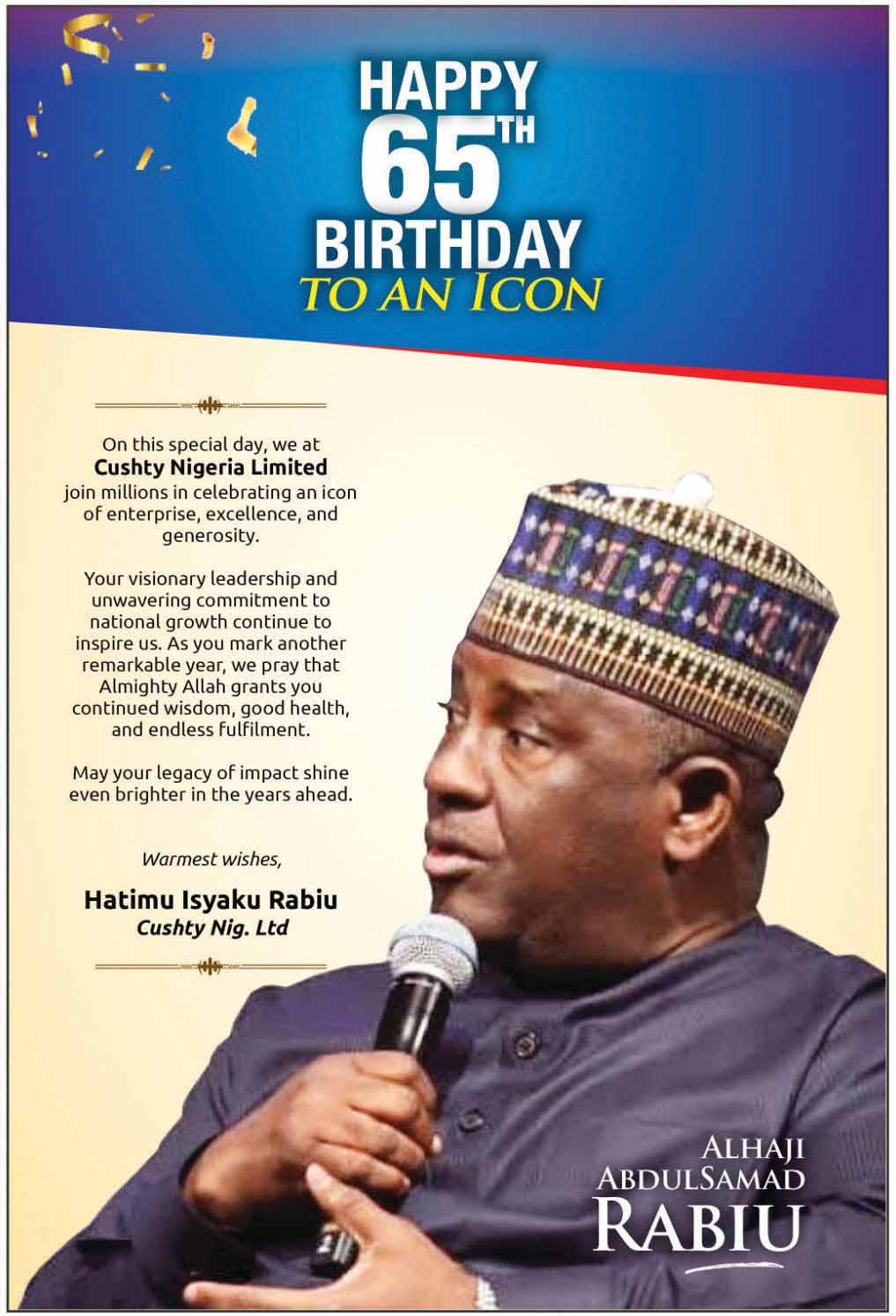



Goddy Egene writes that the growth recorded by the Nigerian Stock Exchange Group for the first half of 2025, does not only reflect a resurgence in capital market activity but also its relevance in Nigeria’s growth story
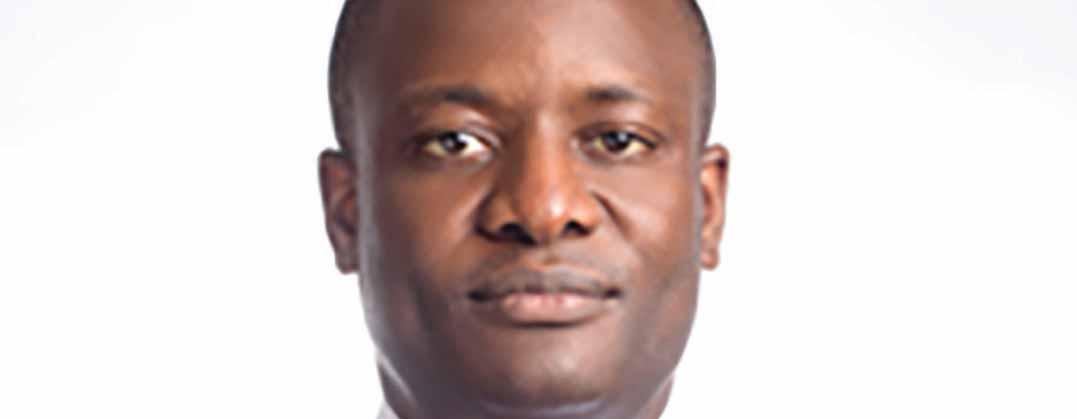
Astriking narrative is emerging across Nigeria’s financial markets as the country navigates the midpoint of 2025. Investor sentiment is shifting, capital flows are strengthening, and a more confident macroeconomic posture is taking shape. At the centre of this momentum sits Nigerian Exchange Group (NGX Group), which recorded a strong first half (H1) performance that reflects not only a resurgence in market activity but also the deepening relevance of capital markets in Nigeria’s growth story.
Amid shifting global trends and a domestic landscape defined by fiscal and structural reforms, NGX Group’s H1 2025 performance underscores its growing role as a bellwether for market confidence and strategic capital formation in Africa’s most populous nation.
At the close of the first half of 2025, Nigerian Exchange Group is not only posting solid financial results but also sending a strong signal that Nigeria’s capital market is becoming more robust, innovative, and future-ready under its current leadership. The Group’s recently released H1 2025 financial report paints a picture of strategic execution, sustained growth, and forward-looking reform, all while aligning with global standards in transparency, investor access, and financial inclusion.
At the helm of this performance is Group Managing Director/Chief Executive Officer, Mr. Temi Popoola, whose tenure continues to usher in a new era for the Group and the broader Nigerian capital market. Under his leadership, NGX Group is fast becoming a hub for investor confidence, innovation, and financial transformation, and the numbers from the first half of the year reinforce that trajectory.
NGX Group recorded N9.86 billion in revenue for H1 2025, representing a 32 per cent increase from N7.48 billion in the corresponding period of 2024. This revenue growth underscores the group’s ability to tap into new opportunities and strengthen its revenue-generating units, including its subsidiaries.
Perhaps even more telling is the group’s profit after tax (PAT), which almost doubled to N4.22 billion, a 97 per cent increase from N2.14 billion recorded in H1 2024. This translates to a PAT margin of 43 per cent, up from 29 per cent in the previous year, reflecting a combination of strong topline growth, operational efficiency, and improved cost discipline.
Operating expenses saw a 25 per cent increase from N4.56 billion in H1 2024 to N5.70 billion in H1 2025, a controlled and strategic rise given the group’s operational expansion and the rate of revenue growth.
This indicates the group’s approach to scaling operations while maintaining profitability.
The balance sheet remains strong as financial momentum builds on innovations introduced in the previous year, most notably, the launch of NGX Invest, an e-offering platform designed to democratise access to investments in the primary market. NGX Invest was conceived to break down the barriers traditionally associated with public offers and rights issues by allowing retail investors to subscribe for securities directly through their smart devices. The platform leverages partnerships with market operators, financial institutions, banks, and regulators, making it easier than ever for individuals to participate in public market transactions anytime, anywhere.
Its early success has already been proven.
Since its launch in July 2024, NGX Invest has supported offerings totaling over N2 trillion, primarily through high-profile capital raises tied to the recapitalization efforts in Nigeria’s banking sector.
Notably, the Central Bank of Nigeria (CBN) recently confirmed that eight banks have already met their recapitalization targets, an achievement that underscores the platform’s critical role in mobilising capital swiftly and efficiently.
This milestone has not only facilitated a broader investor base but has also streamlined the capital-raising process for issuers, signaling a major leap in market efficiency and accessibility. In the broader context of the Group’s operations, NGX
Invest represents a blueprint for the future of capital formation in Nigeria, one that is inclusive, digital, and responsive to both local and global investment appetites.
Momentum has also returned to Nigeria’s equities market, with foreign portfolio investor participation rising significantly to N1.14 trillion, accounting for 27.08 per cent of total transactions, compared to N540.48 billion (20.75 per cent) in the same period last year. This resurgence in foreign interest reflects renewed confidence in the country’s economic direction and a maturing capital market ecosystem.
Head of Macro Strategy at FIM Partners and author of Fastest Billion, Charlie Robertson, captured this sentiment succinctly, noting that Nigerian equities, up 22 per cent in US dollar terms year-to-date, are among Africa’s top performers in 2025, alongside markets like Egypt, Kenya, and Morocco. His remarks highlight both Nigeria’s improved macroeconomic posture and the favourable global conditions supporting emerging markets.
In the first half of 2025, Nigeria’s economy showed further signs of resilience. GDP growth rebounded to 3.7 per cent, inflation moderated to 22.22 per cent in June, and foreign exchange pressures eased on the back of stabilising oil output and regulatory measures. While these trends remain uneven, they are helping to lay a stronger foundation for investment and economic stability, with the capital market serving as a visible indicator of reform progress.
Within this evolving environment, NGX Group facilitated over N4.63 trillion in capital raised by corporates and governments across
In the first half of 2025, Nigeria’s economy showed further signs of resilience. GDP growth rebounded to 3.7 per cent, inflation moderated to 22.22 per cent in June, and foreign exchange pressures eased on the back of stabilising oil output and regulatory measures. While these trends remain uneven, they are helping to lay a stronger foundation for investment and economic stability, with the capital market serving as a visible indicator of reform progress.
diverse asset classes. As of June 30, 2025, total market capitalisation of NGX-listed instruments, including equities, fixed income, and ETFs, stood at N126.73 trillion, a 16 per cent increase from N112.60 trillion at the start of the year. Equities led the growth, rising from N62.76 trillion to N75.95 trillion during the period, while fixed income instruments remained steady at N50.56 trillion. Notably, ETFs gained fresh investor attention, with total market value reaching N25.79 billion, driven by increasing retail activity and product diversification.
Popoola attributed this performance to a strategic focus on liquidity, investor trust, and strong collaboration with the Securities and Exchange Commission(SEC).
“We have worked closely with SEC to promote transparency, strengthen investor protections, and accelerate innovation in listings and product development. Our goal is to create an inclusive, globally competitive capital market,” he said.
Sustainability also remains a key pillar of the group’s agenda. In partnership with DEG Impulse gGmbH, the launch of the NGX NetZero Programme (N-Zero) signaled a deepened commitment to environmental responsibility and climate action. The initiative is designed to equip companies with tools to measure, disclose, and reduce their carbon emissions, positioning NGX Group as a pioneer in green finance and a leading enabler of ESG-focused investment in Nigeria. This strategic direction aligns with Nigeria’s broader ambitions to engage meaningfully in global carbon markets and transition to a more climate-resilient economy.
NGX Group’s success in the first half of the year is not happening in isolation. It is the result of deliberate efforts to digitise market access, expand retail participation, attract strategic listings, and embed sustainability at the core of market development.
With the second half of 2025 underway, the group’s focus is firmly set on deepening market penetration, strengthening pan-African linkages, driving innovation through technology, and advancing sustainability as a strategic imperative. This forward-looking strategy is designed to consolidate current gains while building a capital market that is agile, inclusive, and globally integrated.
As Popoola noted:“Our commitment is to build a more globally competitive exchange ecosystem, one that is inclusive, transparent, and capable of powering the continent’s next wave of development through efficient capital formation.” According to stakeholders, these results are more than numbers; they are a reflection of the market’s growing maturity, the group’s stewardship of financial infrastructure, and a renewed belief in the potential of Nigeria’s economic future.
Kayode Tokede
Eterna Plc, a leading Nigerian integrated energy company, has maintained profitability as it reports N1.6billion Pre-tax Profit in H1 2025.
The Company’s unaudited financial results show revenue rose to N157.7 billion, representing a 7% increase from N147.5 billion in the corresponding period of 2024. This improvement was driven primarily by enhanced operational execution and strategic market positioning.
Eterna’s gross profit for the period was N6.9 billion with a resistant 4% gross profit margin reflecting the full effect of post deregulation within the industry. Operating profit came in at N2.34 billion, buoyed by other income of N575 million —an encouraging reversal from the N14.5 billion FX loss recorded in the previous year.
Profit before tax was N1.57 billion, compared to a loss before tax of N3.57 billion in H1 2024. After provisioning for accounting tax expense of N995 million, Eterna Plc reported a net profit of N574 million for the first half of 2025.
Commenting on the performance, Managing Director/Chief Executive Officer of Eterna Plc, Mr. Olumide Adeosun, stated: “The company has sustained its ability to remain agile and flexible in pivoting effectively in the face of an evolving downstream sector. It also highlights our efforts to drive new sources of revenue, competitiveness in the lubricant segment underpinned by cost discipline. We believe we have the right team focused on the right priorities to deliver ample returns for our investors.”
Earnings per share for the period improved to N0.44, up from a loss per share of N3.71 recorded in the same period
last year.
Looking ahead, Eterna Plc remains committed to deepening its presence in the downstream energy sector while leveraging operational efficiencies, digital transformation, and strategic partnerships to sustain momentum into the second half of the year.
With its presence in retail marketing, aviation fueling, lubricants, LPG, and commercial fuel sales, Eterna continues to expand its reach, enhance operational efficiency, and support Nigeria’s energy transition goals.
Eterna Plc is a fully integrated energy company engaged in the production, trading, and distribution of high-quality petroleum products. With over three decades of industry experience, the company is strategically positioned to deliver value to customers and stakeholders across Nigeria and beyond.
First City Monument Bank (FCMB) has teamed up with the Ministry of Finance Real Estate Investment Fund (MREIF) to make the dream of homeownership a reality for more Nigerians. Together, they have partnered on a N10 billion mortgage financing scheme that gives Nigerians access to home loans of up to M100 million, with up to 20 years to repay at a single-digit interest rate.
The bank in a statement said the move is part of a broader effort to make housing more affordable and accessible. MREIF, a N250 billion fund set up by the federal government in 2025, is managed by ARM Invest-
ment Managers. The fund brings public and private sector players together to tackle Nigeria’s housing gap, improve living standards, and boost jobs and economic activity in real estate and construction.
Speaking at the signing ceremony in Lagos, Divisional Head of Personal Banking at FCMB, Adetunji Lamidi, said: “Homeownership gives dignity and stability. It is one of the clearest ways a country shows it is making room for its people to thrive. That is what this partnership between FCMB and MREIF represents. Finance should meet people where they are and be a stepping stone, not a hurdle. This mortgage solution reflects that belief.
“It is a practical way of helping people achieve their dreams while staying true to our purpose of fostering inclusive, sustainable develop ment and our mission to build a system that connects people, capital, and markets across all sectors of the Nigerian economy.”
Executive Director at ARM Investment Managers, Mr. Mounir Bouba, added: “We at ARM are delighted to enter this partnership with FCMB to advance the objectives of MREIF. We recognise FCMB’s strengths and ability to support both the demand and supply sides of the housing sector in Nigeria, making them an ideal partner for the MREIF scheme. We look forward to a fruitful collaboration.”
Ejiofor
As the world marks World Youth Skills Day, JMG, a leading electro-mechanical solutions provider, reaffirms its commitment to youth development in Nigeria.
In a statement issued yesterday, JMG stated that it is dedicated to equipping the youth with relevant technical and industrial skills that drive sustainable economic growth and national advancement.
With Nigeria’s youth making up over 60% of the population, JMG said it believes that the future of the nation rests squarely on the shoulders of a well-trained, empowered, and technologically skilled generation.
Through its robust technical training programmes, ap-
prenticeship initiatives, and partnerships with educational institutions, JMG has continued to champion capacity building in areas such as electrical engineering, automation, energy solutions, and industrial systems.
“At JMG, we don’t just see youth as the leaders of tomorrow — we recognize them as the changemakers of today,” said the Group General Manager, JMG, Rabi Jammal.
“World Youth Skills Day is a powerful reminder that building a sustainable and inclusive future begins with deliberate investment in practical, hands-on skills. For us, that means empowering young people with the tools to thrive in key sectors like power, infrastructure, and
industrial development — where their innovation can truly shape the future.”
Over the years, JMG has empowered Nigerians through its structured technical training programmes, equipping them with real-world skills and industry-relevant knowledge. The company remains deeply committed to nurturing local talent — not just to make them job-ready, but to inspire a new generation of innovators and leaders capable of driving meaningful change within their communities and beyond.
On this occasion, JMG calls on the private sector, policymakers, and educational institutions to deepen their investments in youth development and work collaboratively to shape a workforce that will power Nigeria’s future.
Nume Ekeghe
Stanbic IBTC Holdings PLC
(“Stanbic IBTC”), has launch its enhanced mobile app 3.0 tagged ‘APPbility’ , in its bid to transform the digital financial landscape across Nigeria.
In a statement, Chief Executive of Stanbic IBTC Bank, Wole Adeniyi, states: “This is not just another launch; it is a monumental stride in our journey towards leading the
charge in financial innovation. With APPbility, we are offering our clients an enhanced digital banking experience and redefining the essence of digital financial transactions in Nigeria”.
Acting Chief Executive of Stanbic IBTC, Kunle Adedeji, while explaining some of the new functionalities and rationale behind the launch of the newly revamped app said, “On the Stanbic IBTC mobile 3.0,
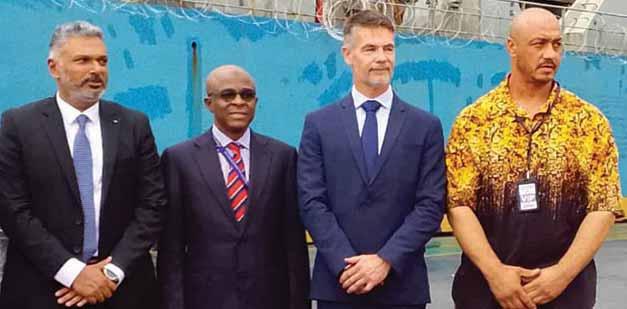
users can now access new life and general insurance policies through our Insurance Brokerage services; manage their Trust accounts; and deal in mutual funds and other investments via BluNest – the enhanced asset management investment platform. As an internationally astute organisation, users can now transact in English or Mandarin language, thus enabling more seamless cross-border transactions, all from the app.”
Kayode Tokede
Chams Holding Company
Plc, has said that it has finalised plans to raise N7.65 billion through a combination of a Rights Issue to existing shareholders and a Private Placement Offer to to strengthen the company’s financial position, support long-term growth, and deliver greater value
to stakeholders. The signing ceremony for the hybrid offer was held at the company’s headquarters in Lagos over the weekend. Both components of the offer had previously received unanimous approval from shareholders at the last Annual General Meeting.
Under the Rights Issue, 2,348,030,000 ordinary shares of 50 kobo each will be of-
fered to existing shareholders at N1.70 per share, on the basis of 1 new share for every 2 held as of June 16, 2025. The Rights Issue will open on Friday, August 8, 2025, and close on Friday, September 12, 2025 while the Private Placement will open on Monday, September 1, 2025, and also close on Friday, September 12, 2025.
Speaking at the event,
Group Chairman, Sir Demola Alade komo, emphasised that the capital raise is central to Chams HoldCo’s ongoing strategic transformation saying: “This offer, comprising a Rights Issue and Private Placement, is structured not just for capital infusion, but for long-term investor confidence.
“This capital raise sup-
ports the execution of a strategic transformation programme, enabling us to scale innovation, deepen our deepen our regional presence, and diversify revenue sources in a manner that is both profitable and defensible.”
Group Managing Director, Mayowa Olaniyan, provided further insights, stating: “ Funds from these
offerings will be utilised to enhance our capital adequacy, reduce leverage and improve liquidity. The funds will boost our EMV and biometric card production to establish Chama as a leader among Africa’s certified card manufacturers, enable us to expand our digital identity, verification, and secure payment solutions i nto West and Central Africa “.
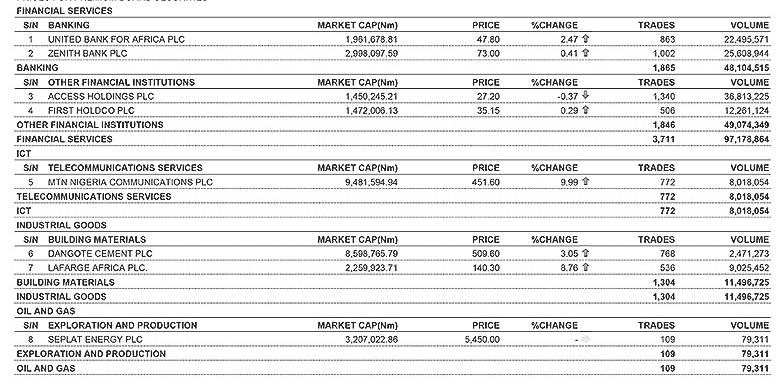
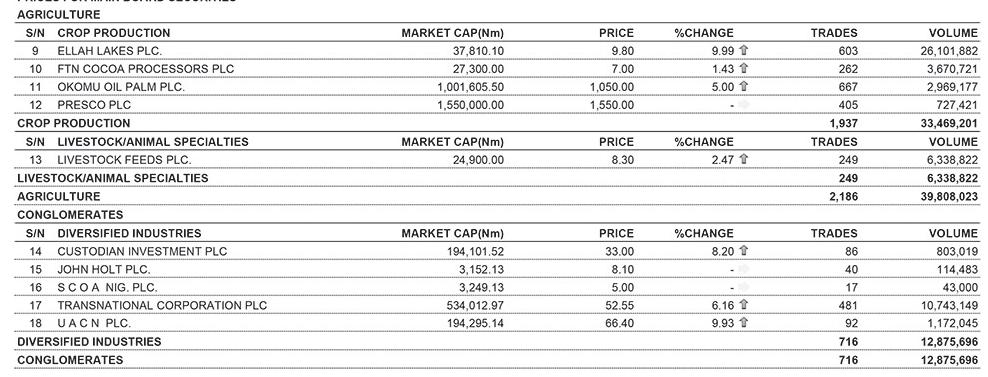



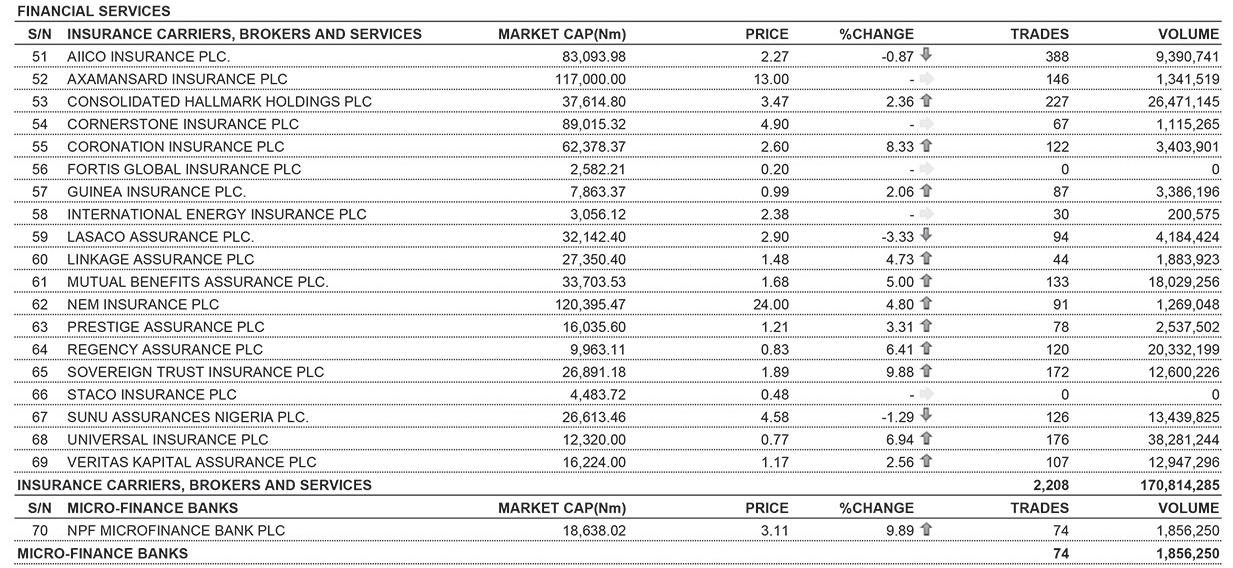

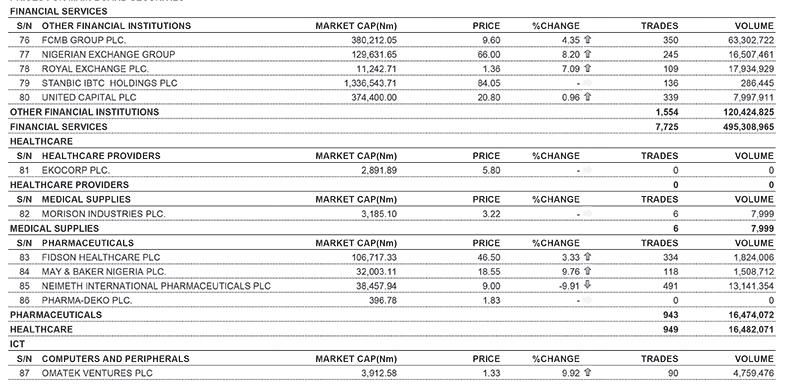
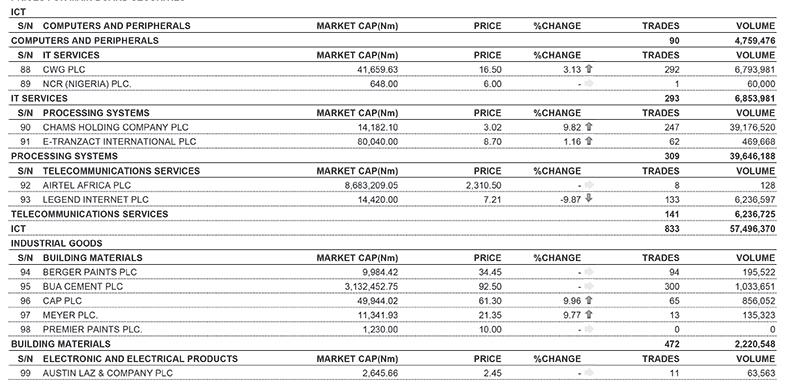
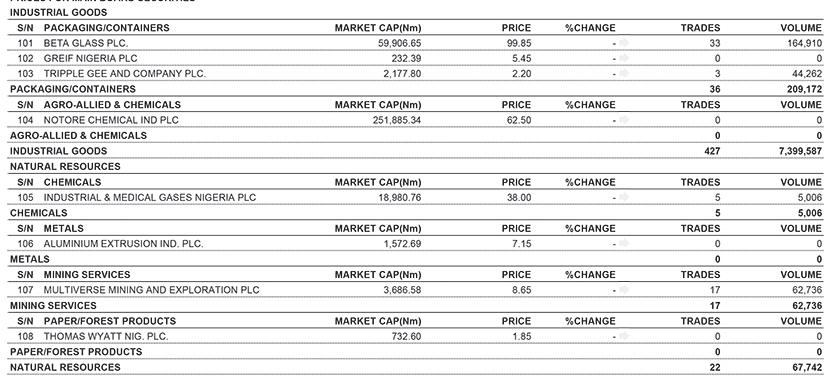
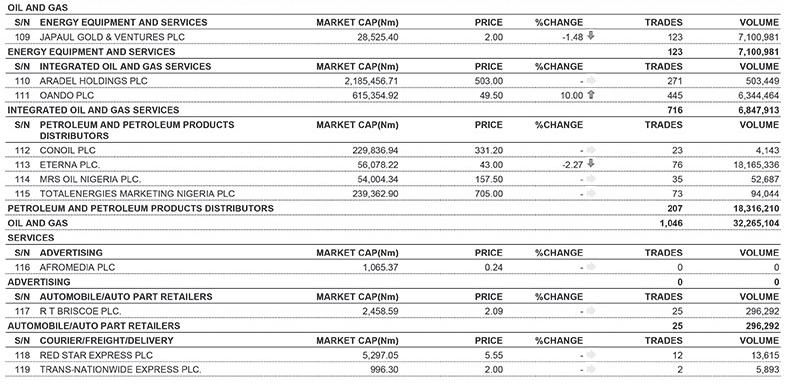
with Nicky Okoye ( digitalassets@anabelgroup.com )

Nicky Okoye discusses the strategic impact of digital asset markets in the growth and dynamics of the global markets and dives deep into the monumental forces that are driving the growth of the next hundred trillion dollars in global GDP. In this series of essays, policy makers, legislators, enterprise executives and investors can gain strategic positioning variables as they unfold in real time.
The global digital asset markets as of August 2025 has been valued at two trillion, four hundred billion US dollars ($2.4 trillion) and growing.
The United States is currently leading the World with the most developed digital asset markets ecosystem, including hosting leading cryptocurrency exchanges, digital asset institutional investors, and strong regulatory oversight, followed closely by Switzerland, Germany and the United Kingdom. Incidentally, the digital asset markets industry in the United States is only beginning to get strong regulatory clarity which is expected to strengthen investor confidence. It is also likely to take away cryptocurrency’s initial appeal to GenZ, which was crypto’s deregulation and mostly the lack of government oversight. The recent three new legislative bills, are about to change all that. Retail adoption in the United States has also been very strong and we are beginning to witness an increasing number of institutional digital asset markets investors venturing into the digital asset ecosystem, which is driving even more adoption as well as innovation. We are witnessing several Bitcoin Exchange Traded Funds (ETFs) being created and actively traded in US and across global capital markets, and this has given the most conversative investment institutions including Pension funds, a safe window to participate in the digital asset markets and for them to include crypto currencies and other digital asset classes in a strategic digital asset allocation within pension asset management portfolios. The regional distribution of the global digital asset markets valuations are based on total digital asset markets capitalizations, total extensive digital asset trading volumes, and the presence of digital asset / crypto exchanges as well as the digital asset institutional and retail investors in each region of the World. A closer look at the valuations for Africa includes our own Nigerians, who are currently recorded to be investing heavily in digital assets across the world. According to Yellow Card, over 25.9 million Nigerians are investing in digital assets in different regions of the World’s digital asset markets. Investments from Nigerian investors are obviously distributed across all these regions, as Nigeria currently does not have an active digital asset market. The interest of investors in digital asset markets globally is expected to expand further beyond its current valuations, as digital transformation becomes more common place in every industry across the World. I will address this phenomenon in a future article in this series.
The United States currently is the undisputed leader in terms of total market value, digital asset adoption and technological innovation of the global digital asset markets. The USA has most of the World’s most functional, active, dynamic and experienced digital asset / crypto exchanges. The United States also has developed, over the years, strong institutional investment positions in digital assets across the board, which are driving global digital asset market adoption. Whereas no one still knows the true identity of “Satoshi Nakamoto”, the Japanese gentleman, who is considered to be the founder of Bitcoin, no one can dispute that the United States is certainly considered the home of Bitcoin. As the US is home to most of Bitcoin’s current retail as well as institutional investors. The US has the World’s most developed digital asset markets ecosystem, and with it comes sophisticated digital asset institutional investors as well as a large driving force of retail investors.
Digital Asset Markets total capitalisation for the United States is currently at over eight hundred and forty billion USA dollars ($840 billion), which is about 35% of the total global digital asset market capitalization. It is interesting that across the United States, an increasing number of sophisticated institutional

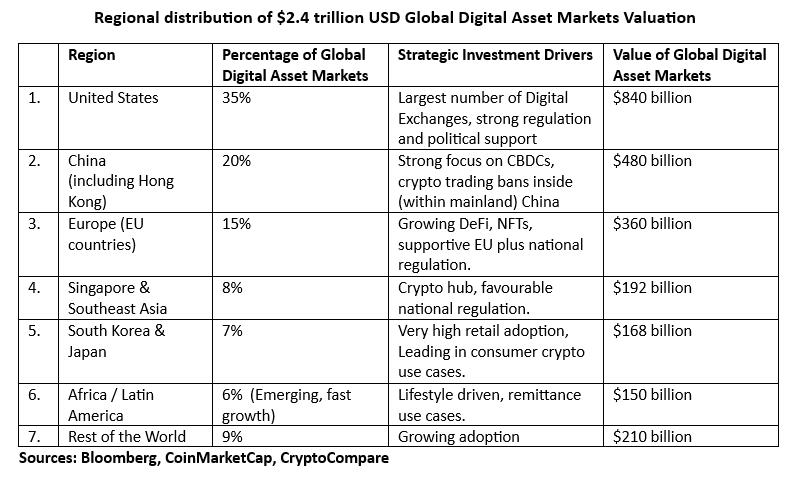
investors are building structured securities around cryptocurrencies and digital assets including but not limited to hedge funds, asset managers and so on. The retail investor community is equally as impressive, driving demand for cryptocurrencies and digital assets across the board. According to CoinMarketCap, between 15-20% of the United States’ adult population are currently investing in digital assets. The United States digital asset markets ecosystem has also shown clear leadership in Decentralized Finance (DeFi) and the Non Fungible Token (NFT) marketplaces, whereas its digital assets institutional investment community are providing the global backbone for the digital asset markets investment infrastructure especially in the areas of blockchain technology and digital asset classes structuring and trading innovation.
As the digital asset markets has developed and expanded over the years, the United States regulators have stepped in and stepped up to fill the regulatory void, providing clear guidelines for digital assets trading, investments, custody and these actions are boosting investor confidence globally. Whereas cryptocurrencies and other digital assets currently have several overlapping regulatory jurisdictions, in recent time we have witnessed extensive guidelines and regulatory interventions with strong regulatory clarity from the United States, especially from US Securities and Exchange Commission (SEC), US Commodities Futures Trading Commission (CFTC) and the US Financial Crimes Enforcement Network (FinCEN). In addition, the Federal Reserve (The FED) and the Office of the Controller of the currency (OCC)
have recently demonstrated strong regulatory clarity with the expansion of Stablecoins and the recent passing of the Stablecoin Act.
It is worth mentioning that the most significant events in the United States march to full digital asset markets adoption, has to be the recent passing of three landmark legislations, by the United States congress. For which President Trump has already signed the Stablecoin Act into law.
These legislations include the Anti-Central Bank Digital Currency (CBDC) Act, the Digital Asset Market Clarity Act of 2025 and the United States Stablecoin Act also known as the G.E.N.U.I.S Act. In all three cases, the legislations provide much deeper clarity for digital asset markets regulations as well as providing legal and regulatory framework for the future strategic growth of the United States Digital Asset Markets, its management and its regulation going forward.
The Congress passed the stablecoin bill into the US Stablecoin (GENIUS) Act in a 308 -222 successful vote. The Digital Asset Markets Clarity Act of 2025 was passed by the US Congress with a 294-134 vote, whereas the Anti-Central Bank Digital Currency (CBDC) Act was passed by the US Congress with a slim margin winning vote of 219-210
U.S. Stablecoin Act: Guiding and Establishing National Innovation for US Stablecoins Act (G.E.N.I.U.S. Act)
The U.S. Stablecoin Act (GENIUS Act) first defines what a stablecoin is, and then it focuses mainly on the issuance, management, trading and the regulation of stablecoins,
within the United States financial systems. A stablecoin is special type of cryptocurrency that is backed by the full faith and credit of the United States dollar or US treasure Bonds. This Stablecoin Act provides market players and investors with a clear regulatory framework, which includes the type of institutions that may issue stablecoins, the conditions under which such issuances are termed legal, how the stablecoins are to be managed, the fiat currency (US dollars) reserve requirements (stablecoin legislation require that insurers hold in reserve, US dollars or US treasuries in most cases matching issuances on a one to one basis), ensures consumer protection, and maintains overall financial stability.
Development Strategy Impact of United States Stablecoins Act (G.E.N.I.U.S. Act)
The US Stablecoin Act is expected to positively impact the United States financial services sector, especially as it relates to digital assets and its ability to get digital asset classes integrated within the existing US monetary system. There is already early clear evidence of this happening, even as the giant super store Walmart with its over 10,500 stores has recently announced it may issue a stablecoin for its millions of shoppers. AMAZON with is millions of online shoppers has also made a similar announcement. The ability of closed ecosystems such as Walmart and AMAZON, to issue and use stablecoins will become more prevalent over time, as the rules clearly provide for its guidance and most of these retail giants have everything to gain and nothing to loose by issuing their own stablecoins.
ACT)
•The GENIUS Act creates first Federal regulatory system for stablecoins, which ensures stability and builds investor confidence, especially through is hard stance on reserve requirements.
•The GENIUS Act now requires a full one hundred percent (100%) reserve backing for all stablecoins issued within the United States. This reserve backing must be with either liquid assets such as US dollars or short term US treasuries.
•The GENIUS Act requires issuers to make monthly, public disclosures of the composition of reserves, held to backup the stablecoins.
•Stablecoin issuers must comply with very strict market rules. It is forbidden for Issuers to make claims that indicate that their stablecoins are backed by the US Government or that they are legal tender which can only be issued by the US Government.
•The GENIUS Act provides for alignment with State and Federal digital asset frameworks for stablecoins. This means that there will be fair, consistent and streamlined regulation for stablecoins across the country.
•The GENIUS Act gives the holders of the stablecoins as first priority over all other creditors to an issuer of stablecoins in the case of its insolvency. This is considered the strongest consumer protection piece so far. The excitement we have at the Global Investment Advisory community, is that the inherent value within this emerging global Digital Asset marketplace can be defined and uncovered across several industries and for the most part, the best positioned financial and investment institutions would stand to benefit from playing strategic parts in the process as we see it. In addition, there are strategic opportunities within every industry segment across Nigeria and Africa that must be addressed and there lies even more opportunity in this respect. We will be hosting strategic sessions on these industry based opportunities for finance and investment bankers in the coming weeks. Reach out to us for your special invitation to these sessions.
•Dr Nicky Okoye Global Investment Advisor

L–R: Marketing Manager, HumanManager Limited, Deborah Eke; Managing Director, HumanManager Limited, Udy Ngele; Lead, Brands and Marketing, SystemSpecs Holdings Limited, Tosin Areo; and Business Development Manager, HumanManager Limited, Opeyemi Olutan, at the 11th edition of the Lagos Chamber of Commerce and Industry ICTEL Expo, held in Lagos ... recently
Kayode Tokede
Oando Plc has published its unaudited results for the half-year (H1) ended June 30, 2025 as the upstream business recorded strong production performance with a 63 per cent year-on-year growth, averaging 37,012 Barrels of Oil Equivalent Per Day (boepd). This included crude oil production, up 77 per cent to 10,479 bopd, gas volumes, up 54 per cent to 25,399 boepd, and NGL production, up 375 per cent to 1,135 bpd.
The company attributed the performance to the consolidation of the NAOC JV interest and improved uptime across key assets
The group reported revenue of N1.72 trillion, representing a 15 per cent decline from N2.03 trillion declared in H1 2024, driven by lower trading activity and weaker realised prices, despite stronger upstream contributions.
Gross Profit fell by 28 per cent
to N59 billion, reflecting both a top-line contraction and changing segment mix.
Nevertheless, the company maintained a Profit-After-Tax of N63 billion, consistent with the result recorded in H1 2024.
Following its recent acquisition of Nigerian Agip Oil Company (NAOC) from Italian oil giant, Eni, the company has focused heavily on infrastructure upgrades, production optimisation, and integration of the NAOC asset base, leading
to capital expenditure increase of N44 billion.
Additionally, Oando’s commitment to safety is demonstrated by achieving zero lost-time injuries (LTIs) and recording 12.3 million LTI-free hours, underscoring its continued excellence in performance.
The trading subsidiary increased its crude oil liftings to 14 cargoes (12.9 MMbbl) in H1 2025, compared to 10 cargoes (10.6 MMbbl) in H1 2024, reflecting improved offtake
The bilateral goodwill between Nigeria and the United States of America appears headed for a nose dive as fresh diplomatic ripples scaled up, trailing US Mission’s expressed concerns over the spending habits of some Nigerian state governors, accusing them of extravagance and poor management of public funds.
But some stakeholders have accused the US Mission in Nigeria of orchestrating a “relentless smear campaign” against the country, violating
diplomatic norms.
The allegations stem from the U.S. Mission’s circulation of a report by The Africa Report, a Paris-based publication, which claimed Nigerian political elites were “splurging state resources on buildings while citizens went hungry.”
The report singled out Oyo and Gombe states for constructing new government houses, painting the projects as symbols of excess. But government insiders insist The Africa Report got it wrong, and suggest darker motives.
“The governors they targeted are two of the country’s most
prudent leaders,” Dr. Ibrahim Jibril, an Abuja based political analyst and diplomatic consultant told THISDAY.
His words, “Governor Seyi Makinde in Oyo has been repeatedly recognised for performance and fiscal discipline, while Gombe’s Governor Inuwa Yahaya has managed state finances meticulously, ensuring salaries are paid, hospitals are built, and livelihoods are improving. "These are hardly the faces of mismanagement.”
Beyond the publication, some officials in government who don’t to be named on account
of possible backlash from the U.S. Mission insist the US has crossed a line. “This behaviour violates Article 41(1) of the Vienna Convention on Diplomatic Relations,” one senior diplomat noted, adding: “Diplomats have a duty not to interfere in the internal affairs of their host country. What we are seeing is the opposite.”
The latest row follows a string of flashpoints in US–Nigeria relations. Government officials recalled that Washington once predicted — incorrectly — that Nigeria would “disintegrate by the year 2000.”
Operatives of the National Drug Law Enforcement Agency (NDLEA) have intercepted consignments of cocaine and tramadol 225mg concealed in 71 vehicle side mirrors being sent to Libreville, Gabon through the export shed of the Murtala Muhammed International Airport, Lagos, with not less than three suspects linked to the cargo already arrested in follow-up operations.
The spokesman of the antinarcotics agency, Femi Babafemi, in a statement on Sunday, said the first batch of the consignment
consisting 57,420 pills of tramadol 225mg and 57 pellets of cocaine weighing 1.6 kilogrammes were intercepted in a cargo going to Gabon on Air Côte d’Ivoire on Saturday 19th July 2025, disclosing that a popular cargo agent Ihekweme Osinachi handling the shipment was immediately arrested, after which further investigation led to the arrest of another suspect Uzochukwu Chukwurah on Sunday 20th July.
Babafemi said 11 parcels of cocaine with a total weight of 1 kilogramme were later recovered from four additional side mirrors being prepared for export found in the home of Uzochukwu on
Monday 21st July, bringing the total number of parcels of cocaine to 68 weighing 2.6 kilogrammes.
In a related development, NDLEA operatives last Friday arrested a businesswoman Mrs. Nwafor Nneka at her shop within the Trade Fair Complex, Ojo, Lagos following the interception of 100 grammes of cocaine and 300 grammes of phenacetine, a cutting agent, concealed in ladies’ lipsticks going to Malabo, Equatorial Guinea, through the export shed of the Lagos airport on 10th July 2025. Babafemi said two cargo agents linked to the shipment were earlier arrested before the eventual arrest
of Nneka who runs the criminal trade as a family business with her husband Remigus Nwafor, currently on the run. Nwafor, was said to have in her statement, admitted she bought the lipsticks used to conceal the illicit drugs while her husband handled the actual concealment.
In Abuja, the nation’s capital, NDLEA operatives conducting intelligence-led stop and search operations in Gwarimpa, Jahi, and Galadimawa areas of the city last Wednesday arrested three dispatch riders: Sabo Sule, 24; Samuel Nnamdi, 28; and Idris Jibrin, 28, for distributing illicit substances around the city.
execution.
Speaking on the H1 2025 results, Group Chief Executive, Oando PLC, Wale Tinubu, in a statement said, “In H1 2025, we advanced our growth agenda in our upstream division, the primary driver of the Group’s performance, by achieving a 63per cent year-on-year increase in production volumes.
“This was driven by the successful consolidation of NAOC’s assets, early gains from our optimisation programme and our assumption of operatorship, which enabled us implement holistic security measures amid improved community relations, resulting in enhanced infrastructure reliability, higher production volumes, and greater operational resilience.
“Our trading segment faced headwinds which exerted pressure on the entity’s revenue and the Group’s topline as a result of declining PMS imports into the country due to rising
local refining capacity from Dangote Refinery, a positive development that enhances Nigeria’s energy security and self-sufficiency.
“In response, we diversified our crude offtake sources, optimized trade flows, and expanded into LNG and metals. These initiatives are already gaining traction and will support stronger performance in H2.” Similarly, another independent player, Aradel Holdings Plc, released its H1, 2025 unaudited financials and reported revenue of N368.1 billion, up 37.2 per cent, and Profit after Tax of N146.4 billion, up 40.2 per cent, driven by stable average production volumes.
Additional highlights in the first half of the year included the company securing operatorship of Block KON 13 in Angola, marking its strategic entry into the Kwanza Basin and a significant step in expanding its upstream footprint Africa.
SGBV : NGO Empowers 100 Women for Skill Acquisition in Kogi
A non-profit and nongovernmental organisation, Protect The Child Foundation, has empowered no fewer than 100 Women including People Living with disability (PLWD) for skill acquisition and empowerment support programme in Kogi State.
The skill acquisition includes training in fashion designing, tailoring, catering, photography and videography, cosmetology and other relevant skills so as to support them and their families.
While speaking in her opening remarks during the weekend in Lokoja, the Executive Director of the organization, Mrs. Elizabeth Achimugu, said that the beneficiaries are drawn from Lokoja and Idah local government areas, Kogi State.
She explained this is part of the ongoing implementation of Project Ebulejonu, focusing on sensitization and advocacy
against Sexual and GenderBased Violence (SGBV) According to her, "the skill acquisition and empowerment support programme being the third phase of Project Ebulejonu dedicated to the advancement of the rights of women, children and persons with disabilities in Kogi State. Her words, "The programme is supported by the French Embassy in Nigeria. The empowerment is a follow up of the sensitization and advocacy to markets, schools and relevant stakeholders in the fight against SGBV in Kogi State.
"It is in recognition of the fact that poverty is one of the main drivers of SGBV and that is why we decided to empower selected beneficiaries carefully drawn from the vulnerable population who would be trained in fashion designing, tailoring, catering, photography and videography, cosmetology and other relevant skills so as to support them and their families.
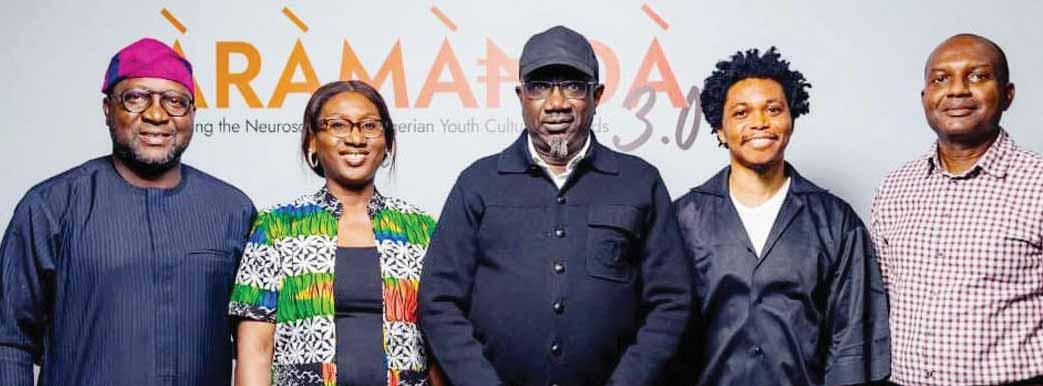
The Enugu State Patriots, a group of leaders across political divides, professional backgrounds, and community leadership positions, yesterday declared that Governor Peter Mbah is the single most viable political party in Enugu state today and endorsed him to continue in office till 2031.
Members of the group bared their minds in a communique read at the end of their meeting, which lasted several hours in the state capital on Sunday, during which they reviewed the trajectory of governance under the leadership of the governor in the last two years.
In the communique entitled "Peter Mbah is Our Party," which was presented by Prof. Mathine Anikwe, the group said that Mbah
has shone like a million stars and established himself as a poster boy of people-oriented governance at the sub-national level.
“With about 2,000 ongoing and completed projects across the state and across sectors, he has stamped his authority as a man, who came prepared to the business of governance.
“Importantly, even the President, the Vice President, and federal ministers, who are of a different party have variously confessed the unprecedented massive achievements of Governor Mbah in just two years,” the Enugu patriots added.
The group, while acknowledging Enugu state and South east’s long-standing relationship with the Peoples Democratic Party (PDP) since 1998, however said that the
people of Enugu state were more interested in the governor’s vision to grow the state’s economy from $4.4 billion to $30 billion in eight years, which is already on course.
“During this period, the region and Ndi Enugu have given the PDP their total support and have equally derived some benefits from the party in terms of development projects and political opportunities.
“Nevertheless, we make bold to say that with Governor Peter Mbah’s exceptional performance, he has become a viable political party of his own. He is the political party we know and wherever he leads, Ndi Enugu will follow.
“Therefore, there is no doubt that his second term as governor of Enugu State is sacrosanct, by God’s grace, in order to continue with the great job he is doing,” the group stated.
It also said that in addition to Mbah’s “great performance so far,” the state’s zoning arrangement was also an advantage to him.
“Besides his superlative performance so far, his second tenure is further assured by the well-entrenched zoning arrangement in Enugu state that ensures that power rotates from one zone to the other every eight years.
“This arrangement produced Chimaroke Nnamani from Enugu East Senatorial Zone (1999 to 2007), Sullivan Chime from Enugu West (2007 to 2015), and Ifeanyi Ugwuanyi from Enugu North (2015 to 2023), thus setting the stage for Enugu East’s return to the Lion Building through Dr. Peter Ndubuisi Mbah in 2023,” the communique stressed.
Other speakers at the event
included: A former National Youth Leader and National Secretary of the PDP, Sunday Udeh-Okoye; the traditional ruler of Ogboli Ohaja Autonomous community in Awgu LGA, Igwe Kingsley Okeke; former Commissioner for Transport, Enugu State, Luke Mmamel; Member representing Ezeagu State Constituency, Chima Obieze; Council Chairman of Nsukka LGA, Jude Asogwa; former member of Enugu State House of Assembly, Nkechi Omeje-Ogbu; and former Chairman of Nkanu West LGA, Henrich Okenwa.
They affirmed the people’s support for Mbah beyond political, zonal, and religious divides.
Some of Mbah’s ongoing or completed projects listed by the
speakers include the 260 Smart Green Schools totaling 6,500 classrooms, 260 Type 2 Primary Healthcare Centre totaling 3,300 beds; 260 units of 200-hectare Farm Estates across the 260 wards of Enugu State, raising of water production from 2 million litres a day to 120 million litres a day, and completion of the over 5,000-capacity Enugu International Conference Centre.
Others were the revamp of Hotel Presidential Enugu and Nigergas, ongoing rehabilitation of Sunrise Flour Mills, restoration of United Enugu Palm Products Limited, construction of over 800km of roads across the urban and rural areas, ongoing construction of the New Enugu City, and successful setting up of a mega asphalt plant.
necessary stakeholders' input was not sought or received.
Senior lawyers in the country have reacted to the infighting between Police Academy, Wudil, Kano; Police Service Commission (PSC); and Ministry of Police Affairs over who is empowered by the country's extant laws to recruit police officers into the Nigeria Police.
The police academy had last week placed an advertorial for applications for admission into the 12th regular course degree programme.
The academy also informed the public that the online application for the admission would open on July 28 and close on September 8, 2025.
But PSC, in a statement on Thursday, urged the public to disregard the said advertisement, as it was not aware of it and
The stakeholders, the commission said, included Ministry of Police Affairs, Federal Character Commission, and Nigeria Police, who were not consulted before the said release of the advertisement by the academy.
PSC further stated that the said advertorial, which was placed in flagrant violation of the required procedure, was an undisguised attempt to undermine the commission, which had the constitutional mandate to recruit, including through the academy.
However, Ministry of Police Affairs, in a counter-statement on Friday, challenged the stance of PSC, stating that the ongoing application is valid and the admission process followed due process in line with the National
Universities Commission (NUC) and Ministry of Police Affairs guidelines.
The statement, signed by Director of Information and Public Relations Unit, Bolaji Kazeem, said, "The PSC has no constitutional role in university admissions, and its statement is therefore legally baseless and misleading."
Kazeem urged interested applicants and the public to disregard the said disclaimer, stating that the online application portal remains open as earlier advertised.
Nevertheless, the position of the ministry was in contrast to information obtained from the academy's website, which stated, "The Police Service Commission has the sole responsibility for appointments into the Nigeria Police Force."
Application forms, the academy's website stated, were obtainable from the Police Service Commission or Force Headquarters websites.
Senior lawyers shared their thoughts on the brewing controversy among the three government institutions. The learned silks anchored their opinions on the relevant sections of the Constitution of the Federal Republic of Nigeria 1999 (as amended), as well as the judgement of the Supreme Court on an earlier dispute between the commission and the Force Headquarters.
Speaking on the controversies, constitutional lawyer, Chief Mike Ahamba (SAN), stressed the need for government institutions to respect decisions of the Supreme Court, having regard to their finality and binding effects.
Onyebuchi Ezigbo in Abuja
The National Agency for Food and Drug Administration and Control (NAFDAC) has said that its officers impounded 16 containers of substandard and falsified pharmaceutical products imported through Onne Port with estimated street value of N20.5billion.
A statement signed by NAFDAC's Resident Media Consultant, Sayo Akintola, said the seized consignment comprised 11 containers of various unregistered/banned pharmaceutical products as well as 4 containers of unwholesome tomato paste. It said that the seized goods were handed over at Onne Port, Port Harcourt on Saturday to the Director-General (NAFDAC) by the Comptroller-General (Nigeria Customs Service) as part of the institutional collaborative synergy between the two organizations "In its ongoing fight against the influx of fake
and substandard regulated products, taken delivery of 16 containers of substandard and falsified pharmaceutical products imported through Onne Port and estimated to have street value of N20.5billion.
"The consignment which comprised 11 containers of various unregistered/banned pharmaceutical products as well as 4 containers of unwholesome tomato paste.
"Among the various substandard regulated products seized were 1.3 Million Bottles of Codeine Syrup, ( a highly controlled Prescription-Only Medicine), 12.6 million Tablets of Tramadol, a highly addictive Prescription-Only Drug product used for the management of Post-Operative Pain in Adults, as well as 9.3 Million Tablets of Substandard and Falsified (Branded) Diclofenac Tablets (A Non-Steroidal Antiinflammatory Prescription Drug used for the Management of Osteoarthritis and Rheumatoid Arthritis).
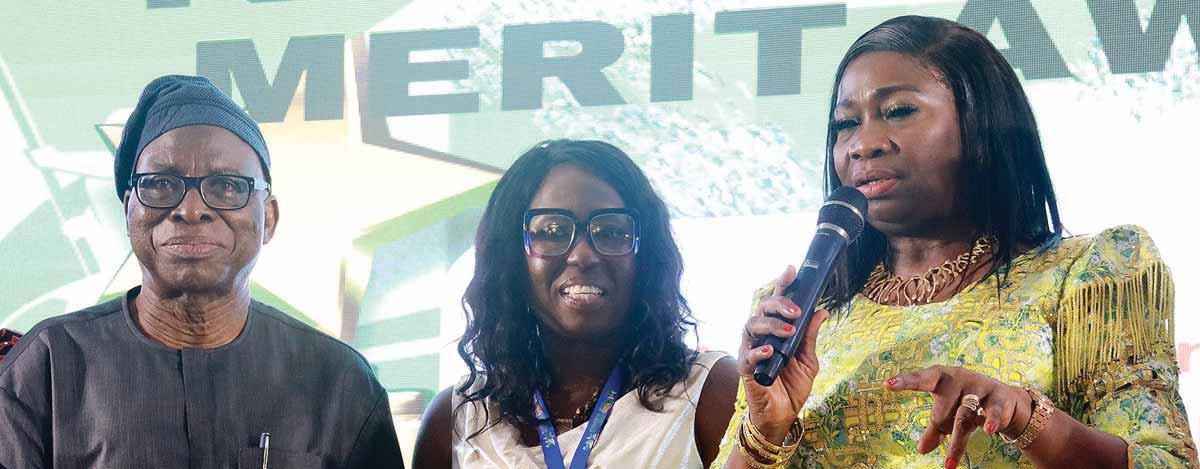
L-R; President, Nigerian Academy of Engineering, Prof. Rahmon Bello; Mrs Voke Ogueh of STEM, USA and Chairman/CEO, Nigerians in
of an award of Merit to Ogueh at the National Diaspora Merit
Michael Olugbode and Chuks Okocha in Abuja
National Human Rights Commission (NHRC) condemned the closure of Badeggi Radio in Niger State by the state governor, Mohammed Bago, describing it as not only a suppression of press freedom but also an affront to democracy.
Executive Secretary of NHRC, Dr. Tony Ojukwu, condemned the action while reacting to the incident. He said the governor's decision to shut down the radio station without following due process was disappointing and a clear violation of the right to freedom of expression, as guaranteed by Section 39 of the 1999 Constitution and Article
9 of the African Charter on Human and Peoples' Rights. Socio-Economic Rights and Accountability Project (SERAP) also urged Bago to “immediately reverse the arbitrary and unlawful decision to strip Badeggi FM radio station its licence, reinstate the station’s licence, withdraw your threat to demolish the station’s premises, and end
your crackdown on freedom of expression and media freedom in Niger State”. SERAP urged the governor “to immediately end your attacks against Shuaibu Badeggi, the owner of Badeggi FM 90.1, and other staff members of the radio station, publicly guarantee their rights to liberty and security of person, and end the prevailing
Deji Elumoye in Abuja
President Bola Ahmed Tinubu has felicitated one of Africa's most prominent industrialists, philanthropists, and Chairman of BUA Group, Abdul Samad Rabiu, as he clocks 65 today, August 4, 2025.
As President Tinubu puts it, Samad's milestone celebrates a life defined by quiet excellence, courageous enterprise, and unwavering faith in Nigeria.
impunity for violations of freedom of expression and media freedom in your state”.
Ojukwu said the consequences of suppressing press freedom were farreaching and could lead to increased government opacity and reduced citizen participation, as well as create obstacles to accountability, and weakening of democratic institutions.
He said, “The arbitrary shutdown of media outlets undermines the checks and balances essential to a functioning democracy.”
channel issues concerning any alleged unconstitutional operations of the radio station to the appropriate authority and not act with impunity.
Ojukwu said, “This is both a moral imperative and a democratic requirement.”
Ojukwu, who is also the president of Network of National Human Rights Institutions in West Africa (NNHRI-WA), urged governments to protect journalists and media freedom, foster a culture of tolerance, and support independent media.
The President, in a statement issued on Sunday by his Adviser on Information and Strategy, Bayo Onanuga, described the industrialist as one of Africa's most accomplished businessmen, whose investments have transformed key sectors of Nigeria's economy from cement to foods, sugar to steel, ports to power, and more recently, oil and gas, demonstrating what is possible when vision meets discipline and ambition is anchored in purpose.
deepened industrial capacity, and restored confidence in indigenous enterprise and local production.
President Tinubu commended Abdul Samad for his calm leadership and deep belief in Nigeria noting that his businesses have created thousands of jobs,
The President hailed the profound impact of the Abdul Samad Rabiu Africa Initiative (ASR Africa), which continues to deliver landmark interventions in education, health, and social development across Nigeria and the continent, quietly but consistently improving lives, building institutions, and expanding access to opportunity.
According to President Tinubu: "Abdul Samad Rabiu is a builder in every sense. He
has built industries, empowered people, uplifted communities, and continues to invest in the future of our country—not for applause, but out of duty and conviction. Nigeria is proud of him, and I am proud to call him a trusted partner in our nation's progress."
The President wished Abdul Samad continued strength, wisdom, and good health.
He expressed confidence that Samad's legacy as a patriot, philanthropist, industrialist, and nation-builder will endure for generations.
Omon-Julius Onabu in Asaba
Delta State has all the potentials to be transformed into an infrastructural and technologically advanced subnational state in Nigeria comparable to modern Dubai in the United Arab Emirates (UAE), if visionary and accountable leadership was in place. The 2023 governorship candidate of the Labour Party (LP) in Delta State, Kennedy
Pela, also known as Ken Pela, who made the assertion in Asaba, said Delta State has lagged behind in all critical sectors of the economy and development due to lack of a clear vision by the leadership since 1999, thus creating a disconnect between government and the people.
Speaking in Asaba during a press conference and unveiling of a unique development blueprint, the 'Vision Better
Delta Movement' (VBDM) over the weekend, Deacon Pela said that all the performance parameters indicated that successive governments in the state have squandered both the resources and goodwill of the people under the current democratic dispensation.
Churning out tens of pages of statistics based on elaborate research, Pela said that Delta State even had some advantage over Dubai in 1999 especially
in terms of mineral and human resources, but has not much to show for these resources owing to poor leadership vision.
He claimed that well-meaning Deltans were not satisfied with the poor vision and pace of development as government's financial accountability was dismal still, about 26 years since restoration of democracy in Nigeria, and two years into the tenure of Governor Sheriff Oborevwori.
He called on Bago to immediately unseal the radio station and allow it to resume full operations, asking him to
"Journalists must be able to operate without fear of harassment, intimidation, or violence," he emphasised.
Okon Bassey in Uyo
Self-esteem, teenage pregnancy, early marriage, poverty, parental beliefs, family dynamics and parent's education level have been identified as factors that influence Girl Child Education in Akwa Ibom State.
Other factors include cultural beliefs, community conflicts, child trafficking, transportation, economy, inadequate teachers, security, teaching approach, educational and WASH facilities, among others.
A survey conducted in the state and made available to journalists in the state weekend also indicated that out of the 15,200 children that are out of school at the secondary stage in the state at least 14,200 were girls.
The report from the survey, showed that the figure which represent 56% of total school drop outs at the secondary school level in the state attributed the abnormally to poverty, labour
needs, early pregnancy, period poverty, child marriage and pregnancy.
The study conducted by an NGO, OneLife Initiative with support from Malala Fund presented in Uyo by its Executive Director Mr. Sola Fagorusi showed that 451 public and private secondary schools operate in the state with an estimated 500,000 enrollment.
According to the report, out of the 8,400 out of school children at the junior secondary level, 4,600 were girls while at the senior secondary level, girls make up 9,600 out of the 16,800 children out of school.
"At the JSS level out of school girls are disproportionately concentrated in rural and riverine LGAs where barriers like poverty early pregnancy, period poverty are highest while drop out at the SSS stage is strongly linked to cost, child marriage, pregnancy and geographic disadvantage."
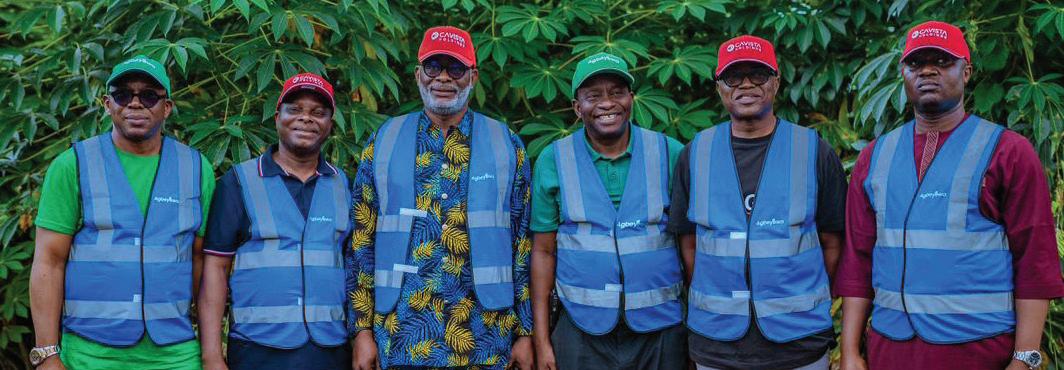
L-R: Vice President/Executive Director, Cavista Holdings, Olumide
Declares forty-eight months enough for any focused, prepared leader to make impact Cites examples of celebrated one-term presidents across the globe It's a lie, you have record of broken promises,
Chuks Okocha in Abuja
The 2023 presidential candidate of Labour Party (LP), Peter Obi, has reaffirmed his declaration that he would do only a fouryear term, if elected president in 2027, vowing that his word is his bond.
Obi said 48 months was enough for a “focused and prepared” leader to make impact, stating that evidence from history shows that positive legacies are in favour of leaders who stay shorter in office.
But the presidency responded to Obi’s assertion, describing as deceitful his pledge of one term of four years. The presidency also alleged that Obi had a record of broken promises and political inconsistency.
Writing on his X handle, Obi stated, "One of the greatest American presidents, Abraham Lincoln, served only four years, yet his legacy endures as a model of principled leadership.
“Another iconic figure, John F.
passengers in 2024, less than half of its capacity.
''We therefore wonder if it is this same airport that is now scheduled for renovation or another one. The inescapable conclusion is either that the previous APC government had lied to Nigerians about what it did with the Lagos Airport or the current government is about to spend such a huge amount of money on a project that already exists.
''Perhaps even more troubling is the fact that this massive expenditure, approved by the Federal Executive Council (FEC) on July 31, 2025, has not received any backing from the National Assembly and it is not in any of the approved budgets.
''Is this now how the government spends close to a trillion naira without appropriation, without scrutiny, and without the consent of the Nigerian people through their elected representatives? We demand to know: under what constitutional provision is this
Kennedy, did not even complete a full term, yet his vision and ideals continue to inspire generations.
“In Africa, Nelson Mandela, revered globally as a symbol of justice and reconciliation, chose to serve only one term as President of South Africa, despite immense public pressure to stay longer.
"His decision was a deliberate act of leadership, a statement that power must serve the people, not the self. Indeed, history shows that the longer many African leaders remain in power, the more likely they are to be corrupted by it.
"Longevity in office is not a mark of success. Rather, it is purposeful, accountable service – however brief – that defines true statesmanship. It is within this context that I reiterate my vow: ‘I will serve only one term of four years if elected President. And that vow is sacrosanct.”
The former governor of Anambra State said, "I am fully aware that the decay in
money being spent?
''How did we get here, that the government of Nigeria, even in the face of extant accountability laws, is able to approve expenditure of this magnitude with no public breakdown of costs, no transparent procurement process, and no national debate?, “ the new opposition party queried.
In contrast, the ADC stated that the N712 billion could instead deliver transformative impact by building over seven fully equipped teaching hospitals, funding free basic education across three geopolitical zones for five years, providing rural electrification to thousands of communities, or rehabilitating thousands of kilometres of federal roads and bridges.
''The ADC calls on all Nigerians to reject this frivolous project. We therefore demand its immediate suspension, a full independent audit of the proposed budget, and a redirection of funds toward projects that would directly improve the lives of ordinary citizens, which should be the
our society has made trust one of the scarcest and most sceptically viewed commodities. Many Nigerians, understandably, no longer take politicians at their word. But even in this climate of cynicism, there are still a few whose actions have matched their words – whose integrity is built on verifiable precedent.
political inconsistency, presidency fires back
"Recently, I became aware of two statements aimed, albeit indirectly, at my vow to serve only a single four-year term. One person remarked that even if I swore by a shrine, I still wouldn’t be believed. Another suggested that anyone talking about doing only one term should undergo a psychiatric evaluation.
"I understand the basis of their scepticism. They are judging me by their own standards, where political promises are made to be broken. But they forget, or perhaps choose to ignore, that Peter Obi is not cut from that cloth. I have a verifiable track record that speaks louder than speculation.”
Obi stressed, "In my political life, my word is my bond. When I entered politics in Anambra State, I made clear and measurable promises to the people: to improve education and healthcare, to open up rural areas through road construction, and to manage public funds with prudence.
Linus Aleke in Abuja
Chief of the Air Staff, Air Marshal Hasan Abubakar, yesterday, stated that protecting civilians during military air raids was not only a moral imperative but also a constitutional responsibility embedded in the 1999 Nigerian Constitution.
Abubakar also stated that
priority of any government.
''We warn that continued wasteful spending amid widespread hunger, economic hardship, and rising insecurity will only continue to widen the trust deficit between the people and the government. A government that has struggled to justify its need for loans cannot indulge in wasteful spending such as this. Enough is enough. Let Nigeria work for the many, not just the privileged few,'' the statement said.
Meanwhile, the Minister of Aviation and Aerospace Development, Festus Keyamo, has thrown light on the federal government’s plan for the infrastructural transformation of the MMIA, Lagos, with the building of a new state-of-the-art terminal, security and perimeter fencing and installation of an advanced security system.
Keyamo gave details and clarifications on the approval of funding from (FEC) and the projects that would be executed in the new development programme, which include the total demolition
maritime threats and transnational crimes have continued to challenge national stability.
The CAS stated this at the Conference on Protection of Civilians, organised by the United Nations (UN) and the Tunisian Defence Forces, in Tunis, Tunisia.
Represented at the conference by the Director of Cooperation and Coordination at the NAF
and rebuilding of the oldest international terminal (Terminal One) at the airport.
“There are two international terminals in Lagos. Terminal One, is that old building directly facing the long stretch of road leading to the airport. It was built and commissioned in 1979 by the Obasanjo-led military regime.
“It has two wings known as Wing D and Wing E. Terminal Two is the new building on the right-hand side as you drive into the airport, started by President Jonathan’s government with a Chinese loan, completed during President Buhari’s government (with the loan) and made operational during President Tinubu’s first one month in office.
“Due to years of neglect and because the traffic over time quadrupled beyond its capacity, the building and facilities at Terminal One became totally decrepit. We have been engaged in some patchy jobs over the years just to make it a bit presentable.
“Now, shorn of all the rhetoric, what we simply want to do
Civil-Military Relations Branch, the Air Chief stressed the importance of balancing military objectives with humanitarian obligations.
stability
A statement by the Director of Public Relations and Information, Headquarters, Nigerian Air Force, Air Commodore Ehimen Ejodame, quoted the CAS as saying, "Our operational effectiveness must never come at the expense of civilian lives. “We are committed to ensuring that our air operations reflect both precision and compassion. Operational success must not be measured solely by tactical victories. Past experiences have taught us that if we neglect civilian harm mitigation, short-term gains can quickly transform into longterm strategic setbacks."
is to totally strip down that building, including the entire roof (leaving only the carcass), then re-design/reconfigure it and build a brand-new airport for the nation to meet modern, international standards that can also cater for the increased traffic.
Both wings D and E would be affected,” the minister said.
The minister added that the new terminal (Terminal Two) will also be worked on, adding that the government has approved to expand the building and the Apron (where aircraft park for boarding and disembarkation) in order to accommodate more aircraft, including wide-body aircraft.
“That is not all; we are constructing two new independent ring roads in and out of the airport (one for departure and one for arrival) and a bridge that will take travelers directly to the upper floor of Terminal Two Departure lounge, instead of lifting our luggage up the escalators when we are departing. It is a design error we intend to
correct,” he explained. According to him, the administration has introduced smart solutions to the new designs in order to deliver a smart airport to Nigerians that can compete with any airport in the world.
“In all, Nigerians will be proud of what we are going to deliver. And take note, this will not be done by a loan from anywhere, but by the Renewed Hope Infrastructure Development Fund, which is one of the gains made from the removal of subsidies.
“As the work progresses, we will be inviting the press, civil society groups, members of the National Assembly and interested Nigerians on regular tours of the facility to monitor the extent and quality of work. It is part of our national heritage and we should all rightly be interested in the final outcome,” he said. He encouraged Nigerians to google the cost of most modern airports built around the world in the last few years, including those in Africa like Angola.
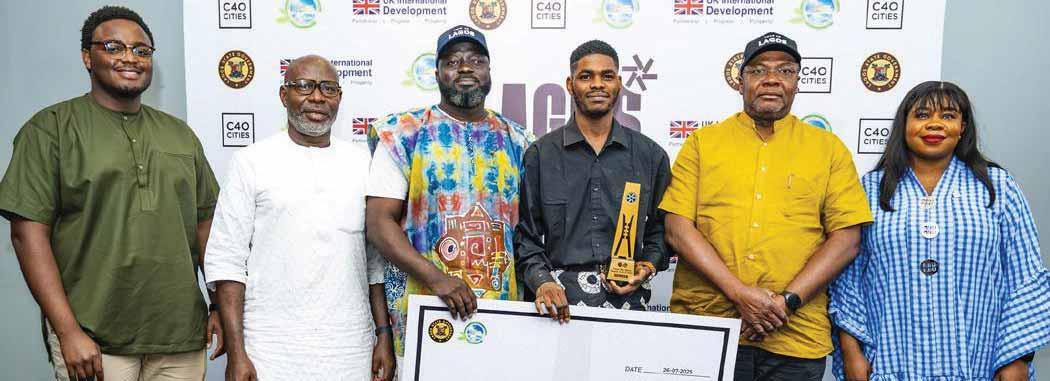
L-R:
Onuminya Innocent in Sokoto
El-Rufai, a leading figure in the opposition coalition, was in Sokoto to attend two events, where he delivered a scathing critique of the APC federal government.
"The APC government is
Former Kaduna State Governor, Malam Nasir El-Rufai, at the weekend, led a delegation of opposition leaders to Sokoto, where the opposition coalition launched a grassroots mobilisation campaign aimed at rallying support against the ruling All Progressives Congress (APC) ahead of the 2027 general election.
Deji Elumoye in Abuja
Kaduna State Governor, Uba Sani, has allayed the fears of the Northerners over the perceived marginalisation by the President Bola Tinubu-led government, saying there was no iota of truth in the narrative.
Speaking with newsmen at the weekend after a closed-door meeting with Tinubu at the State House, Abuja, the governor, while acknowledging the myriad of problems facing the region, underscored tangible evidence disproving claims of neglect by the current administration and highlighted ongoing collaborative development efforts.
Emphasising adequate northern representation at the centre, Sani while addressing the concerns of marginalisation, drew attention to the prominent role northerners occupy in critical federal positions.
According to him, “You cannot be talking about marginalisation when you have the Minister of Defence, Minister of State for Defence, the National Security Advisor, the Chief of Defence Staff, and the Chief of Army Staff—all from northern Nigeria. Even the head of the Civil Defense and Controller to Migration are from the North.
positions, what are we talking about marginalization?”
He called on all stakeholders to move past claims of marginalisation towards pragmatic solutions.
His words: “Northern Nigeria’s problems are complex and steeped in history, but blaming others is not productive. The evidence shows northerners are well represented and involved in government at all levels.
“The key is human capital development and unity among northern leaders, businessmen, and communities. Government alone cannot solve these challenges—it requires collective effort.”
incompetent and clannish, and it's clear that they have failed to address the many challenges facing our country," El-Rufai said.
He added, "We cannot allow them to continue in power. It's time for a change."
El-Rufai expressed confidence in the opposition's ability to
succeed. He said the coalition's goal was to salvage the country from the direction the present APC government was heading.
He emphasised that the coalition members were not motivated by personal interests, but a desire to serve the country.
"We are not fighting for
personal gain or power. We are fighting for the future of our country," he said, stressing, "We believe that Nigeria deserves better than the APC, and we are committed to making that happen."
An opposition leader in Sokoto, Senator Abubakar Gada, also spoke at the event,
reaffirming the coalition's commitment to effecting change in the country. The grassroots mobilisation effort in Sokoto marked the beginning of the opposition coalition's campaign to rally support across the country ahead of the 2027 general election.
Deji Elumoye in Abuja and George Okoh in Makurdi
Political leaders from the Kwande-Ushongo axis of Benue State have adopted the Secretary to the Government of the Federation (SGF), Senator George Akume, as their undisputed political leader.
The endorsement came on Sunday during a solidarity visit to Akume at his Abuja residence, which brought together political actors from across party lines. They declared their commitment to following Akume’s leadership, regardless of affiliation.
Commenting on Kaduna’s historic Northern leaders gathering at Arewa House, from July 29–30, 2025, to address longstanding concern, the governor noted that the meeting attracted over 80 government officials from northern Nigeria alongside major stakeholders—from academics to civil society leaders, market women, youth groups, traditional and religious leaders, describing it as “very important, critical, and commendable.
“Both the Minister and Minister of State for Agriculture are northerners; Health is led by someone from the North. When you look at these records and
“For the first time in our nation’s history, such a broad representation came together to discuss holistically the challenges of northern Nigeria. We all agreed no zone in the North was marginalized, based on data and statistics.”
Professionals appeal to UN, US, UK for protection against herdsmen attacks
Party (PDP), Labour Party (LP), African Democratic Congress (ADC), and other political groups, declared that their support for Akume transcended partisan boundaries and personal ambition.
Speaking on behalf of the team, Vincent Uji and Elder Atsaga Anemba commended President Bola Tinubu for appointing the ex-Benue State governor to the office of SGF, describing the move as a timely recognition of loyalty, competence, and proven leadership.
The delegation drawn from All Progressives Congress (APC), Peoples Democratic
They said, “Senator George Akume has, over the years, exemplified selfless service, political maturity, and an unwavering commitment to
the development of Benue State and Nigeria at large. He remains our most trusted and dependable political compass."
The group said their decision was informed by Akume’s consistent record of service, especially his facilitation of federal employment and empowerment opportunities for youths and professionals from Kwande and Ushongo local government areas.
The SGF’s alleged moral and financial support to individuals, families, and institutions in the region was also acknowledged as an enduring legacy of compassion and grassroots connection.
To underscore the weight of their endorsement, the
David-Chyddy Eleke in Awka
Anambra State Governor, Chukwuma Soludo, has said, “street urchins” would not govern a state that produced the likes of Dr Nnamdi Azikiwe, Akwueke Nwafor Orizu, Dim Chukwuemeka Odumegwu Ojukwu, Prof. Chinua Achebe and others.
He stated this at a rally on
Saturday, organised by members of his party, the All Progressives Grand Alliance (APGA) in Ekwulobia, Aguata Local Government Area of Anambra State, to endorse him for a second term.
Speaking, he declared that Anambra was “too big for charlatans” and must not be distracted by what he described as impostors and unserious aspirants.
He also stated that the zoning system of the state stood, and that any candidate coming to promise to do just one term needed psychiatric evaluation to ascertain the status of their brains.
"Anambra doesn’t need street urchins as governor. This is the state that produced the likes of Zik of Africa, Dr. Nwafor Orizu, Dim Chukwuemeka Odumegwu Ojukwu, and Prof. Chinua Achebe,
leaders adorned the SGF in full Tiv traditional regalia (a handwoven black-and-white cloth), a symbolic goatskin bag, and a ceremonial spear, all regarded as sacred symbols of authority, protection, and leadership in Tiv culture. The team also used the opportunity to call for urgent action on the growing insecurity plaguing communities in Benue State, particularly in the Kwande axis, which had witnessed repeated armed attacks and displacement. Responding, Akume expressed deep appreciation for the visit and restated the Tinubu administration’s commitment to the peace, progress, and prosperity of Benue.
among others. It is too big for charlatans.
"Also, anyone saying he will do one term needs psychiatric evaluation. They want to disrupt the zoning formula of the state. Why will you do one term when the constitution allows you to do eight years? Our people are politically aware and know more than be deceived by such people," he declared.
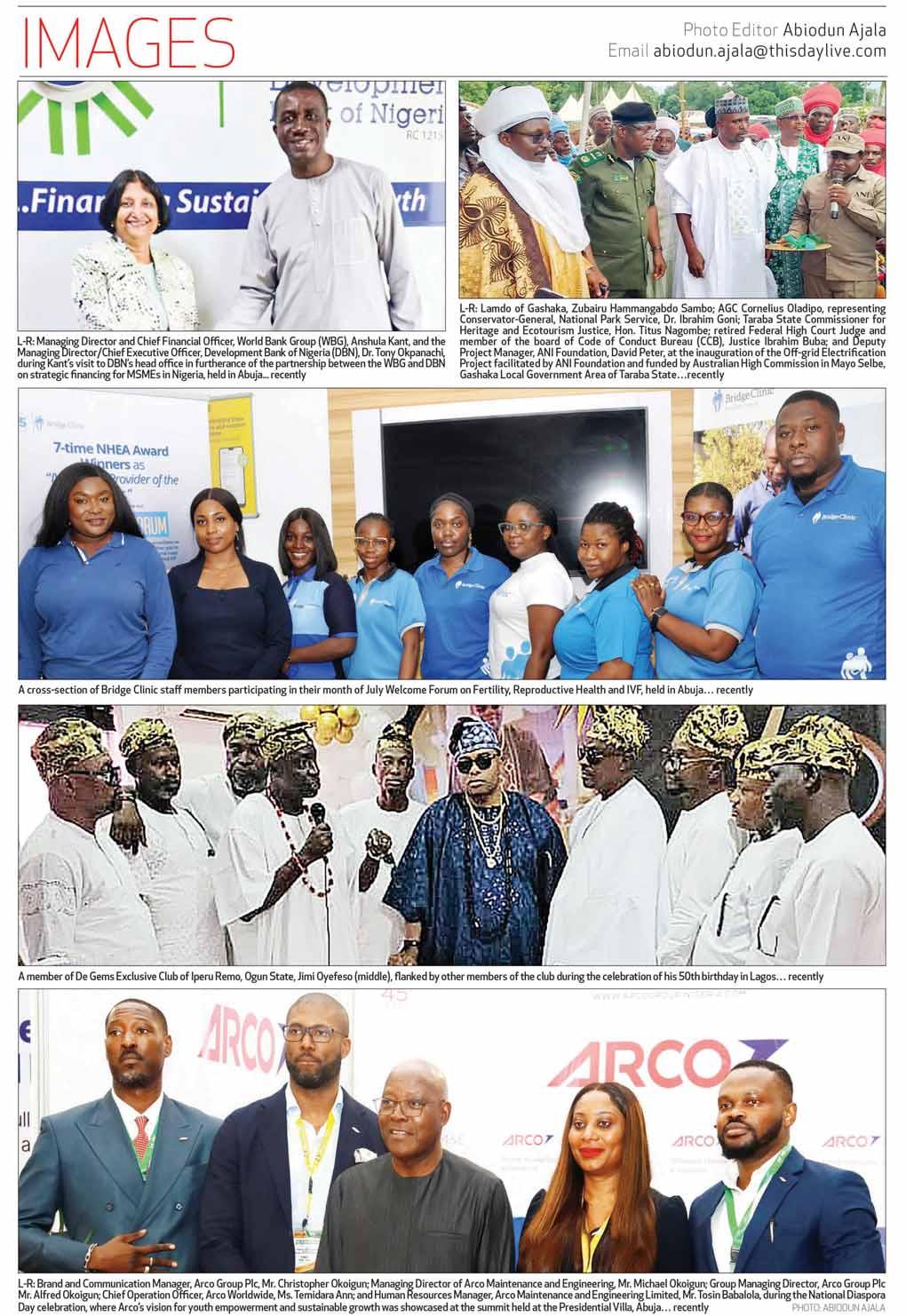

Managing Director/CEO, Central Securities Clearing System Plc, Mr. Haruna Jalo-Waziri (left), and Governor of Abia State, Mr. Alex Otti, during a visit by CSCS executive management to the governor in Umuahia…recently
Blessing Ibunge in Port Harcourt
Led by a Port Harcourt based legal practitioner, Chizy Enyi, the group filed an originating summons in suit number PHC/2293/CS/2025.
The suit wants the court to determine whether the sole
A non-governmental organisation(NGO), the Initiative for Transparent Strategy and Good Leadership, has dragged the Sole Administrator of Rivers State, Vice Admiral Ibok-Ete Ibas (rtd), state government, Attorney General of the State and the Rivers State Independent Electoral Commission (RSIEC)before a State High Court over planned local government council elections.
Adibe Emenyonu in Benin City
A hotel under construction at Idumoza community, Uromi, Esan North East Local Government Area of Edo State has reportedly collapsed, killing its owner who was identified as Andrew Isesere.
Over 20 workers at the site were said to have narrowly escaped death by the whiskers as the remains of the deceased owner was pulled out of the rubble on Sunday morning.
An eyewitnesses said the building collapsed last Friday while the owner was inside.
Neighbours, who spoke to journalists, said they cautioned
the owner during the construction about the quality of materials used for the construction of the building.
According to one of neighbours, Andrew Inegbebor, “The owner was told he was using low quality material. He used 12mm instead of 16mm rods for the pillars. There was no base basket at the pillars. Now, look at the result.
“The building collapsed because of the substandard materials that were used. There was no engineer on site. The dead owner was supervising the building, unfortunately, it later collapsed and killed him, but some workers escaped.”
The Federal Ministry of Marine and Blue Economy has denied reports alleging that Minister AdegboyegaOyetola awarded a multibillion-naira contract for the Baro Inland Port project, insisting the claims are entirely false and misleading.
The Minister’s Special Adviser on Media and Communications, Dr.BolajiAkinola, in a statement, emphasised that no such contract was awarded under the current administration, noting
emphatically that the Baro Port project predates the Oyetola-led ministry and that any assertions to the contrary are “inaccurate and should be regarded as misinformation.”
“No multibillionnaira contract has been awarded by His Excellency AdegboyegaOyetola in connection with the Baro Port project,” Akinola declared. “The project is not new. It was conceived, planned, and initiated under previous administrations.”
Following the devastating flood in Adamawa State that left properties worth millions of naira destroyed, over 25 lives lost, and many more were displaced in Yola, the Blue Community has reached out to the victims.
The President of Blue Community, Diaulhaq Abubakar, represented by Dr.
Abubakar Ma’aji, conveyed a message of sympathy to those who lost loved ones and properties and also donated food and non-food items.
He explained that the Blue Community stands in solidarity with the flood victims.
“Your sorrow is our sorrow,” he declared, echoing the sentiments of many who have been touched by the tragedy.
administrator, who is the 1st defendant not being a democratic Governor of Rivers State, “can lawfully and/or validly exercise the duties and powers conferred on the Governor of the State under sections 176(1) and (2), 197 (1) and
(3) and 198 of the Constitution of Nigeria,1999 (as amended) as exercised by the 1st defendant with respect to the appointment of the Board Members of the RSIEC.”
The group is also seeking a
declaration that “the purported nomination, appointment, constitution and presentation of the purported members of the Board of the 4th Defendant (RSIEC) on May 9, 2025, by the 1st defendant, contrary to the
exclusive powers, duties and functions conferred on the Executive Governor of Rivers State, under the Sections of the Constitution of Nigeria, 1999 (as amended) is unlawful, null, void and of no effect whatsoever.”
Folalumi Alaran in Abuja and Tony Icheku in Owerri
Imo, Bauchi, and Lagos States have been ranked among the most dangerous places for journalists in Nigeria, with risks spread across the Southeast, Northeast, and South-west zones. Imo State, in particular, was ranked 37th (last) out of 36 states
Chuks Okocha in Abuja
Salihu Tanko Yakasai, an exaide to former All Progressives Congress (APC) National Chairman and former Governor of Kano State, Abdullahi Umar Ganduje, has accused President Bola Tinubu of prioritising Lagos State in the distribution of federal projects, appointments, and resources to the detriment of
and the FCT, with a dismal score of 40.70 percent, while Bauchi came in 35th with 42.69 percent, and Lagos ranked 22nd with a relatively low score of 48.93 percent.
On the other end of the spectrum, Cross River State—once notorious for high-profile cases of journalist intimidation—was ranked 1st with a score of 70.40
other regions, including the North.
In a strongly worded Facebook post titled, “Emi Lokan or Lagos Lokan?,” Yakasai questioned President Bola Tinubu’s national leadership credentials, alleging that the administration has shown disproportionate favour to Lagos State within just two years in office.
“While it’s understandable that states that voted for a president
percent, credited for improved openness and a relatively safer environment for journalists in recent years. It was followed by Ondo (63.72 percent), Delta (63.03 percent), Katsina (57.51 percent), Ekiti (57.09 percent), and Gombe (56.05 percent).
These findings were revealed in the Openness Index Report released last Thursday in Abuja by the Centre for Journalism, Innovation and Development (CJID).
might get some preference, once elected, the president becomes a national leader not just a Lagos champion,” Yakasai wrote. He cited over N10 trillion projects either approved or awarded by the Tinubu administration for Lagos alone, including: Lagos-Calabar Coastal Highway – N15 trillion; LagosIbadan Expressway – N196 billion;
The report was presented by Professor Victor Ayedun-Aluma, a media scholar and Professor of Mass Communication and Social Change at the University of Jos. It assessed the performance of all 36 states and the FCT in upholding press freedom.
7th Axial Road – $651 million (approx. N1.2 trillion); Murtala Muhammed International Airport upgrade – N712 billion, Airport security & fencing – N50 billion; Lagos-Shagamu Road – N11 billion; Lekki-Epe Service Lane – N158 billion; Lagos-Badagry to Sokoto Highway – N1.6 trillion and Proposed Lagos Light Rail loan – $2 billion (approx. N3.2 trillion).
Gbenga Sodeinde in Ado Ekiti
A leading governorship aspirant in Ekiti State chapter of People Democratic Party (PDP), Otunba Emmanuel Fayose, has written to President Bola Ahmed Tinubu on the state of roads in the state. In another development,
Ekiti State Caucus in Nigeria’s House of Representatives have commended Cavista Holdings for its significant contributions to agriculture and tourism during a recent visit to two of the company’s flagship investments — Agbeyewa Farms and the Ikogosi Warm
Springs Resort and Conference Centre
In a letter, copy of which was made available to newsmen, Otunba Fayose lamented the condition of the various roads spread across the state with a call for the government at the centre to declare emergency with a view to fixing them. Apart from Mr. President, Otunba Fayose also copied Minister of Works, Dave Umahi, Governor Biodun Abayomi Oyebanji; senators and members of the House of Representatives from the state at the National Assembly.
Sunday Okobi
The Lagos State chapter of the Nigerian Veterinary Medical Association (NVMA), under the leadership Dr. Ofua Mark, has informed the public of a confirmed outbreak of rabies
in the Ajah area of Lagos State.
A statement signed and ade available yesterday to the media by Dr. Mark noted that the outbreak was detected through the vigilant surveillance efforts of the NVMA and has been confirmed by the National
Veterinary Research Institute (NVRI) in Vom, Plateau State.
Mark noted that the NVMA has promptly notified the relevant government authorities, including the Lagos State Ministry of Agriculture and the Nigeria Centre for Disease Control
and Prevention (NCDC), and “in response, the authorities have initiated immediate measures to contain the outbreak, including contact tracing and isolation protocols in the affected area to prevent further spread of this zoonotic disease.”
Bassey Inyang in Calabar
In line with his commitment to ensure statewide connectivity through viable networks of roads in Cross River State, the state Governor, Senator Bassey Edet Otu, at the weekend officially flagged off the construction of
the 10-kilometre Ndok JunctionMbube-Okubushuyu Road in Ogoja Local Government Area. Speaking at the flag-off ceremony last Saturday at Ekumtak-Mbube, Out, who was represented by his Deputy, Rt. Hon. Peter Odey, described the project as part of his administration’s efforts to open up rural communities, stimulate economic activity, and improve transportation for residents, and significantly improve their socioeconomic status.
He emphasised that this was just the first phase, with subsequent phases extending from Mbube East to Utugwang in Obudu Local Government Area. Odey charged the contractor to uphold global best practices in the delivery of the project, stressing the need to prioritise local content by engaging community labour, particularly the youths.
Fidelis David in Akure and Olusegun Samuel in Yenagoa
The Ondo State Police Command has cracked down on an armed robbery gang allegedly responsible for the brutal armed robbery and murder of a 25-yearold man, Nwike Sabbat, in Ondo West Local Government Area of the state.
This is just as the Command arrested an 87-year-old man, Chief Kogbona, for allegedly supplying arms and ammunition to the gang.
The state Commissioner of Police, Adebowale Lawal, made this known in Akure while speaking with journalists on the recent achievements of the command.
He said in continuation of its relentless effort to rid Ondo State of violent criminal elements, the Command has recorded a major breakthrough in the ongoing investigation into the brutal armed robbery and murder of Nwike which occurred on July 29, 2025, in Ondo town.
The commissioner said
As part of efforts to promote self-reliance and curb unemployment, the Bauchi State Government in collaboration with the federal government and the African Development Bank (AfDB) has empowered 800 youths and women with entrepreneurial skills and starter packs across the state.
The youths and women trained in various entrepreneurial skills and presented with starter packs under the Supported Inclusive Basic Service Delivery and Livelihood Empowerment Integrated Programme (IBSDLEIP) is aimed towards empowering beneficiaries from across the 20 local government areas of the state, focusing on
capacity building and economic empowerment.
Speaking during the presentation ceremony held at the Army Officers Mess and Suites in Bauchi last Saturday, the state Governor, Senator Bala Mohammed, described the programme as a testament to the government’s commitment to addressing youth restiveness and reducing dependence on white-collar jobs.
The governor, who was represented by the Chief of Staff, Government House, Dr. Aminu Hassan Gamawa, commended the federal government and the African Development Bank for their vital roles in ensuring the programme’s success, and called for sustenance of the collaborative efforts.

following actionable intelligence and sustained investigation, the police arrested Adeife Adewumi (male), a native of Idanre but resident in Mokola, Ibadan, Oyo
State, after the deceased’s stolen motorcycle was found in his possession.
According to him, “During interrogation, Adeife Adewumi
revealed information implicating his accomplices who were still at large within Ondo State.
“Acting on this lead, an intelligence-led team proceeded
to Ilaramokin in Ifedore LGA, where two additional suspects, Johnson Mathew, 24, and Disu Sunday, were arrested in their hideout.”
The Administrator of the Presidential Amnesty Programme (PAP), Dr. Dennis Otuaro, has appealed to ex-agitators in the Niger Delta to remain vigilant and resist the efforts of some politicians who are bent on destabilising the region for selfish ends.
He noted with concern the recent rise in politically-charged
rhetoric and coordinated attempts by some politicians to pit exagitators and beneficiaries of the programme against the federal government even ahead of the 2027 general election.
Otuaro spoke at the end of the second batch three-day strategic Leadership, Alternative Dispute Resolution and Mediation Training
organised by the PAP from July 30 to August 1, 2025 for its stakeholders in collaboration with the Nigerian Army Resource Centre, Abuja.
Otuaro, who presented certificates to the workshop participants and later hosted them to a reception at the PAP headquarters, admonished
ex-agitators not be deceived by such politicians and their antics. He described these moves as reckless and unnecessary as there is no basis for anyone to cause destabilisation given the President Tinubu administration’s commitment to the development and socio-economic advancement of the Niger Delta.
Olawale Ajimotokan inAbuja
A coordinated emergency operation, involving officials of the National Emergency Management Agency (NEMA), officials of the Development Control Department in the FCT Administration, the Federal Fire Service, FCT Fire Service and security agencies, early
yesterday rescued a 27-year-old citizen of Niger Republic, Aliyu Salisu from the rubble of a threestorey building that collapsed on Saturday evening in the Life Camp area of Abuja.
It was gathered that the victim was trapped for over 10 hours in a pile of concrete slabs at the site located along Sarah Ezekwe Street, Lifecamp ( Near Kado Fish Market) before he was rescued and taken to hospital Cedar Crest Hospital in Apo- Gudu area of the FCT.
The incident was confirmed via a statement by the spokesman of the Federal Capital Territory Police Command, Josephine Adeh, who said the rescue operation commenced shortly after a distress call was received around 6:15p.m on August 2. Adeh stated that the Divisional Police Officer of Life Camp mobilised a multi-agency team to the scene, where the area was cordoned off and emergency response operations began in collaboration with the support of Turkish firm.
Ayodeji Ake
The Lagos State Commissioner for Health, Prof. Akin Abayomi, while highlighting the data from the 2018 Nigeria Human Immunodeficiency Virus (HIV)/ Acquired Immunodeficiency Syndrome (AIDS) Indicator and Impact Survey (NAIIS), has stated that over 16 million Nigerians are living with Hepatitis B, and over two million with Hepatitis C.
He noted that the 2016 baseline survey in Lagos revealed a five per cent and one per cent prevalence for Hepatitis B and C respectively.
Speaking on the effort of the government to combat the disease, at his office in Alausa, Ikeja, recently and also as part of the comprehensive campaign to back the 2025 World Hepatitis Day commemoration, with the theme: ‘Hepatitis: Let’s Break It Down’, the commissioner described viral Hepatitis as a silent but deadly disease, urging residents to get tested and vaccinated.



According to Abayomi, viral Hepatitis affects millions globally and has become a silent epidemic in Nigeria.



Nigeria’s D’Tigress celebrating defeating Mali 78-64 in the final of 2025 Afrobasket Championship for the country’s fifth consecutive victory in Abidjan, Côte d’Ivoire...yesterday
Days after racing to a 10th triumph in the Women’s Africa Cup of Nations, Nigeria will on Tuesday begin another serious quest for a continental title when the home-based senior men’s team, Super Eagles B take on Cup holders Senegal in the opening match of Group B of the 8th African Nations Championship (CHAN).
Bronze medal-winners in 2014 and runners-up four years later, Nigeria have blown hot and cold in the 16-year-old tournament that is exclusively reserved for footballers plying their trade with valid contracts in the domestic league of their countries on the continent.
Ahead of the inaugural edition hosted by Cote d’Ivoire in 2009 and won by the Democratic Republic of Congo, the Eagles squandered a two-goal lead over arch-rivals Ghana in Accra to end up losing 2-3, and then failed to find the back of the net in the return encounter in Calabar. Ghana qualified instead.
Two years later, Nigeria also failed to reach the finals in Sudan. In 2014, Stephen Keshi (of blessed memory) coached the Eagles to a bronze medal finish in South
Africa, overturning a 3-0 deficit at half-time against Morocco en route. It was a year after the great Keshi had led the ‘A’ to lift the Africa Cup of Nations in the same country.
Nigeria failed to make it out of the group stage in Rwanda in 2016, but then went all the way to the Final in the following edition, losing to hosts Morocco on a frosty night in Casablanca. The country failed to qualify for the 2021 edition hosted by Cameroon, and also painfully missed out of the finals staged
by Algeria two years ago.
In essence, Nigeria will be making only her fourth appearance at the competition.
Christened Pamoja 2024, this year’s African Nations Championship promises a lot of thrills and excitement across five venues in three host nations – a novel arrangement in hosting of sports events on the African continent. The Confederation of African Football awarded a joint bid by Kenya, Tanzania and Uganda the hosting right for the 2027 Africa Cup of Nations,
and afterwards opted to grant the three nations the opportunity to use the CHAN as a dress rehearsal.
The 19 participating countries have been cast into four groups, with Groups A, B, and C having five teams, and Group D (where Nigeria will feature) having only four, including Cup holders Senegal, as well as Congo and Sudan.
Nigeria’s technical and tactical approach to games will be curated by Eric Sekou Chelle, also the gaffer for the ‘A’ team.

Duro Ikhazuagbe
On the night that Amy Okonkwo, Ezinne Kalu, and Victoria Macaulay accounted for 49 points, more than half of D’Tigress’ total in the 78-64 win over hard-fighting Mali, Musa Kida, President of the Nigeria Basketball Federation (NBBF) has dedicated the 2025 FIBA Women’s Afrobasket victory to President Bola Ahmed Tinubu.
The final was a tale of resilience. After trailing 21–26 in the first quarter, the Nigerian queens roared back with commanding performances in the next three quarters: 20–15, 20–15, and 17–8, showcasing the grit and tactical brilliance that has become their trademark.
Okonkwo in particular spent the entire final game on the floor inside the Palais des Sports Treichville in Abidjan, Côte d’Ivoire. She was eventually named the 2025 AfroBasket Most Valuable Player (MVP). She has now joined a unique group of players with two MVP awards, alongside Mfon Udoka (2003 and 2005), Aya Traore (2009 and 2015), and Nacissela Mauricio (2011 and 2013).
A jubilant Kida credited Tinubu’s leadership and the Renewed Hope agenda for revitalizing Nigerian sports.
“Tonight in Abidjan, our D’Tigress have done the extraordinary: “Mission Five” has become Mission V Accomplished! Five AfroBasket titles in a row, and not losing a single match to any African national team is not just dominance, it is our legacy,” Kida declared.
“These fearless women have shown the world what it means to have the Nigerian fighting spirit: resilient, bold, and unstoppable. We proudly
dedicate this historic victory to His Excellency, President Bola Ahmed Tinubu, whose unwavering commitment to revitalizing sports under the Renewed Hope agenda has sparked a new era for athletes across the nation.”
“Your leadership continues to inspire every slam dunk, every rebound, every triumph. Nigeria stands tall tonight, not just as champions, but as a beacon of what is possible when hope is renewed and excellence is pursued.”
Under Kida’s stewardship, D’Tigress have evolved into a world-class powerhouse, winning four of their five consecutive AfroBasket titles and making history at the Paris 2024 Olympics as the first African team to reach the quarterfinals of the prestigious global event. The victory not only extended their unbeaten run to 29 games—a streak dating back to their last loss in 2015—but also solidified their status as the most dominant force in African women’s basketball.
Earlier yesterday, South Sudan’s Bright Starlets became the first debutants to win continental medal when they defeated 11-time champions Senegal 66-65 to win the bronze of the 2025 Women’s AfroBasket Championship.
The South Sudanese entered the championship on a wild card and capped it with their first ever medal in the continental showpiece.
Their win over Senegal, who were looking to end a decade-long wait for gold, makes it the third time the West Africans have missed out on the podium in 26 editions. They missed in the inaugural edition in 1966 and in 2021 in Cameroon, finishing fourth on both occasions.
After seeing Ijeoma Esther Okoronkwo display a five-star performance that helped Nigeria’s Super Falcons triumph at the recently concluded Women’s Africa Cup of Nations (WAFCON) in Morocco, Abia State is waiting to receive and honour her.
Speaking with newsmen on the performance of Abia-born athletes on national assignments,
the Permanent Secretary of Abia State Ministry of Sports and Youth Development, Chief Cyril Nwaigwe, said that Okoronkwo would be hosted at any appropriate time.
“Our Governor will reward her because he is always ready to support any Abia athlete that did very well (in national and international tournaments),” he said.
According to him, Governor Alex Otti has become a source of encouragement and
inspiration for Abia athletes because he appreciates excellent performances, citing the Abia athletes he rewarded with N75 million last November
It is also expected that other Abia female players on the Super Falcons squad that brought home the WAFCON trophy for the 10th time for Nigeria, would be honoured alongside Okoronkwo.
Nwaigwe stated that “Esther Okoronkwo’s performance did not come to us as a surprise” given that Abia athletes have
a history of giving their best whenever called on national duty.
Okoronkwo, won the most valuable player(MVP) award for her scintillating performance in the final match against Morocco in which the Falcons came from 0-2 down to defeat the host 3-2.
Though she hails from Abia, the striker developed her football career abroad and has been getting a flood of commendations and admirations for making her home state proud.
Nigeria Premier Football League (NPFL) clubs have been zoned into three groups for the NPFL Youth League for U-19 players.
The league will be played in Ikenne, Umuahia and Kano where the clubs located in geographical proximity have been grouped.
In Ikenne, the league will commence today, Monday, August 4, 2025, and will host Remo Stars, Shooting Stars, Ikorodu City, Sunshine Stars, Kwara United and Bendel Insurance. It will be concluded on August 9.
Teams zoned to Kano are hosts Kano Pillars,
El-Kanemi Warriors, Katsina United, Nasarawa United, Niger Tornadoes and Plateau United. Their matches hold from August 10 to 16th.
To battle in Umuahia for a place in the final playoff are Abia Warriors, Akwa United, Enyimba, Rangers, Heartland, Bayelsa United, Rivers United and Lobi Stars.
The two top teams on the log at the end of roundrubbing fixtures will qualify for the Top-Six finals that will be played to determine the overall champions. The U-19 NPFL Youth League is a part of the concluded 2024/25 season activities.

L-R: Permanent Secretary of the Federal Ministry of Marine and Blue Economy, Mr. Olufemi Oloruntola; Minister of Marine and Blue Economy, Adegboyega
in Nigeria/Managing Director of the National Inland Waterways Authority (NIWA), Mr. Bola Oyebamiji, when the committee submitted its report to the minister in
and Chairman, Special
on the

The Englishman [or the Empire of Englishmen] who sat down and coined weird collective nouns for groups of animals, did they have Nigeria in mind? Were they helped in the task by a Junker of Germans, a vineyard of Frenchmen, a mob of Italians or a samurai of Japanese?
Think of the collective noun a parliament of owls. Englishmen who coined it had the Nigerian National Assembly in mind. The large eyes of owls which resemble an MP’s eyesight for money, owls’ nocturnal habits which resemble rubber stamping of executive bills, their ability to rotate their heads in all directions which resembles defecting from one party to another, their flying silently in the night to grab prey with sharp talons which resembles budget padding, and their shrieking in the night which resembles constituency projects, all point to English mischief in coining this collective noun.
The collective noun glaring of cats describes Nigerian State Houses of Assembly. They glare helplessly while executives trample on budgets, sidestep financial rules and personalise treasuries, much like cats that only glare and mew. The collective noun lamentation of swans reminds me of Nigerian trade unions. They are constantly lamenting about minimum wage, cost of living, industrial safety, check off dues, length of maternity leave and arrest of union leaders. The collective noun thunder of hippos was coined by Englishmen to refer to ASUU, which is forever agitating for higher salaries, earned academic allowances, “adequate funding of universities,” university autonomy, appointment of Vice Chancellors and salary for work not done during long strikes under the dubious clause called “non-victimisation.”
Englishmen had the Nigerian Presidency in mind when they coined the collective noun a tower of giraffes. Its long neck surveys the whole scene for more taxes, increased oil production, more money from non-oil exports, having a firm grip on funds through Treasury Single Account and IPPIS, harvesting more money by ending subsidy and floating the naira, cajoling Central Bank to print more money under ways and means, and borrowing money from every available foreign source, to be paid for by generations yet unborn.
The collective noun a cauldron of hawks was meant to describe state Government Houses. Contractors, consultants, politicians, civil servants, clerics, traditional rulers, babalawos and assorted thugs swamp them, a sign of the concentration of power that has become steadily elaborated in Nigeria since the military era. No appointment letter, no voucher, no contract documents and no land allocation is of any effect until it comes from the Government House, which is infested with circulating hawks.
When the Englishman invented the collective noun a bank of Komodo dragons, he had Nigerian bankers in mind. Komodo dragons are the most
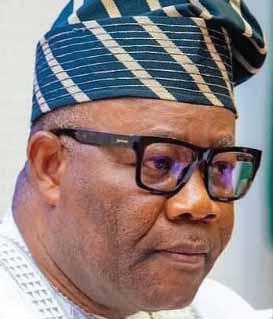
voracious and the most merciless of eaters; they run down a goat or a calf and eat it alive. Nigerian bankers run down a customer’s meagre savings and eat it alive, by charging for every debit or credit alert, account maintenance fee, stamp duty and many hidden charges. They empty their ATMs, then charge a customer extra sums for withdrawals from ATMs of other banks. Try borrowing money from a Nigerian bank; by the time they calculate the compound interest, you would wish that you are being chased by a Komodo dragon. The collective noun implausibility of gnus was meant to describe Nigerian civil servants. Someone once said that civil service bureaucracy is stultifying. It is inscrutable, bewildering, puzzling, and beguiling. And it is the root of corruption; citizens resort to bribery in order to get around the rigmarole bureaucracy of the civil service.
What did the Englishman mean by the collective noun a convocation of eagles? Is it only universities that hold convocations to award degrees and diplomas, many of them undeserved, especially the honorary ones? He had Nigerian politicians in mind. Nothing is more vigilant in the sky than an eagle, and nothing is more vigilant near a subtreasury than a Nigerian politician. A politician’s eye for a juicy contract is as sharp as an eagle’s eye for prey. From 100 meters up, an eagle can spot the slightest movement of a mouse, and from several thousand kilometres away, a politician can spot the smell of a juicy contract.
Nigerian bandits were the target of the collective noun a murder of crows. Which murder does a crow make when compared to a Nigerian bandit, who storms villages and towns, blocks highways, raids schools, ambushes farmers at their farms, chases fishermen through rivers and creeks, storms shops and makes away with victims, including women and children, only to demand for ransom
payments in staggering amounts, which bankrupts whole families and clans? Their soul mates, Nigerian kidnappers, are the objects of the collective noun a prowl of jaguars. They are forever on the prowl for persons to seize. Informants feed them with information that a city-based well to do person is about to visit home, and if they cannot get him, they will make do with even the poorest person, whose family must sell his farm in order to raise ransom.
A tribe of antelopes. I was wondering; was that meant to describe the geopolitical groups Afenifere, Ohanaeze Ndigbo, Arewa Consultative Forum, Middle Belt Forum, Ijaw National Congress and Southern Leaders Consultative Forum, groups not envisaged by the constitution but which have usurped some of the roles of constitutional agencies? Nearly 50 years ago, this country did away with the mention of “tribe” in the national anthem but two years ago, without any public debate, the Presidency smuggled it back, which the National Assembly speedily rubber stamped, sorry, ratified. It said though tribe and tongue may differ, in brotherhood we stand, but the geopolitical groups are bent on thwarting that promise, much like a tribe of wildebeest running helter skelter during their annual migration.
The collective noun a mess of iguanas best describes Nigerian political parties, eighteen registered ones with, at the last count, one hundred and ten others waiting to be registered. Some of these were once registered, they failed to clinch a single assembly seat anywhere and, in accordance with the Electoral Act, were deregistered, only to attempt a return as briefcase political parties.
The Englishmen did not stop there, but went ahead to coin more collective nouns in order to describe specific Nigerian political parties of this day. The relevant one for All Progressives Congress [APC] is an obstinacy of buffaloes. Just as APC resembles PDP, buffaloes resemble domestic cattle but woe unto anyone who confuses a buffalo for a cow. A friend of mine once visited the Abuja National Park and told me that he saw some prized cattle “from Argentina” that are surrounded by strong iron fences and deep trenches. Cattle? I said you better run; those are buffaloes!
A coalition of cheetahs was coined by Englishmen to describe APC’s most vibrant competitor on the political scene right now, i.e. All Democratic Congress, ADC. Cheetah is the fastest land animal, and ADC chieftains are the fleetest of Nigerian politicians. Some of them have been in up to four political parties in the past year alone, while many of them are simultaneously members of two or more political parties, a Nigerian first which is about to enter the Guiness Book of Records. On the other hand, the collective noun a consortium of octopi was meant for PDP, the former ruling party, with eight hands planted in every pie. The collective noun a waddling of ducks best describes
Labour Party, which waddles on the political scene with at least two heads, one of them attached to APC while the other gravitates towards ADC. Kwankwwasiyya movement and its appendage political party, NNPP, was the target of the collective noun a murmuration of starlings. Very dazzling, when starlings are conducting a synchronized flight, but its ultimate aim is not known, just like the Kwankwasiyya leader lambasting the Presidency soon after a closed-door meeting, and his top aide saying it is him who will decide which party to move to.
With many Nigerians saying they are befuddled by INEC’s BVAS, the sudden collapse of iREV during the 2023 presidential elections and long delay in registering new political parties, Englishmen coined the collective noun implausibility of gnus to describe the institution. This gloomy looking antelope looks on askance at a hunter, just as INEC watches parties dissolve in chaos, with some people seizing control of them and not allowing their secretaries to sign letters convening their NEC meetings.
SIECs are the aim of the collective noun a conspiracy of lemurs. All 36 SIECs return a clean sweep for the party that governs the state in local government elections, irrespective of party, region or geopolitical zone. Central Bank of Nigeria must be the cohort of zebras that Englishmen were thinking of. Like a zebra’s stripes, it says the naira is appreciating when it is actually bumpy; it says naira is free floating when it spends billions of dollars to shore it up; and CBN says governments are awash in money even when it is helping them to shop for foreign loans.
Supreme Court must be the target of the collective noun a court of kangaroos. It delivered judgements that left Rivers State Government, PDP National Working Committee and Labour Party more confused than ever. For nearly six months Supreme Court has refused to take up a suit to determine the constitutionality of sacking elected state governors and MPs under a state of emergency. Nigeria Police must be the target of the collective noun a thunder of hippos. It is a bewildering sight when several dozen hippos splash into the Orange River, just as bewildering when Nigerian Mobile Policemen are marching in rehearsal for putting down a strike or to protect a local musician in whom the ruling powers are well pleased.
The collective noun a bicycle of bees must have been directed at Nigerian journalists, who are ever looking for someone to sting but without the honey bee’s sweet honey. The collective noun intrusion of cockroaches was designed for Nigerian street beggars, while the collective noun a memory of elephants `refers to Nigerian social media activists. To construct some more weird collective nouns, the Englishmen need further help from a pyramid of Egyptians, a great wall of Chinese, a nuke of North Koreans, a tariff of Americans and a genocide of Israelis.